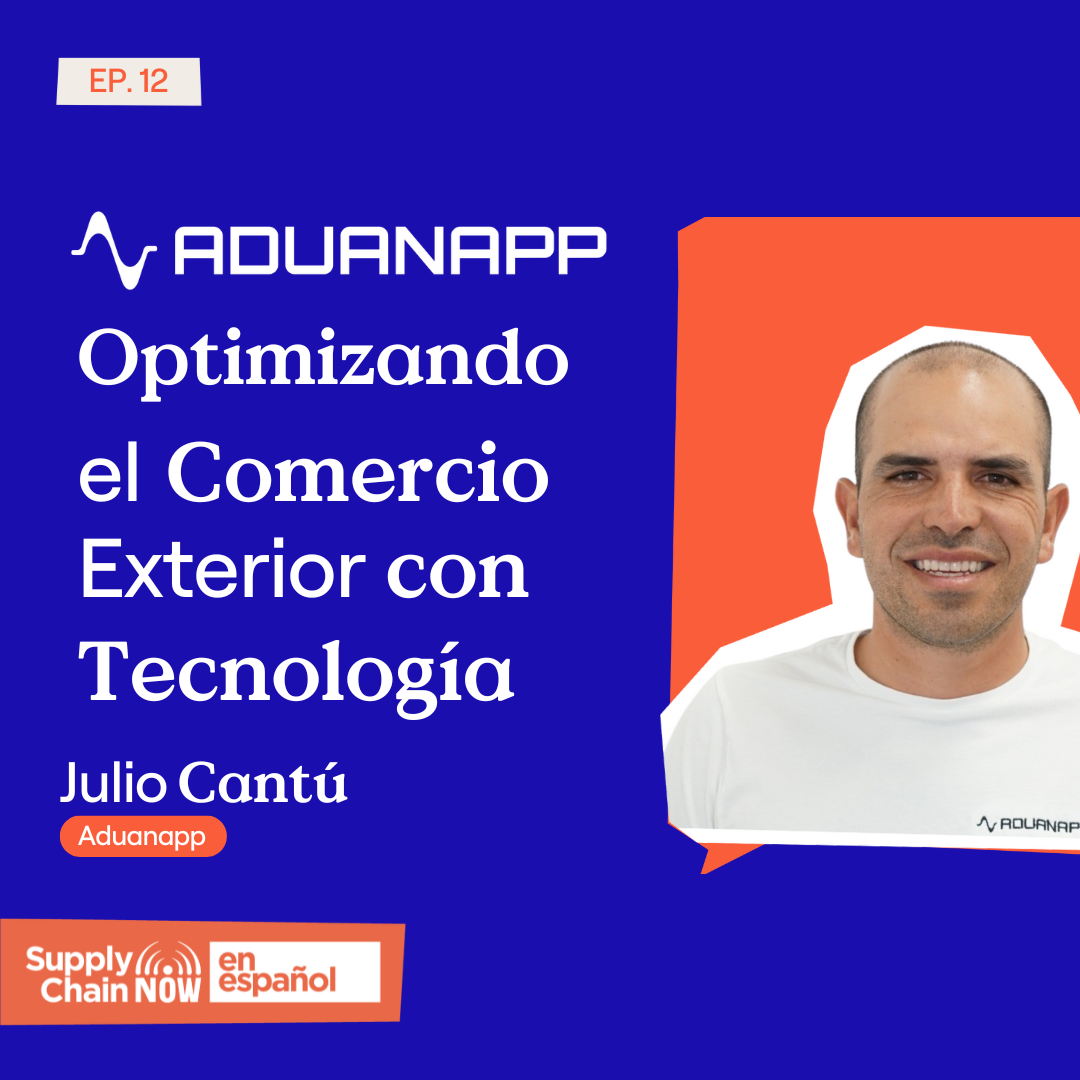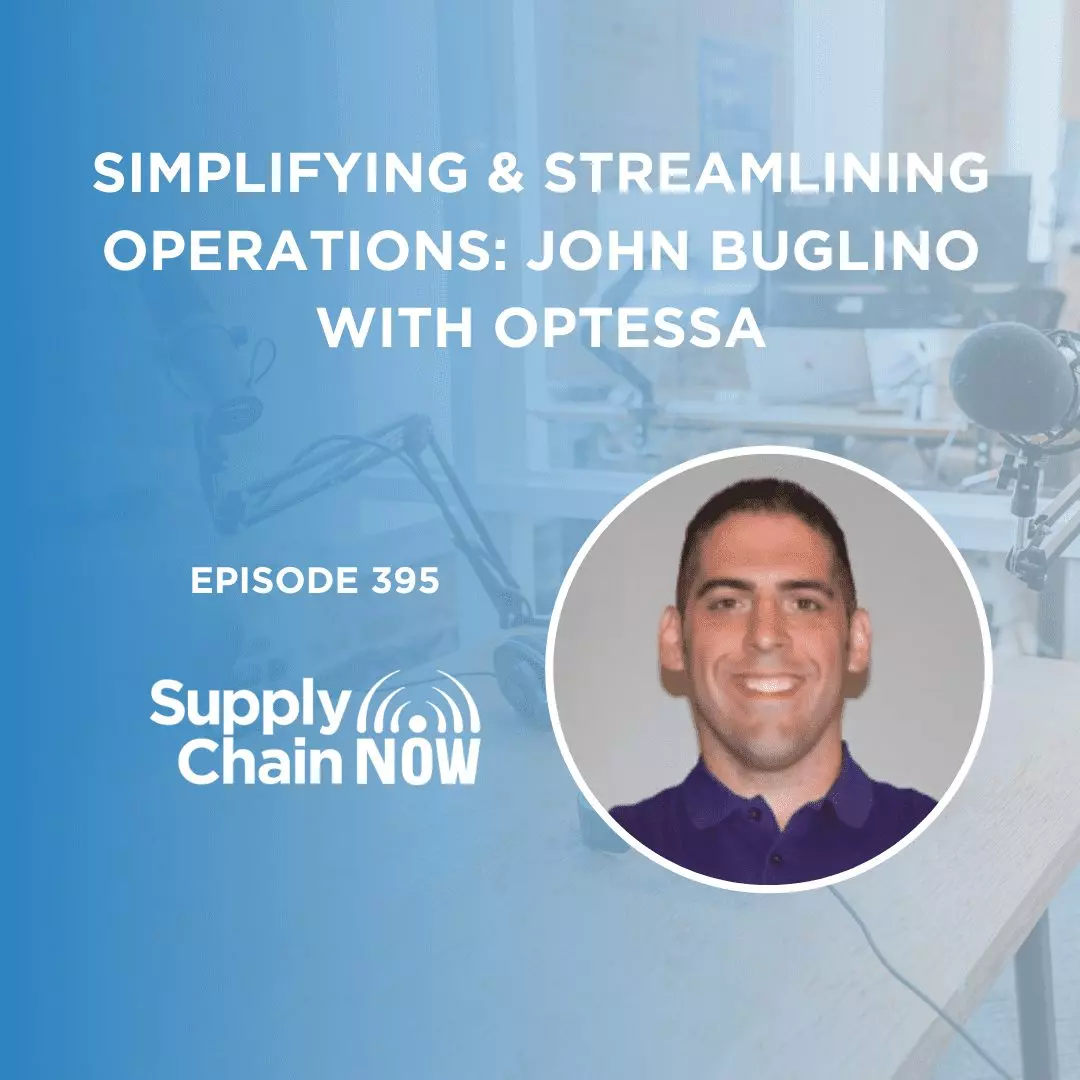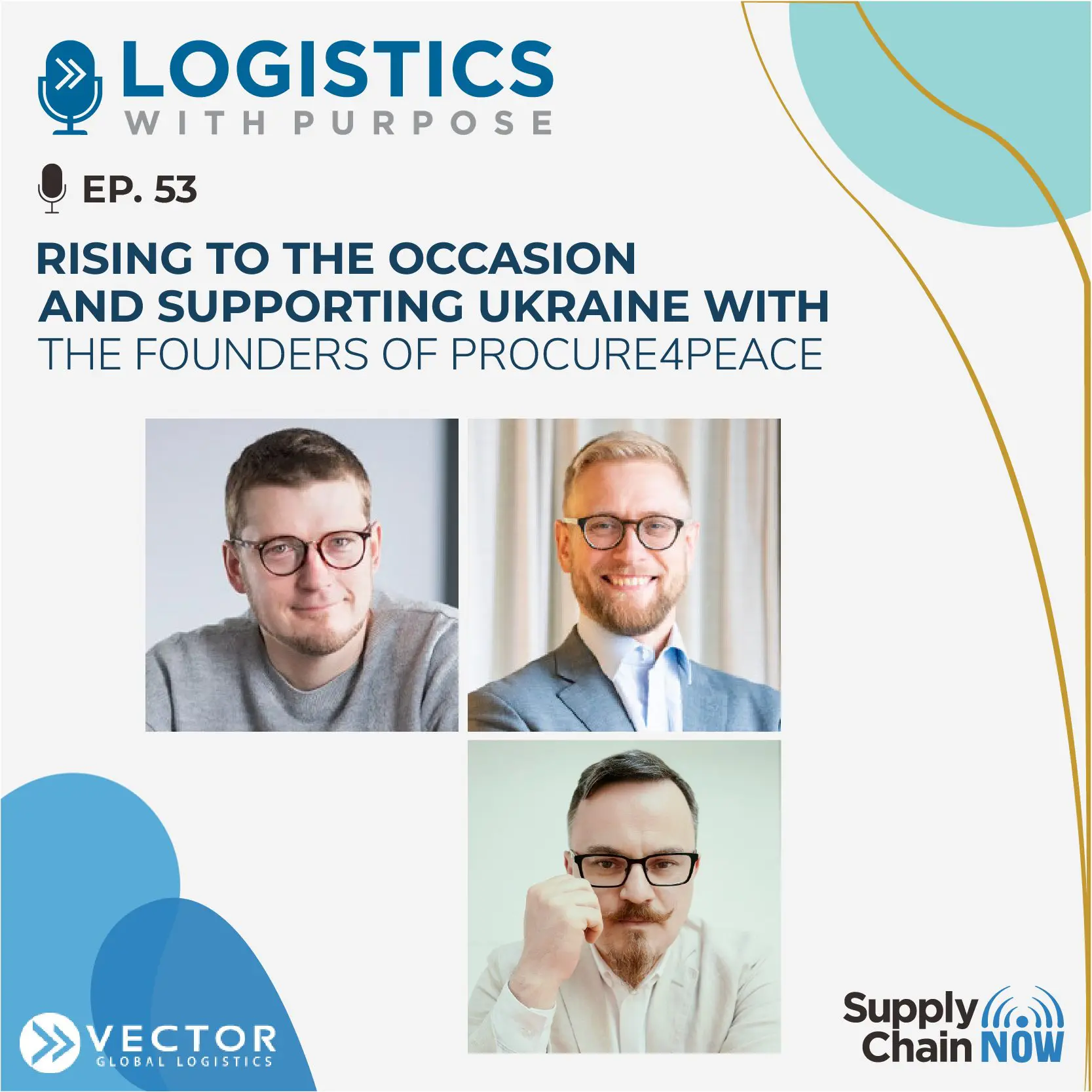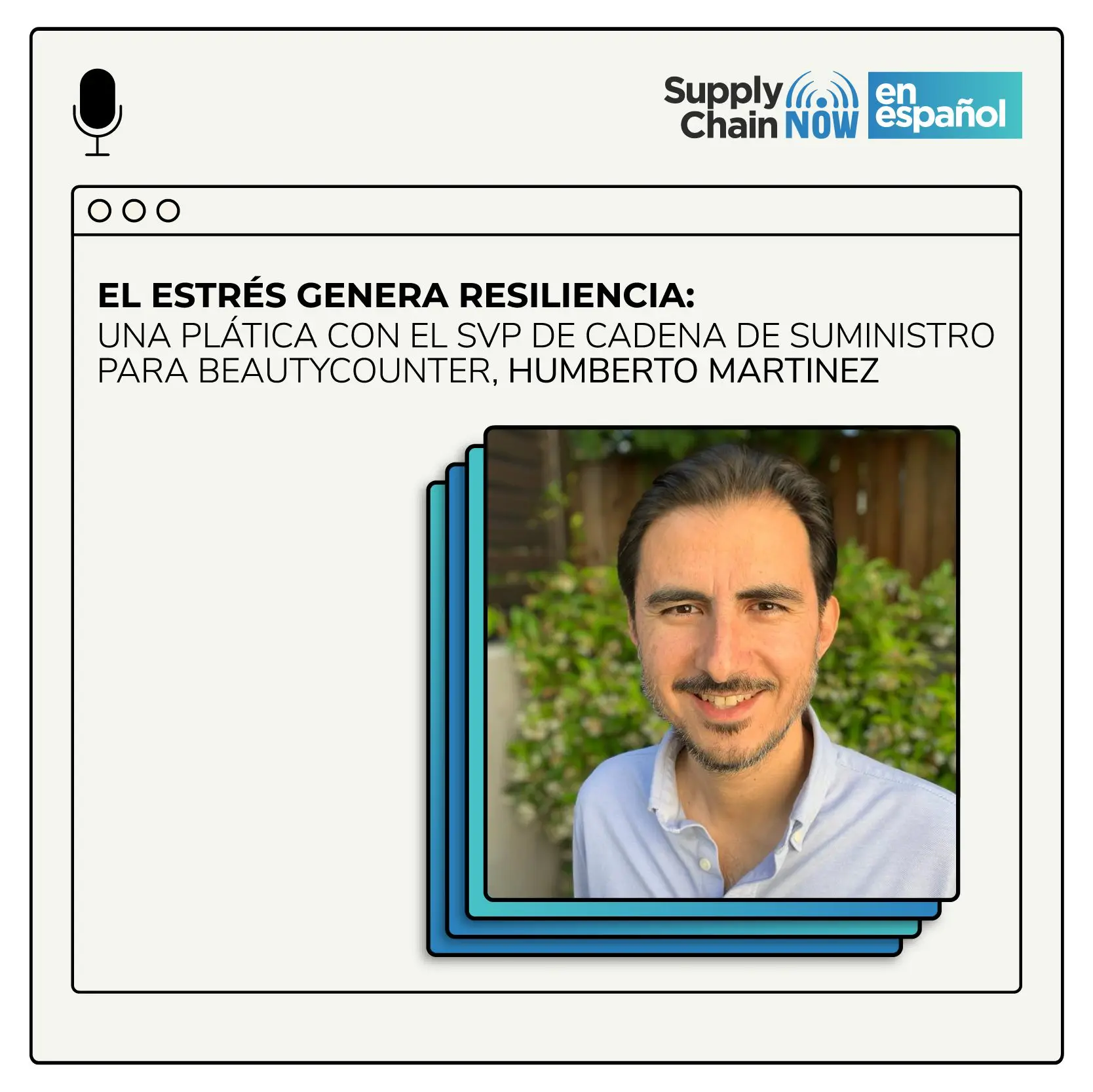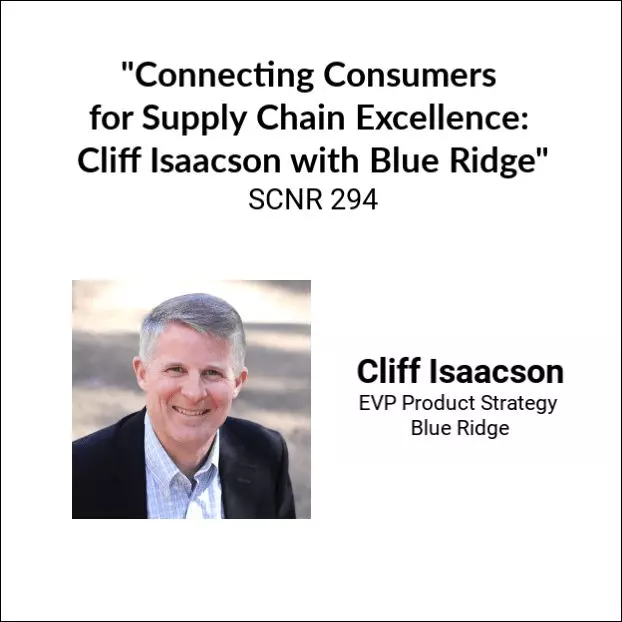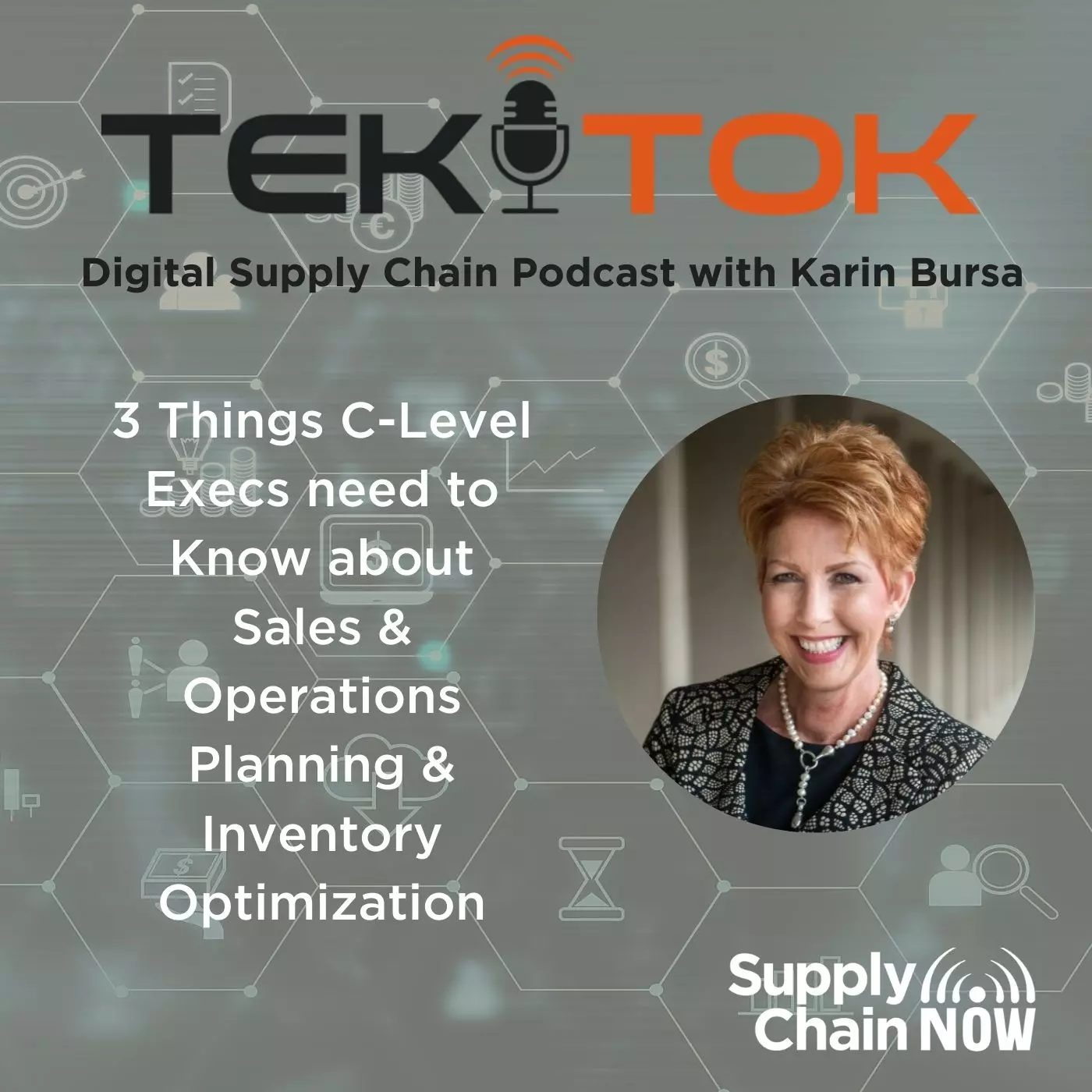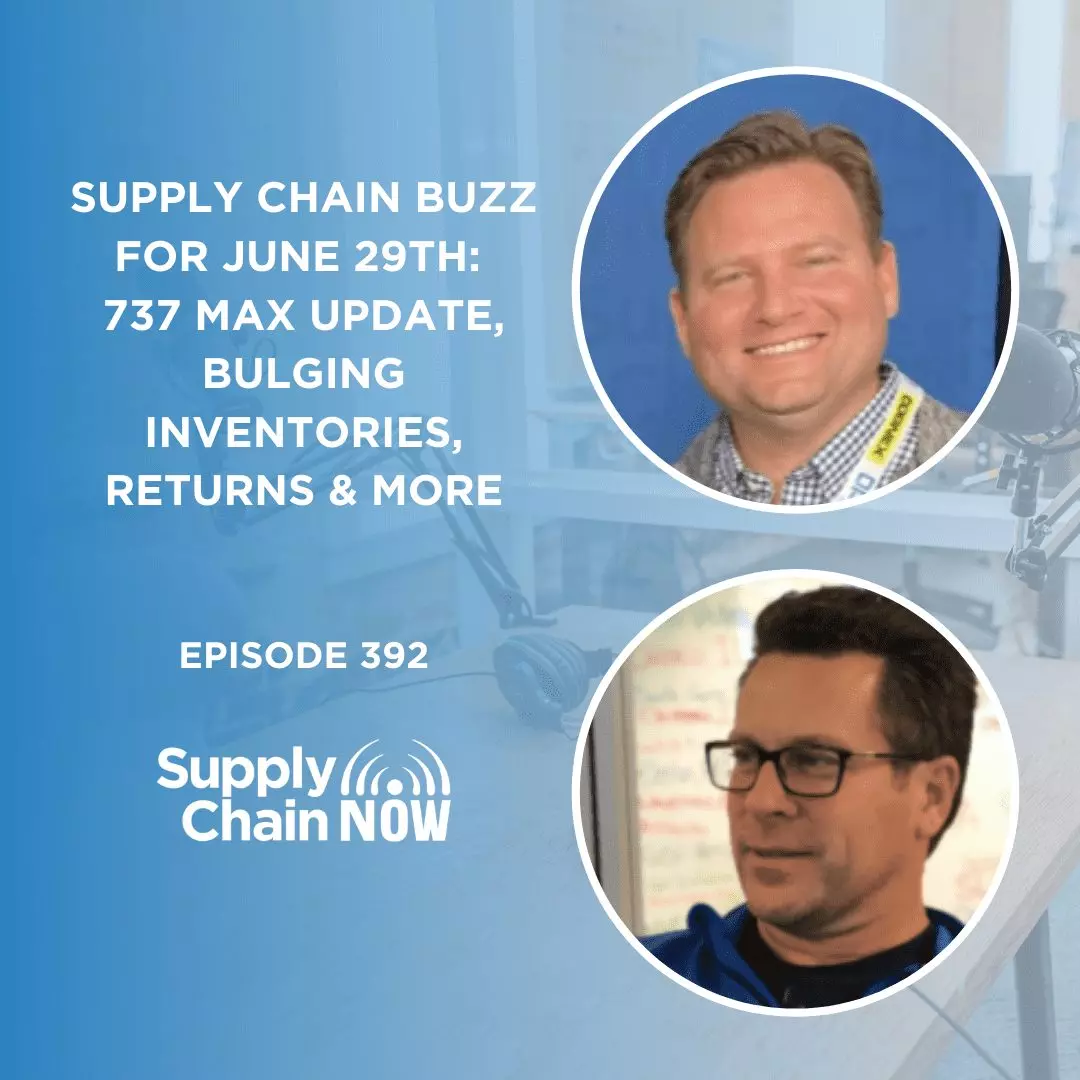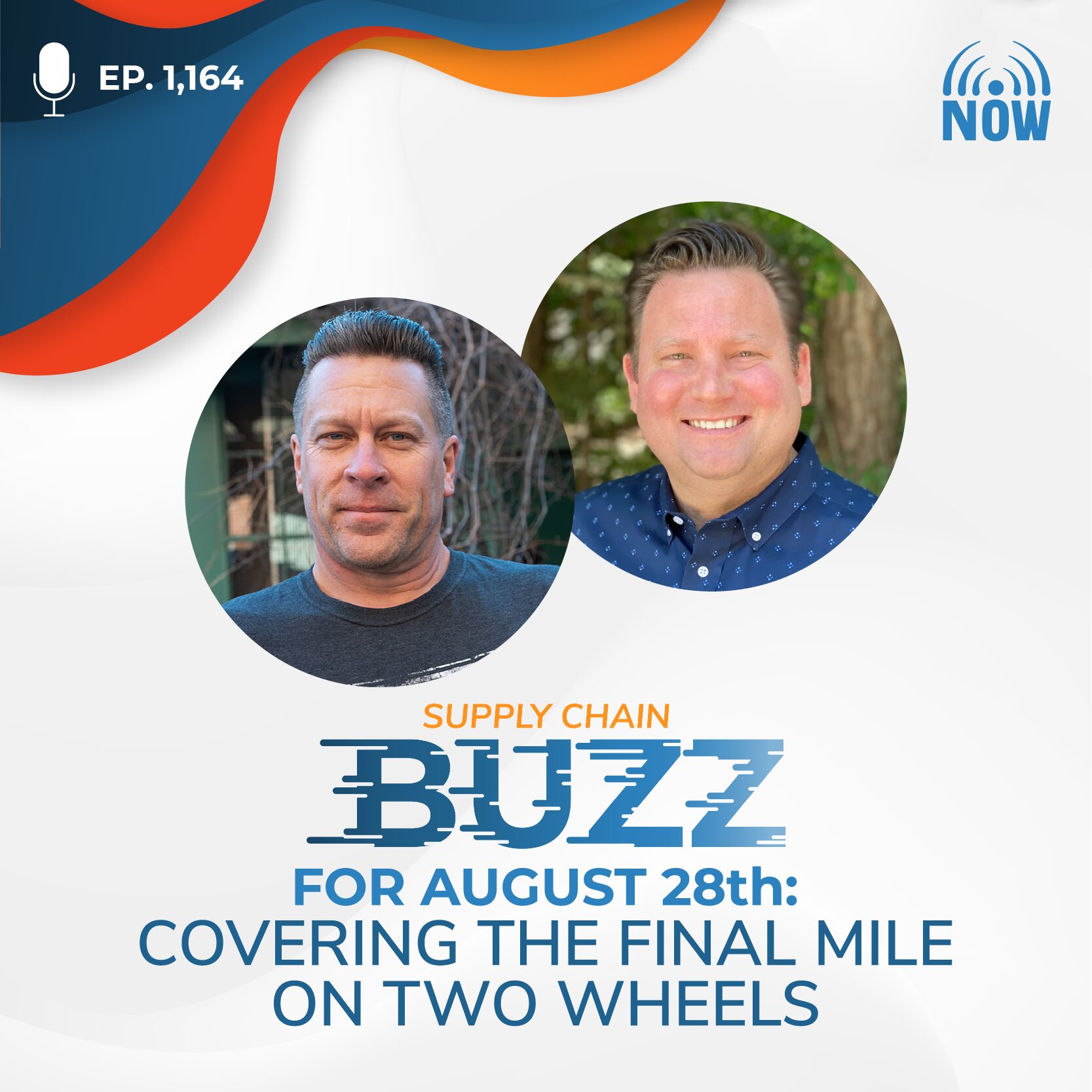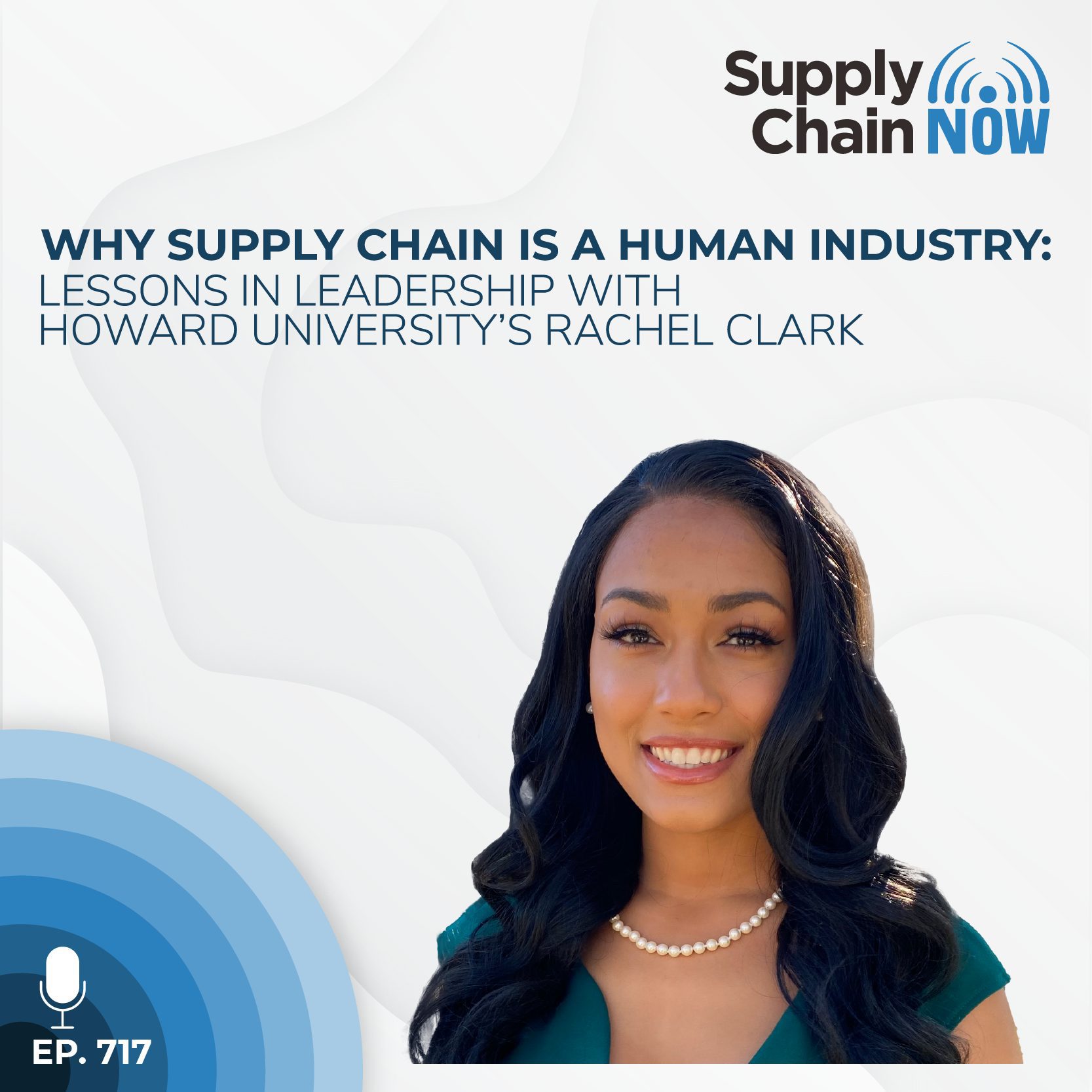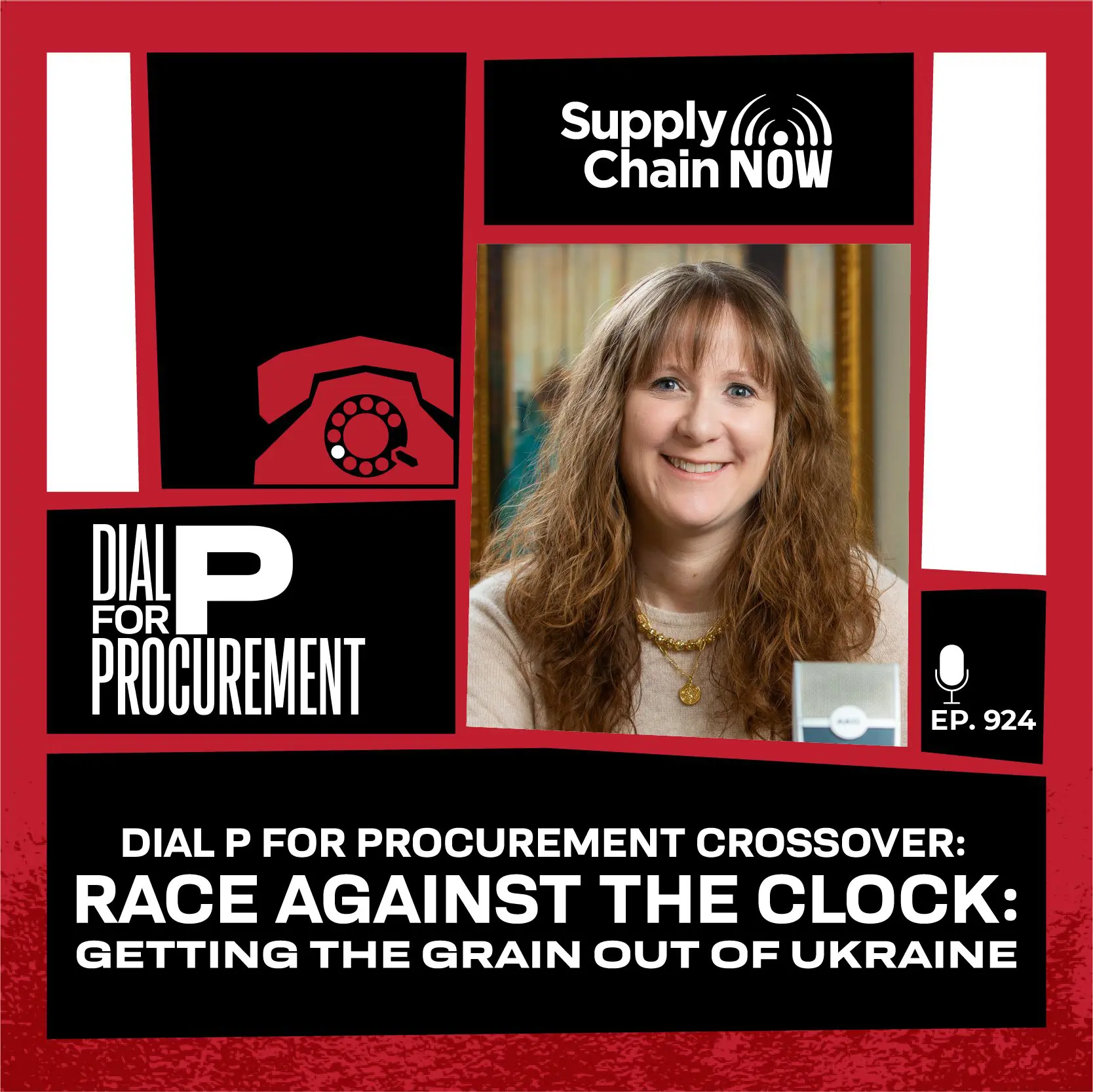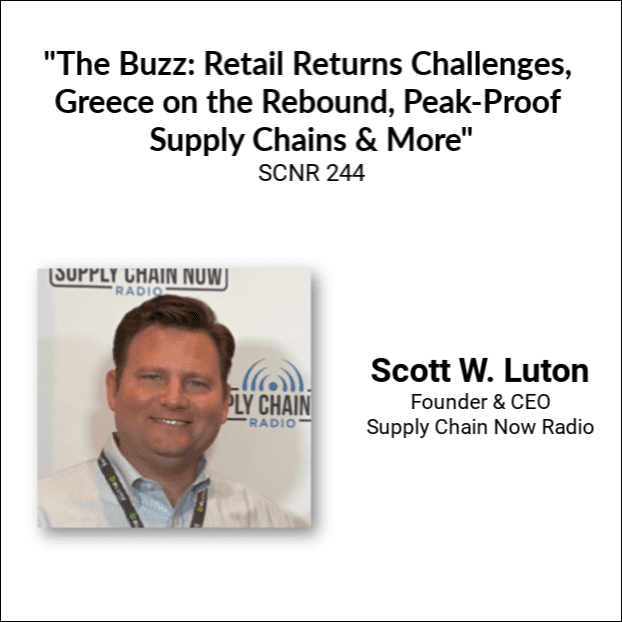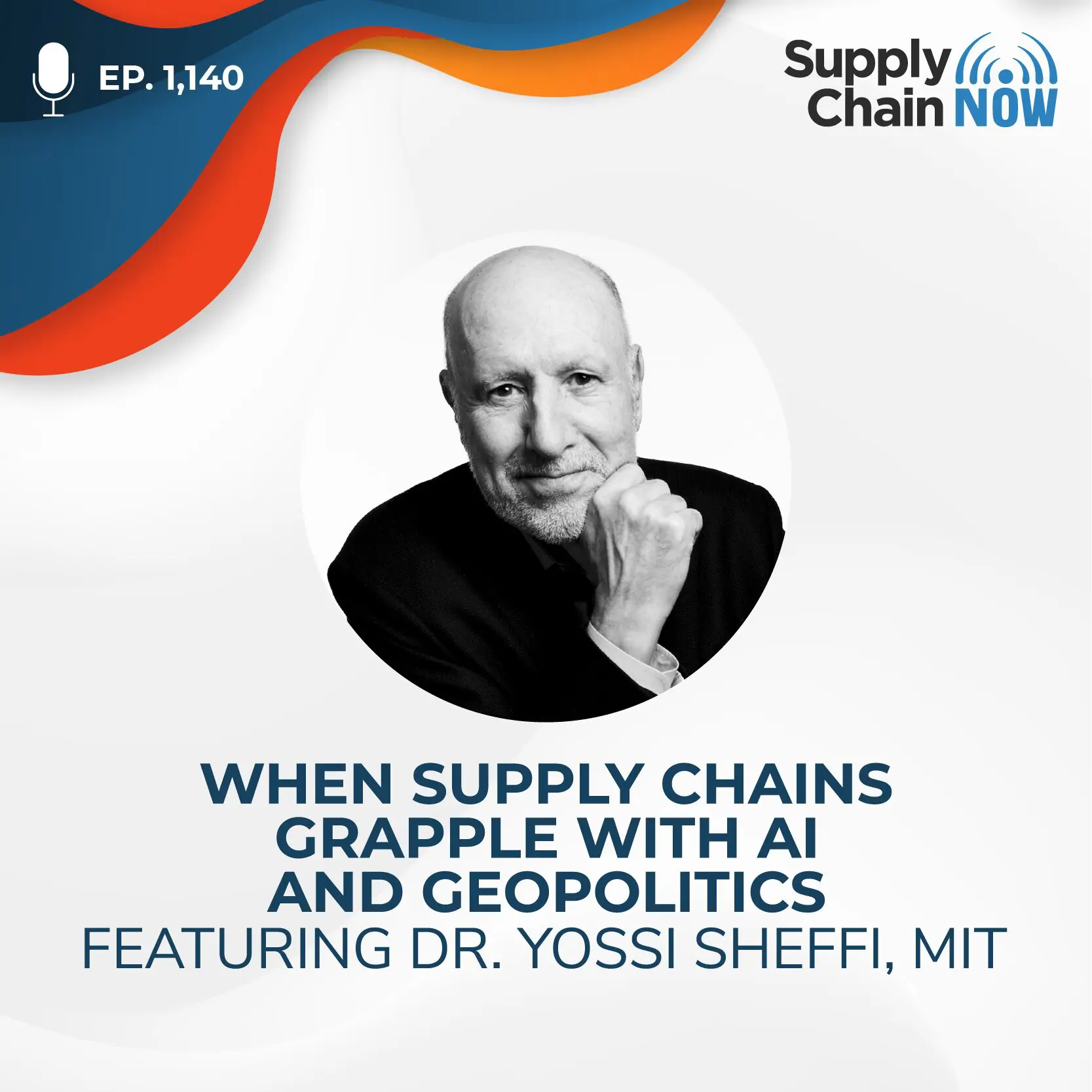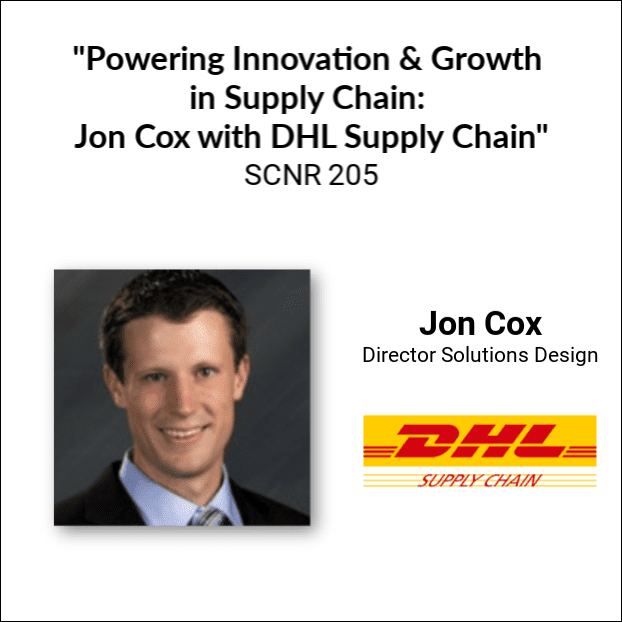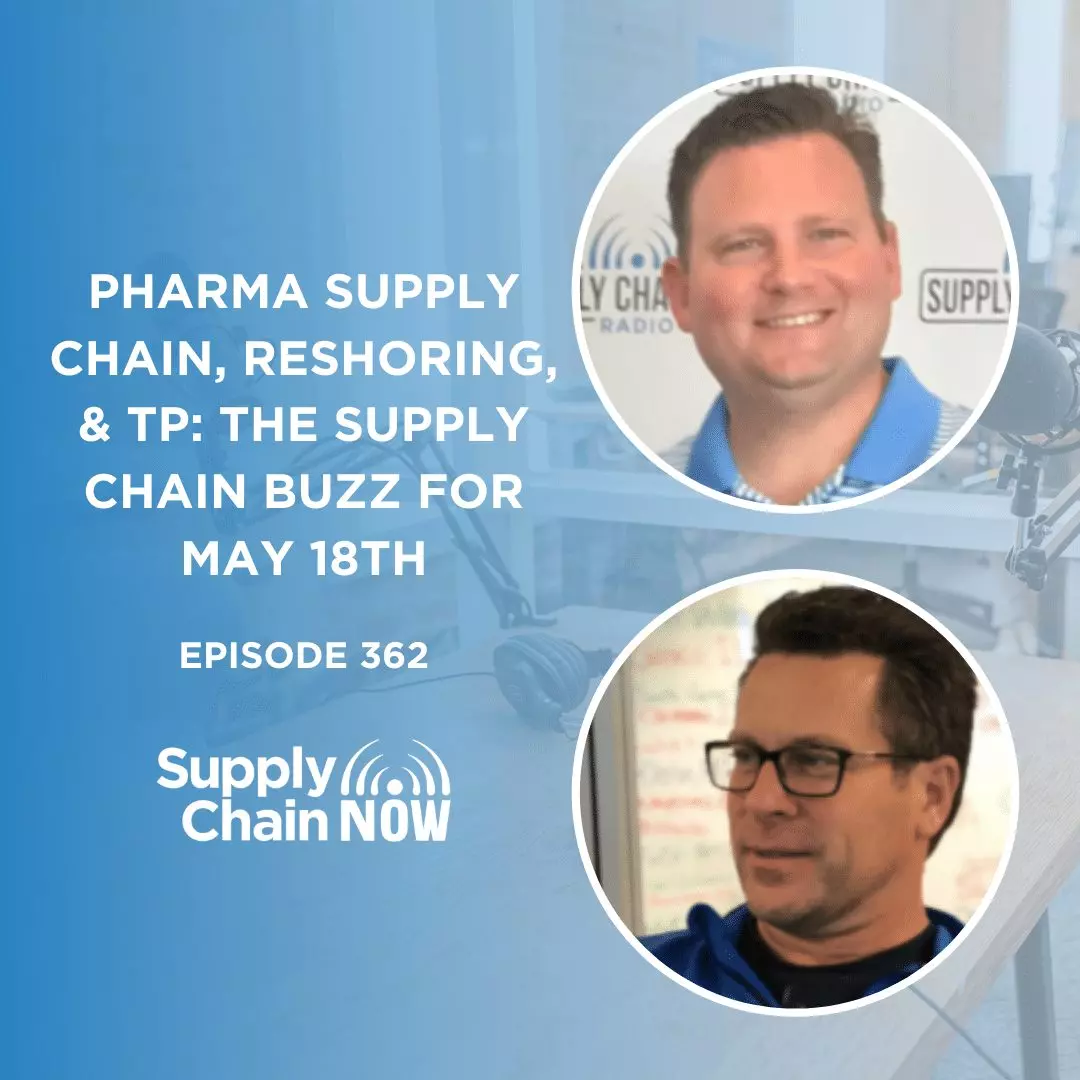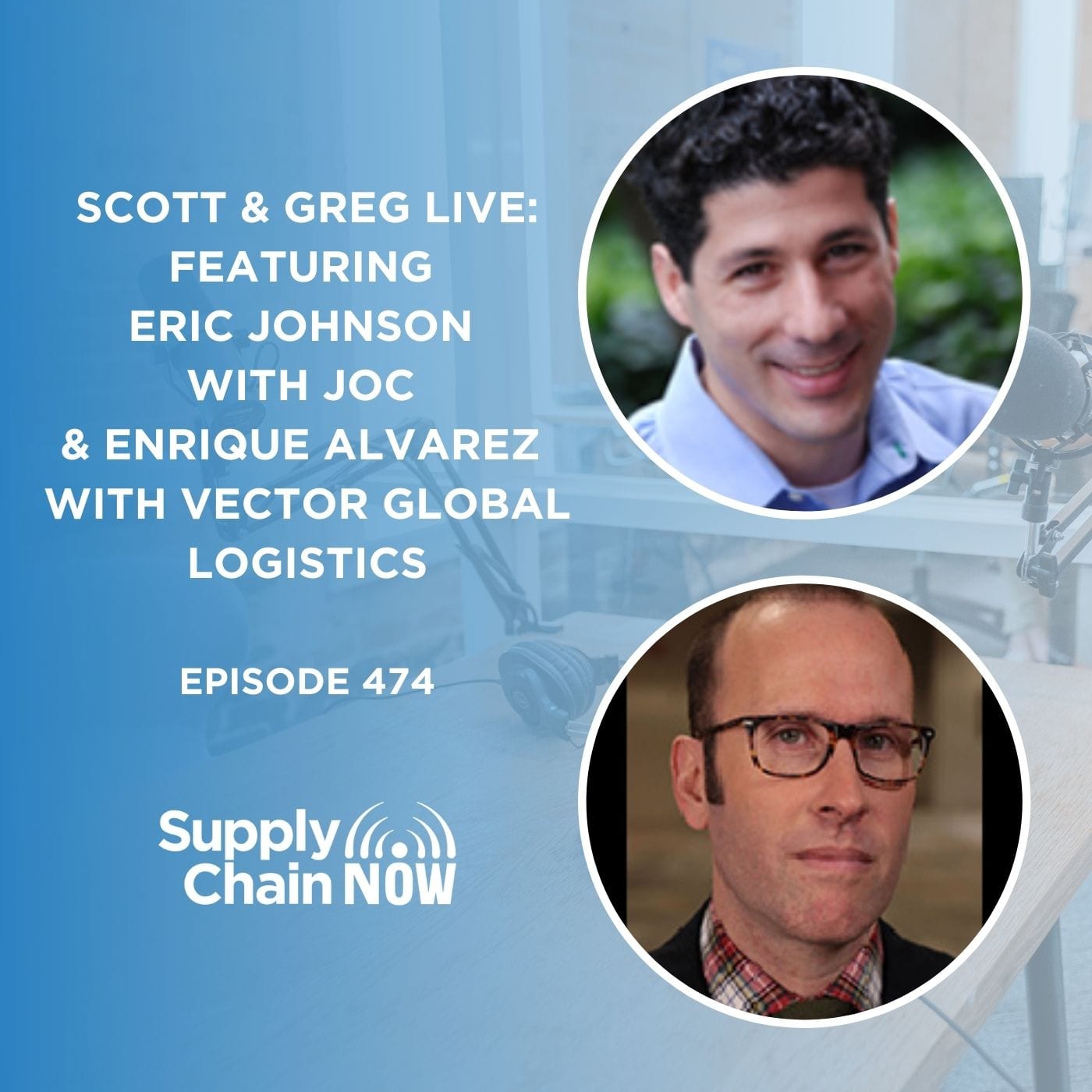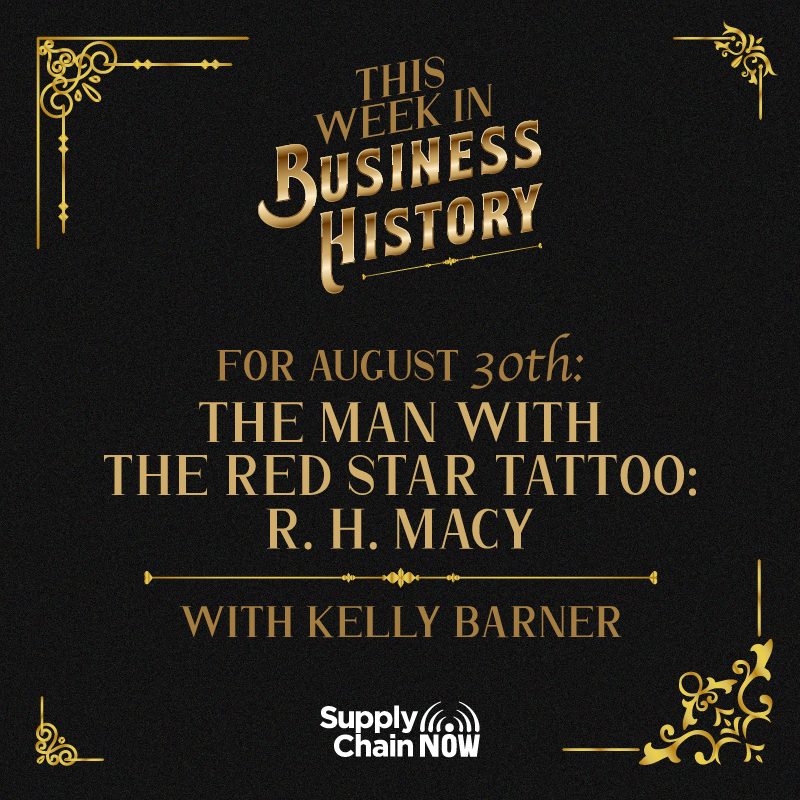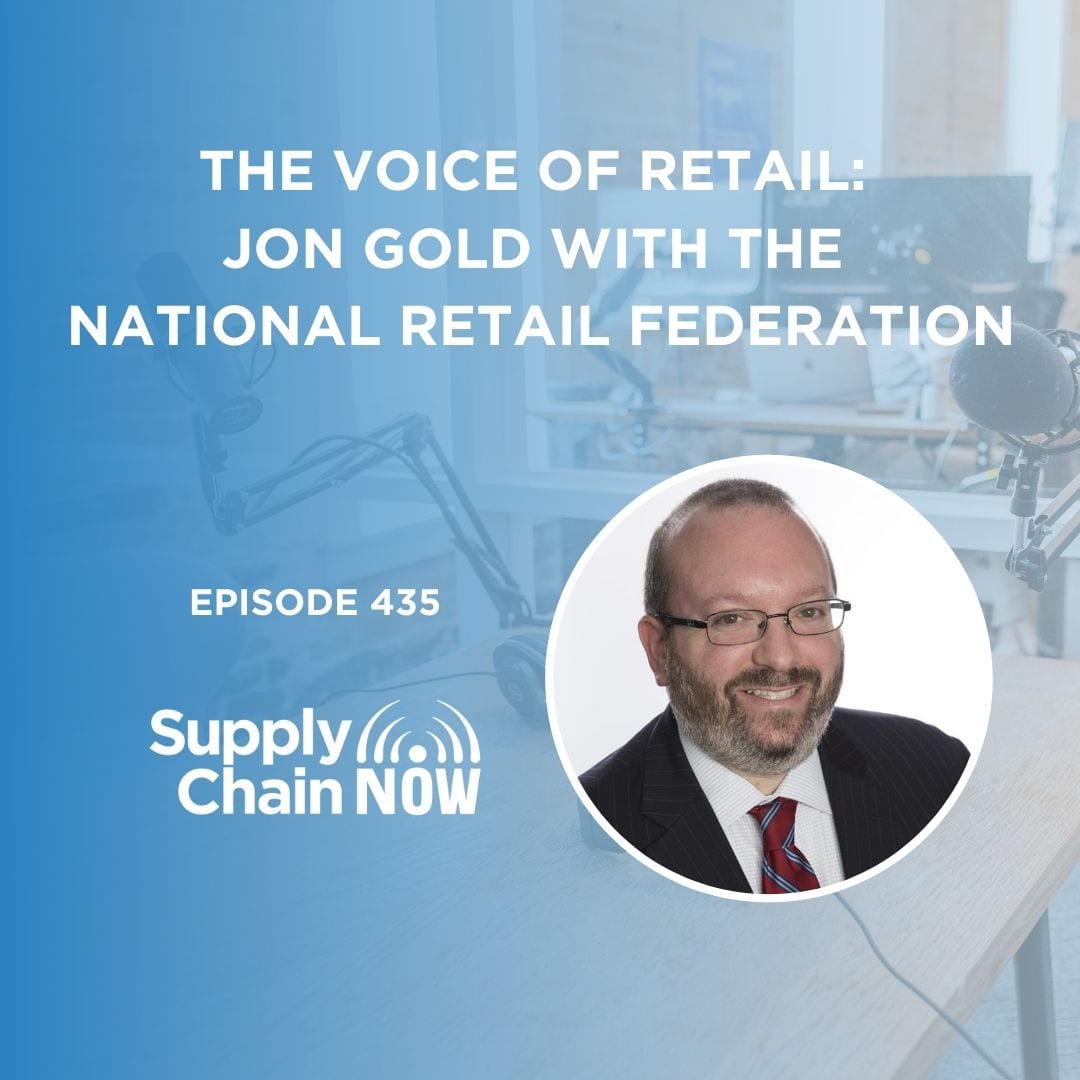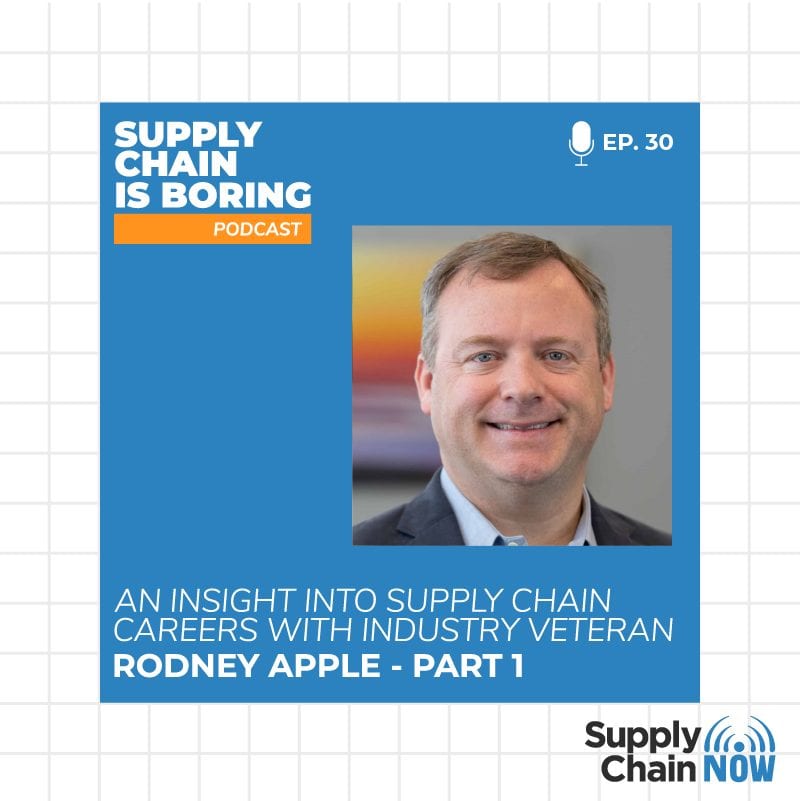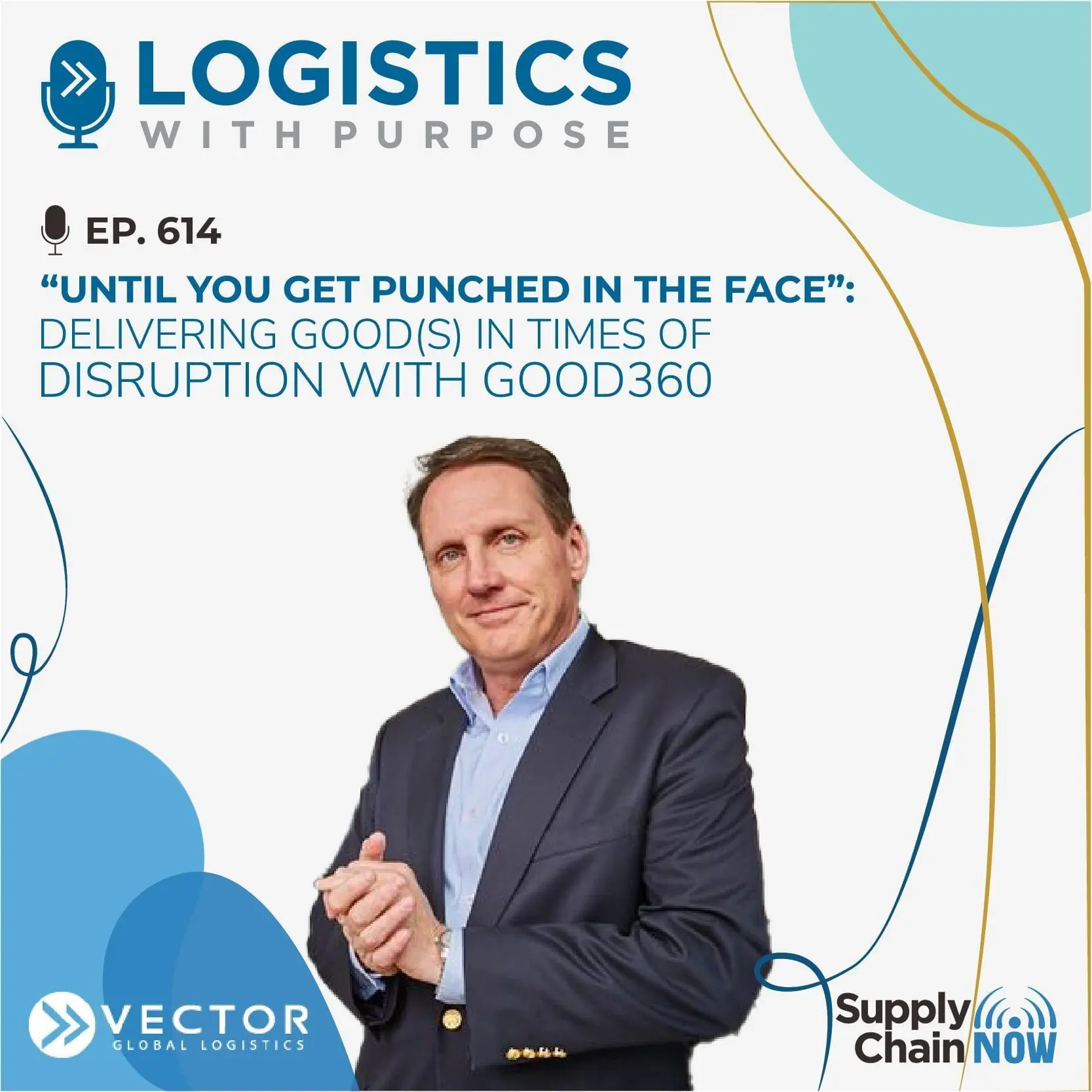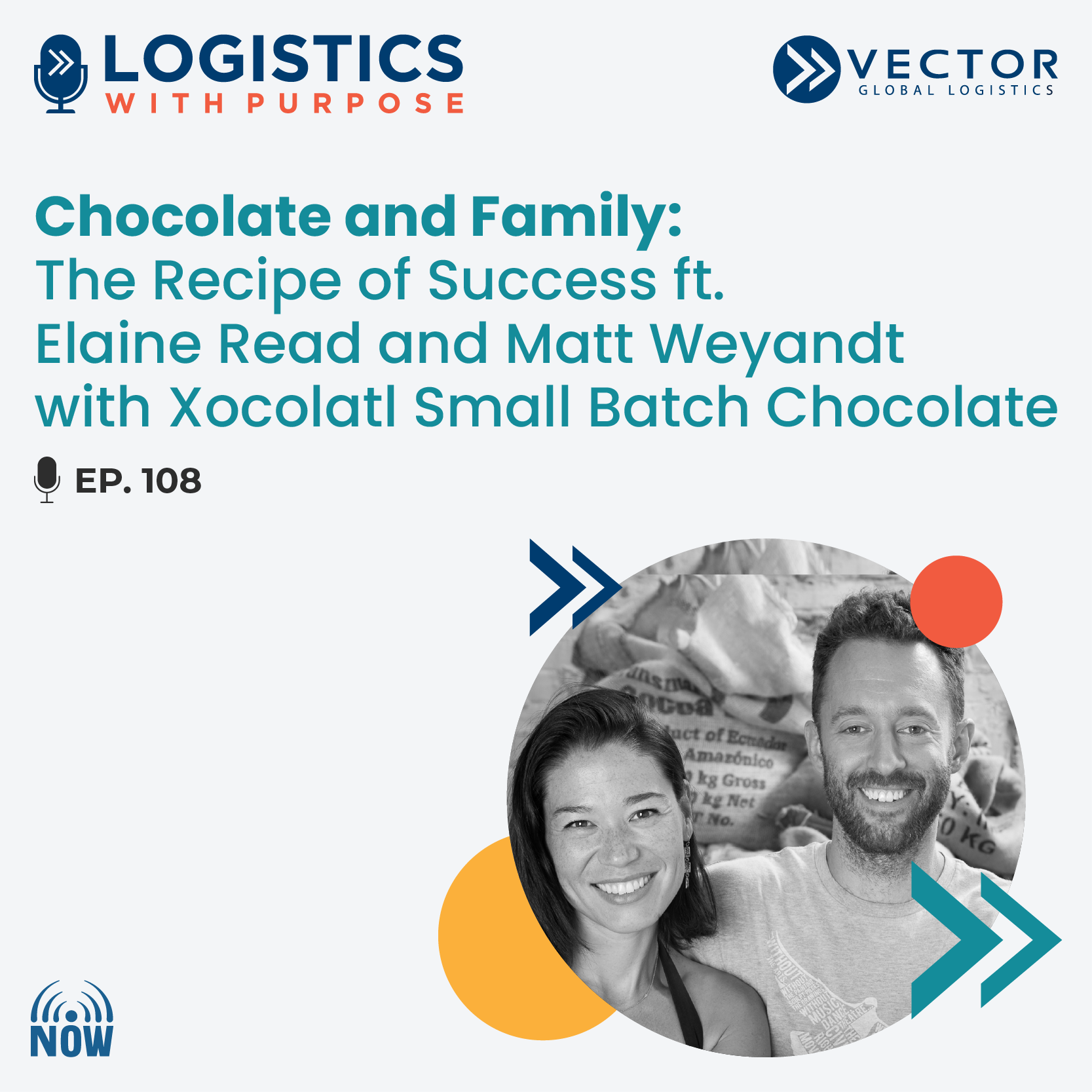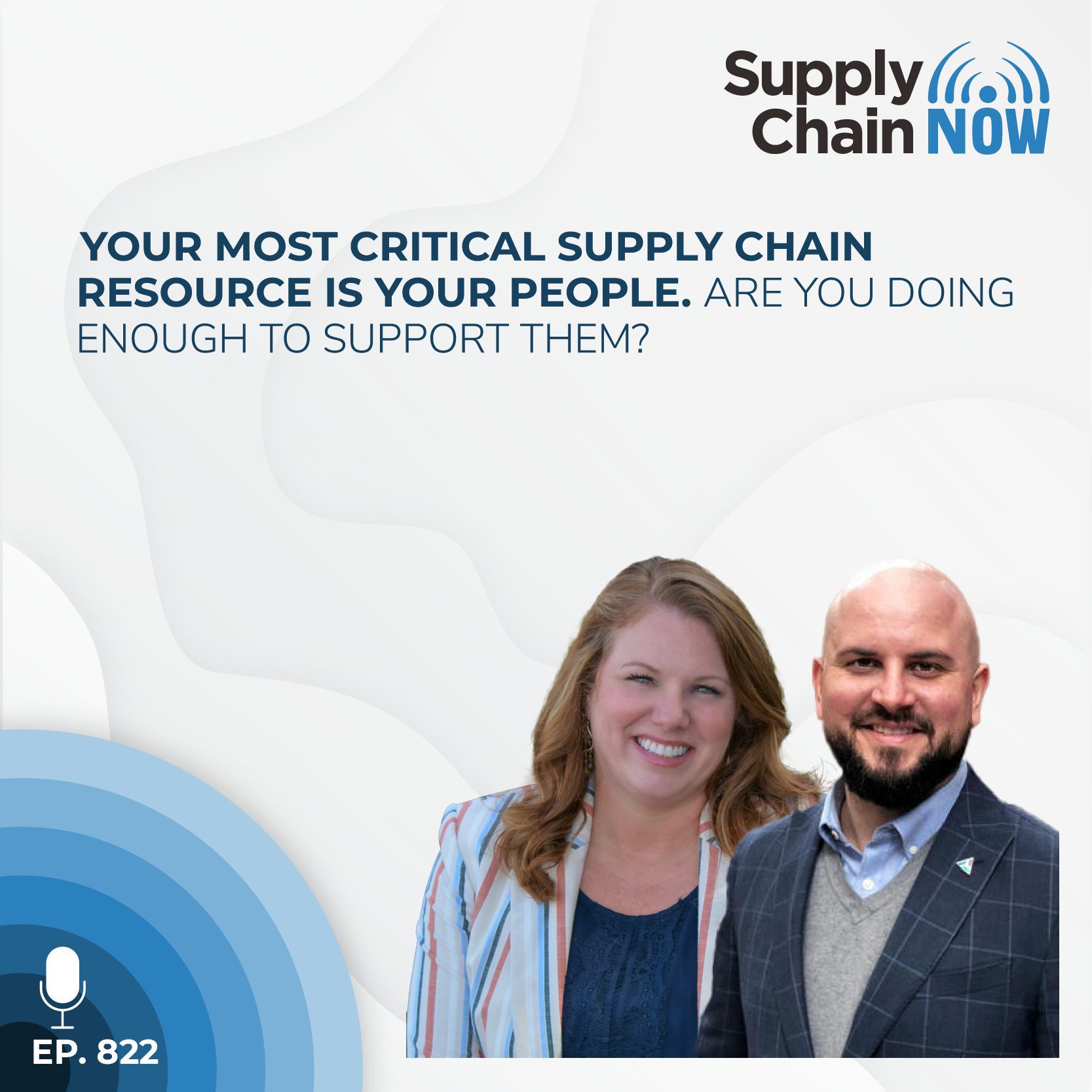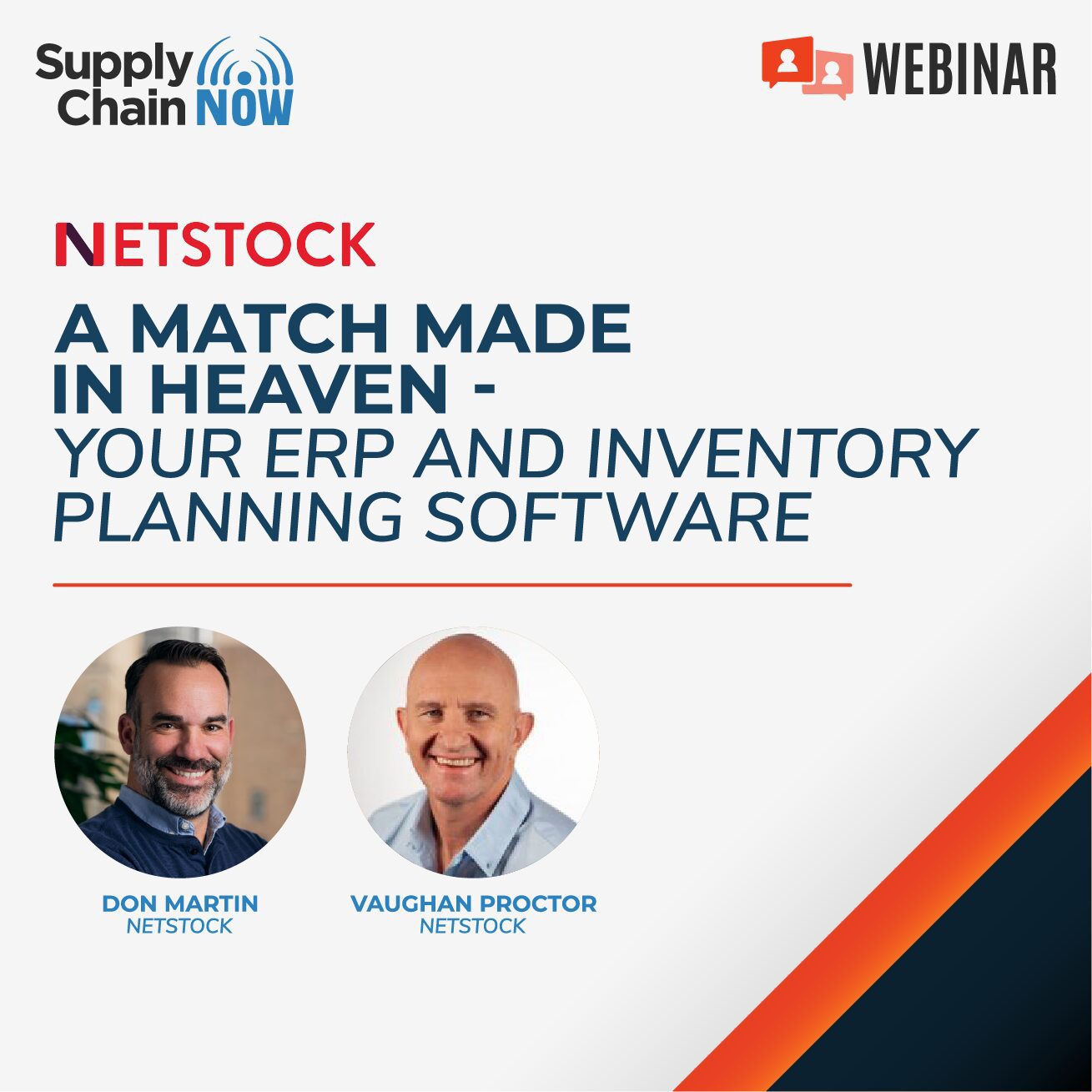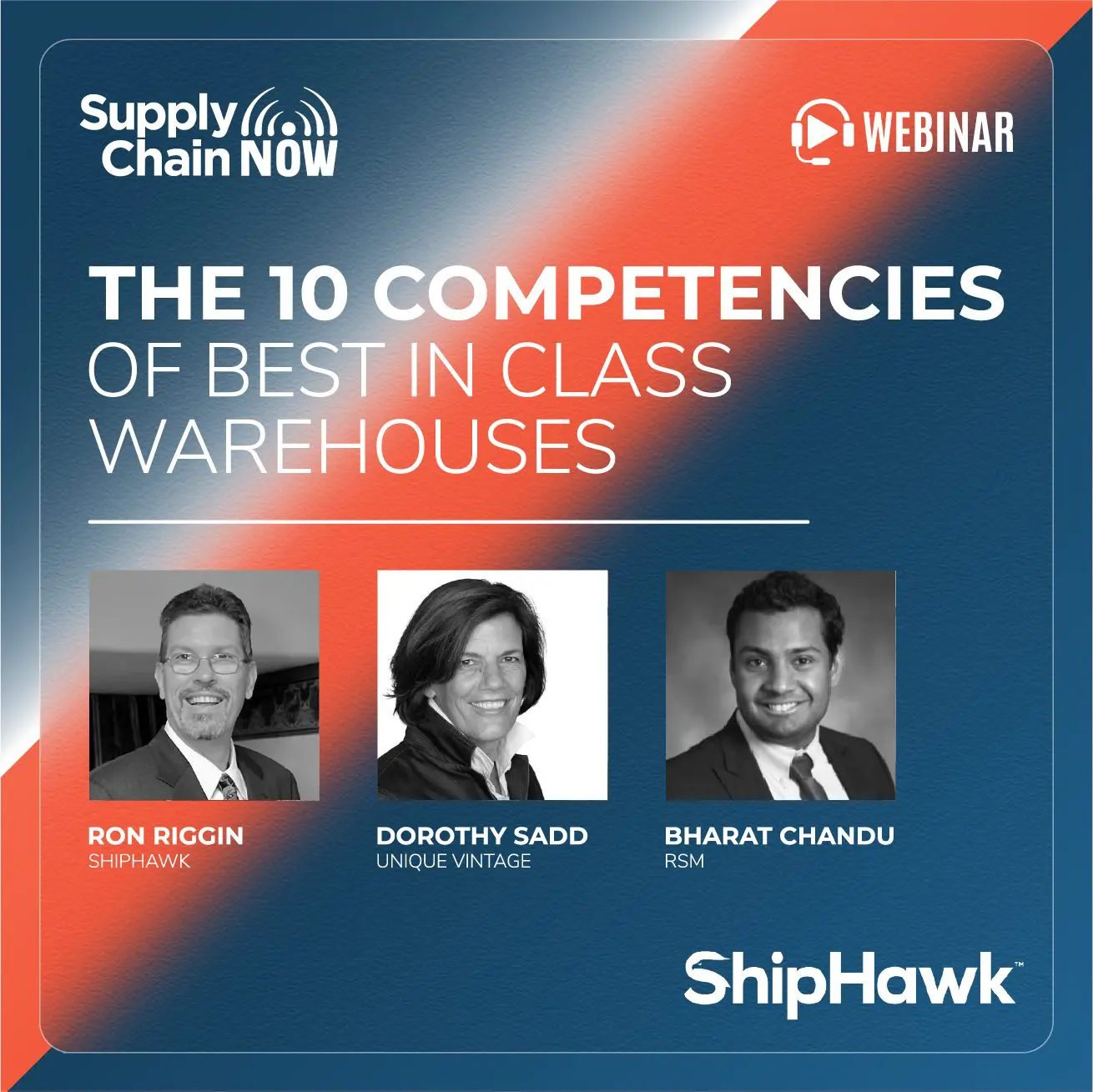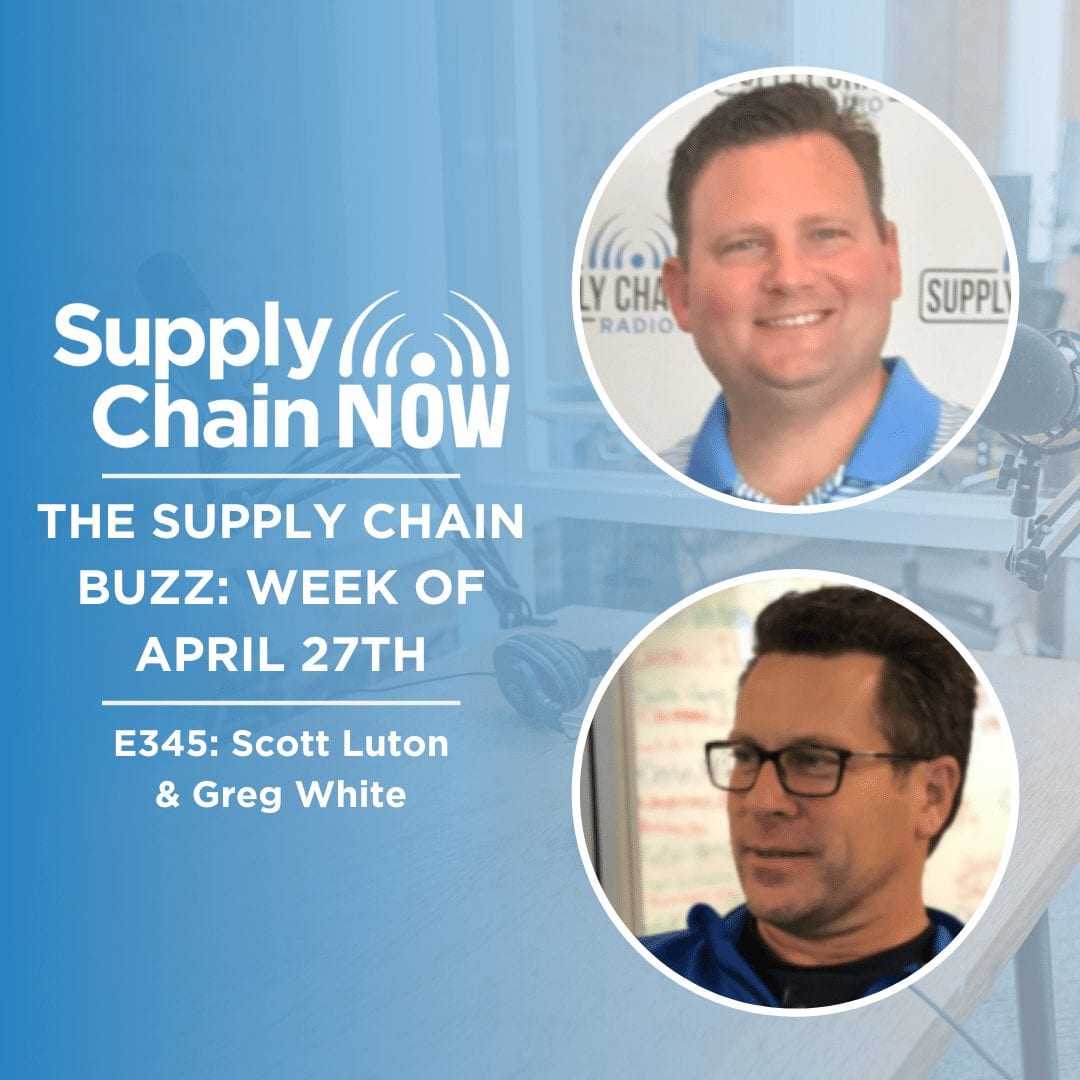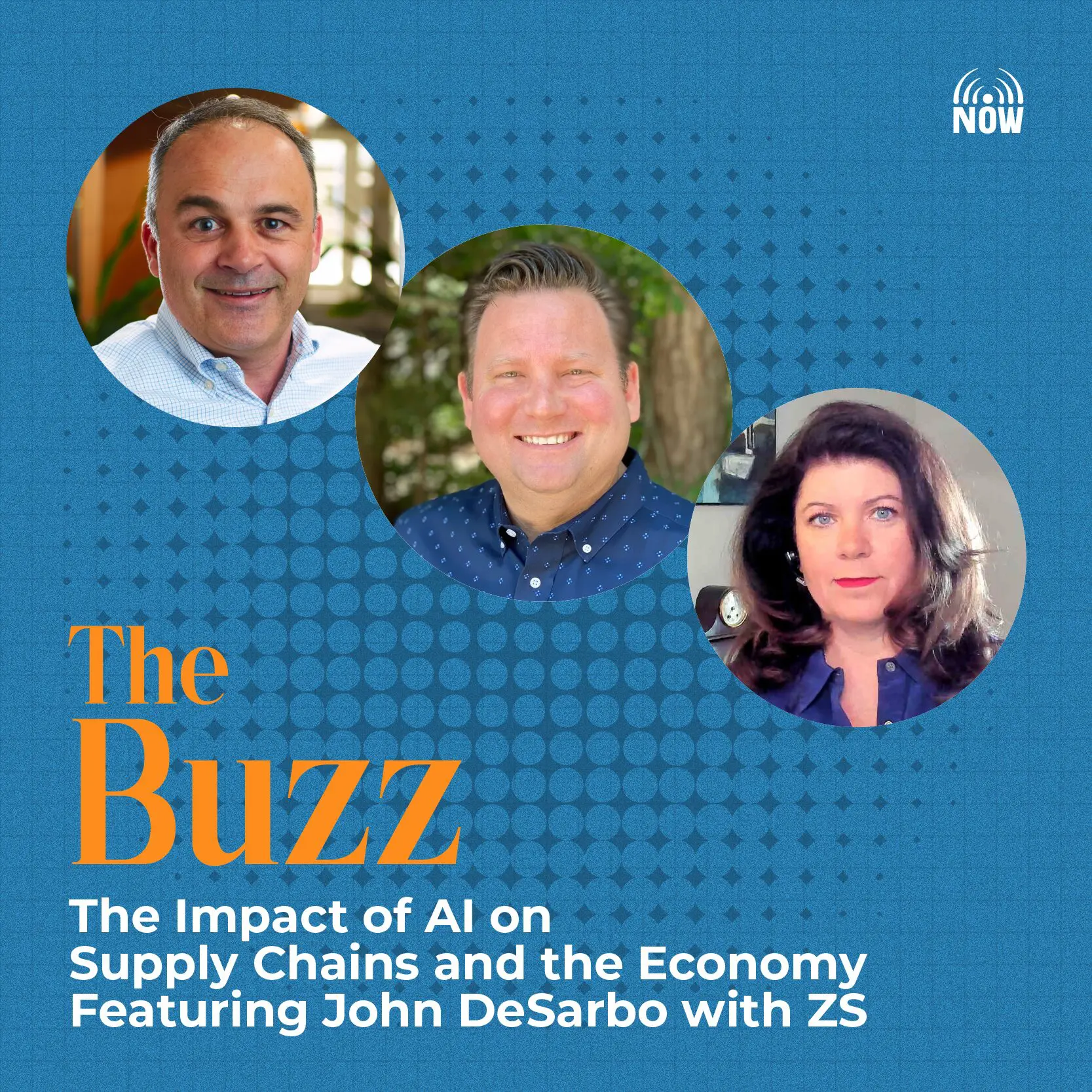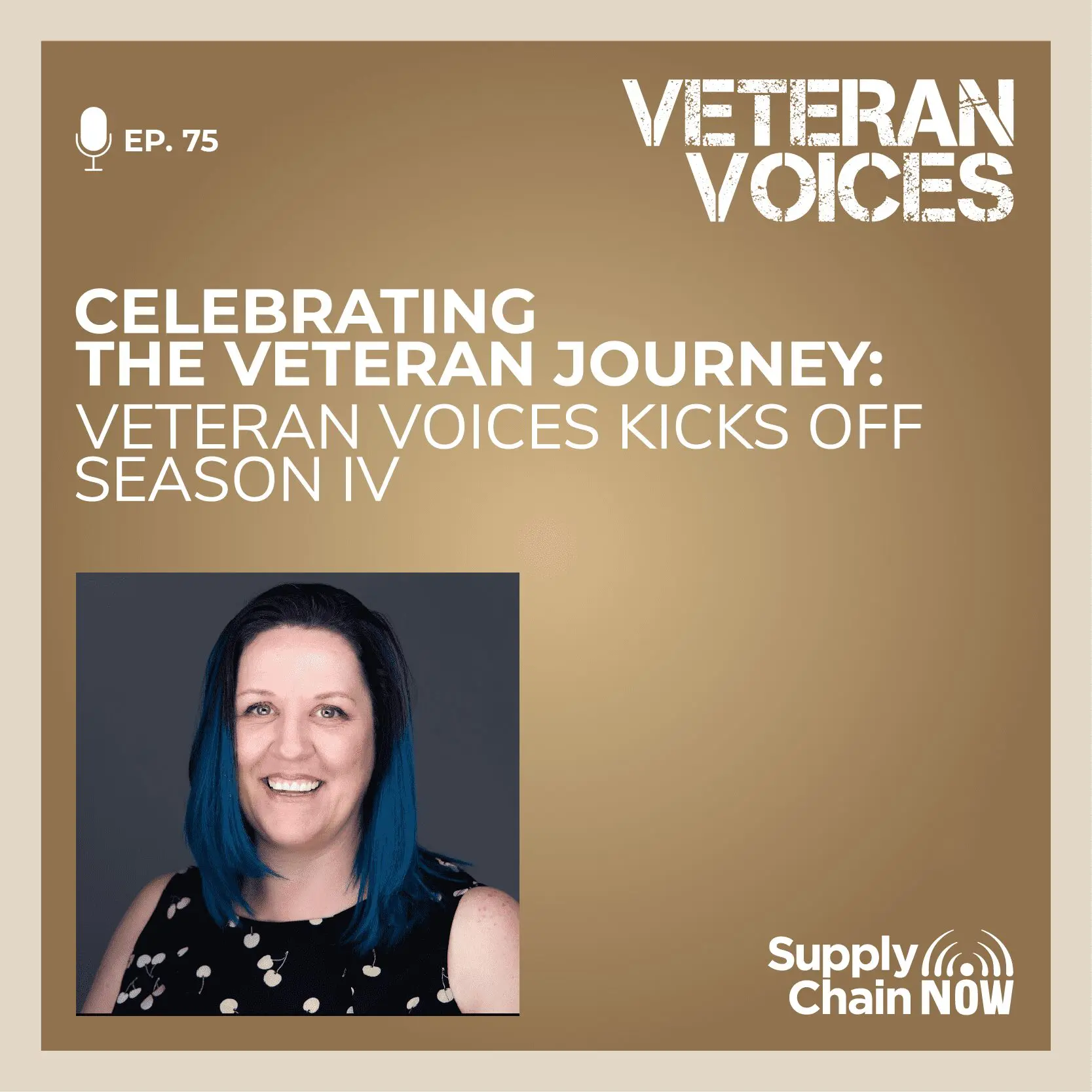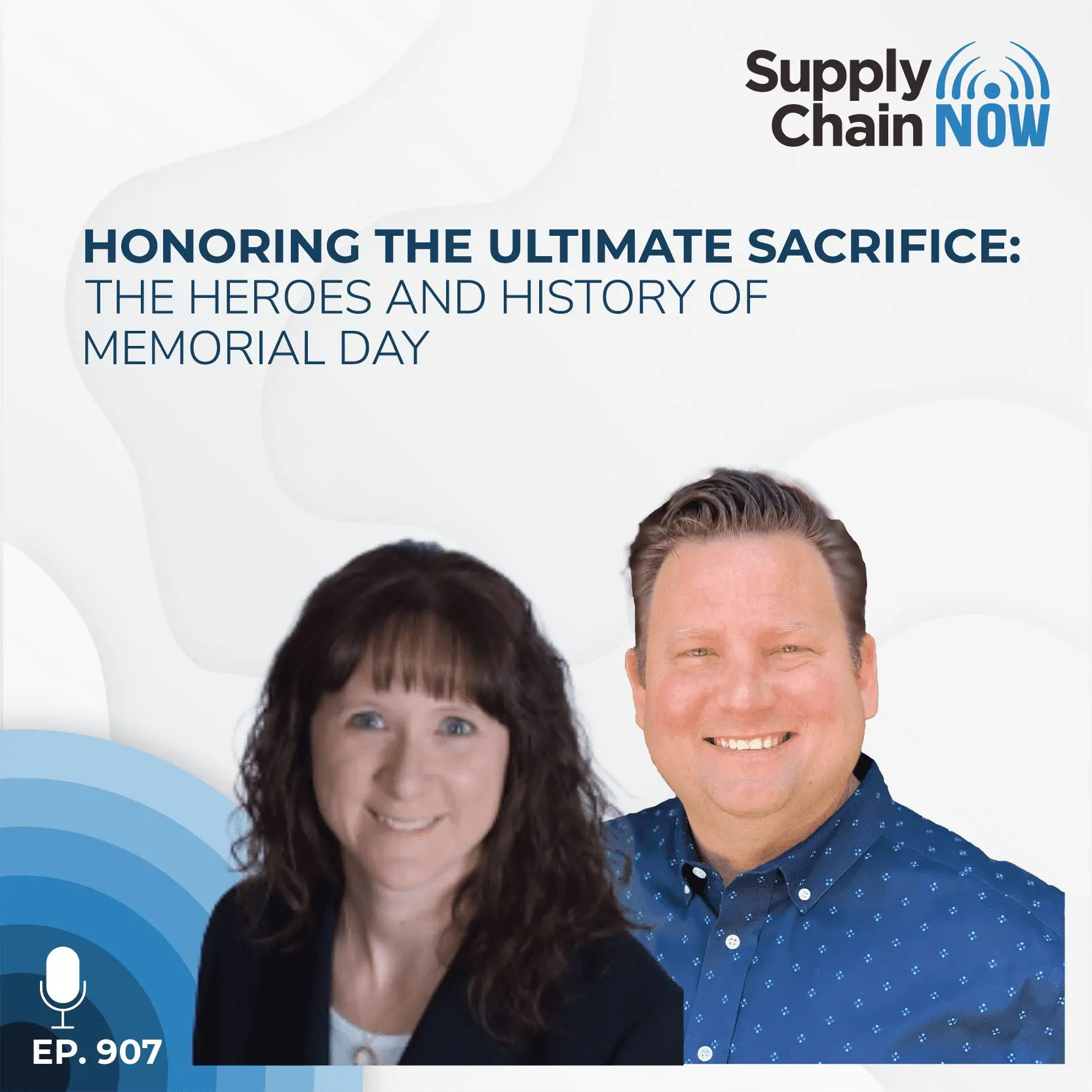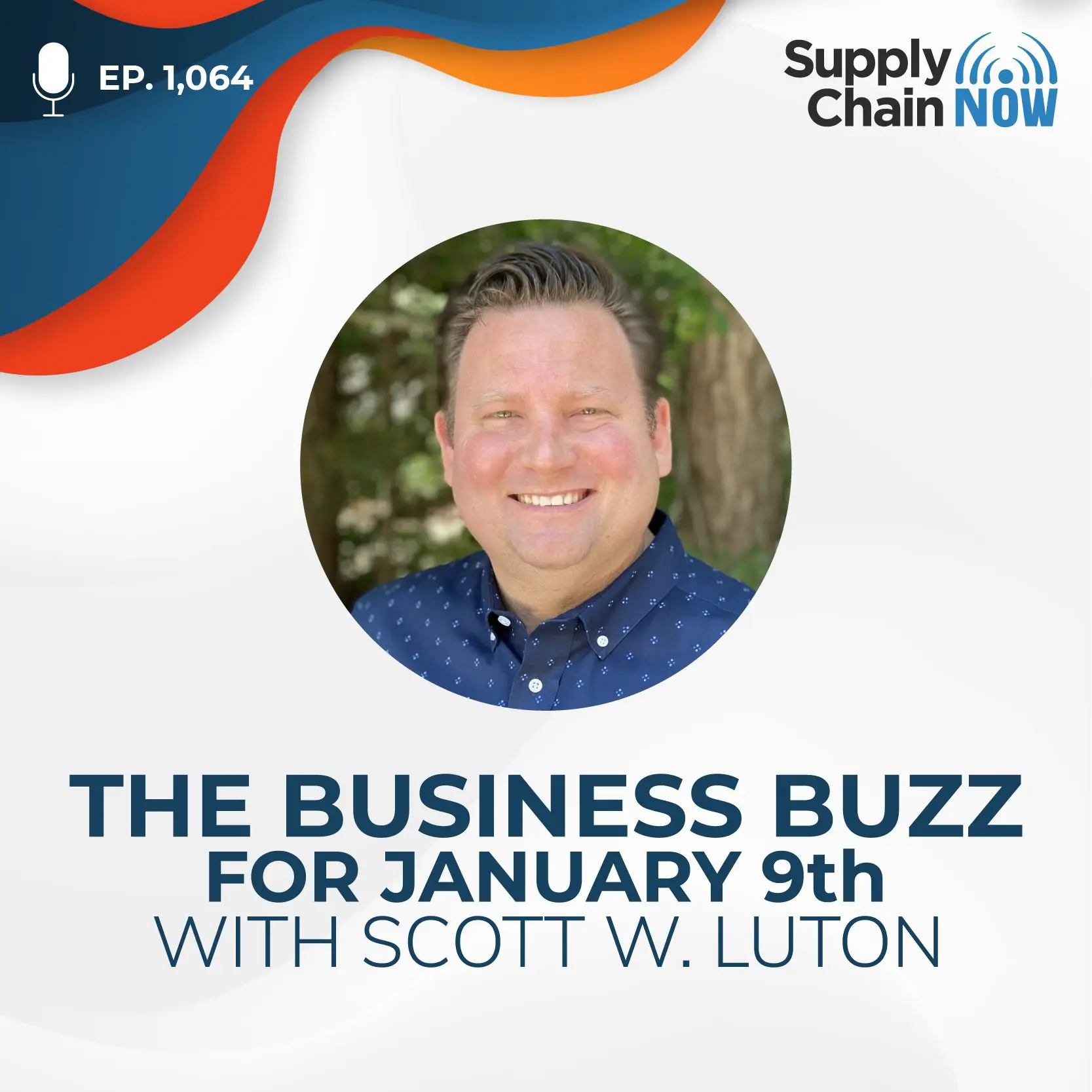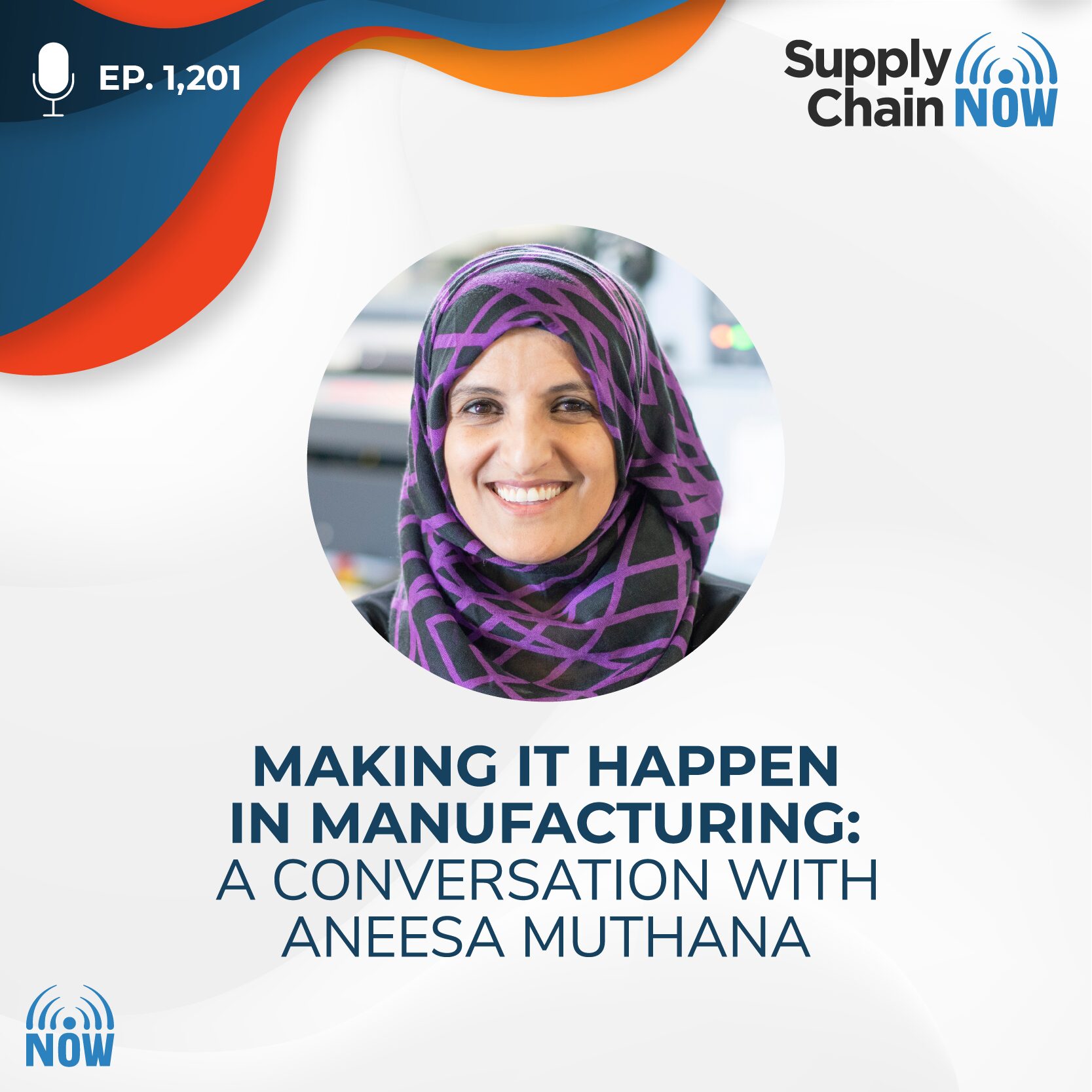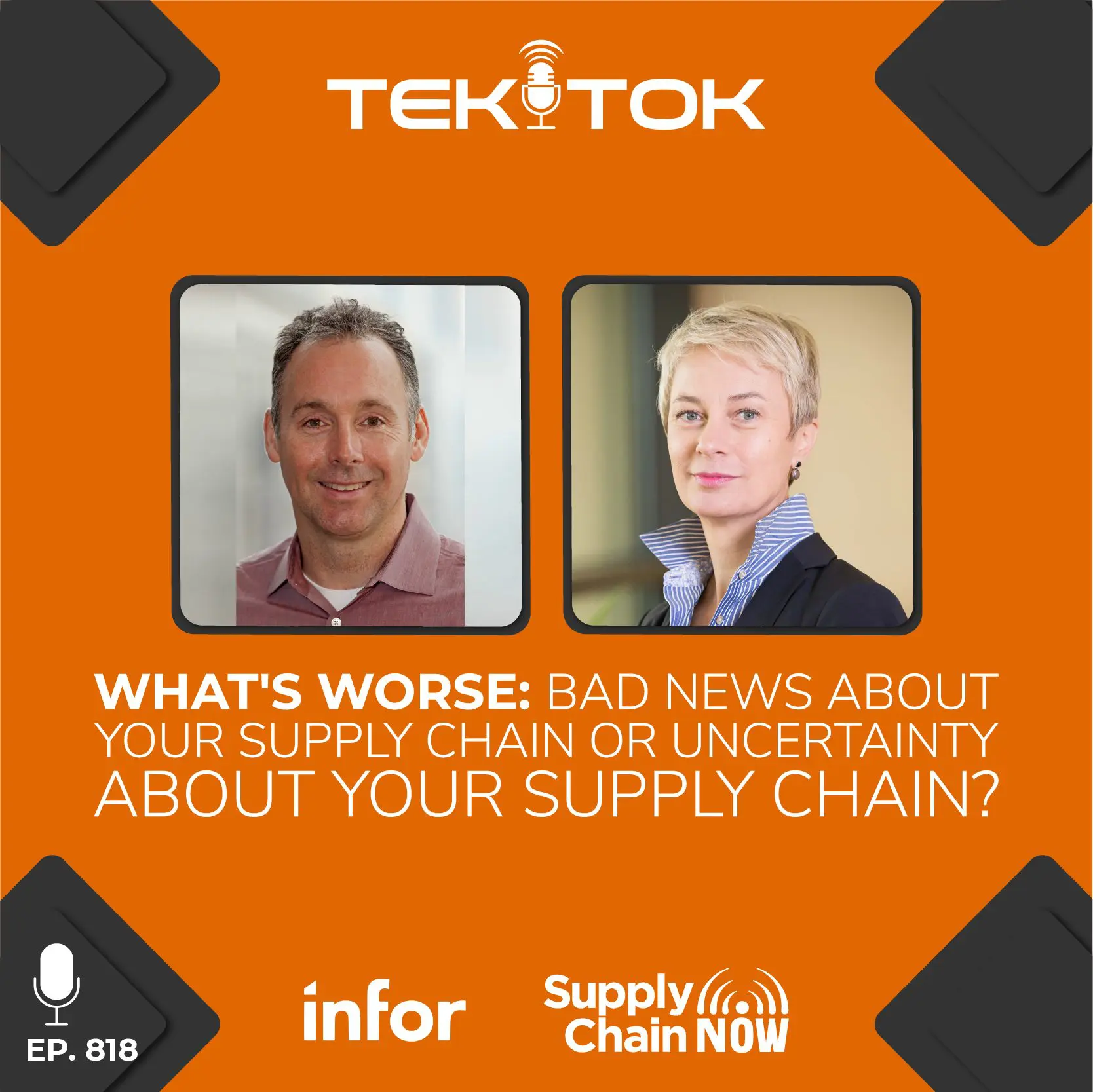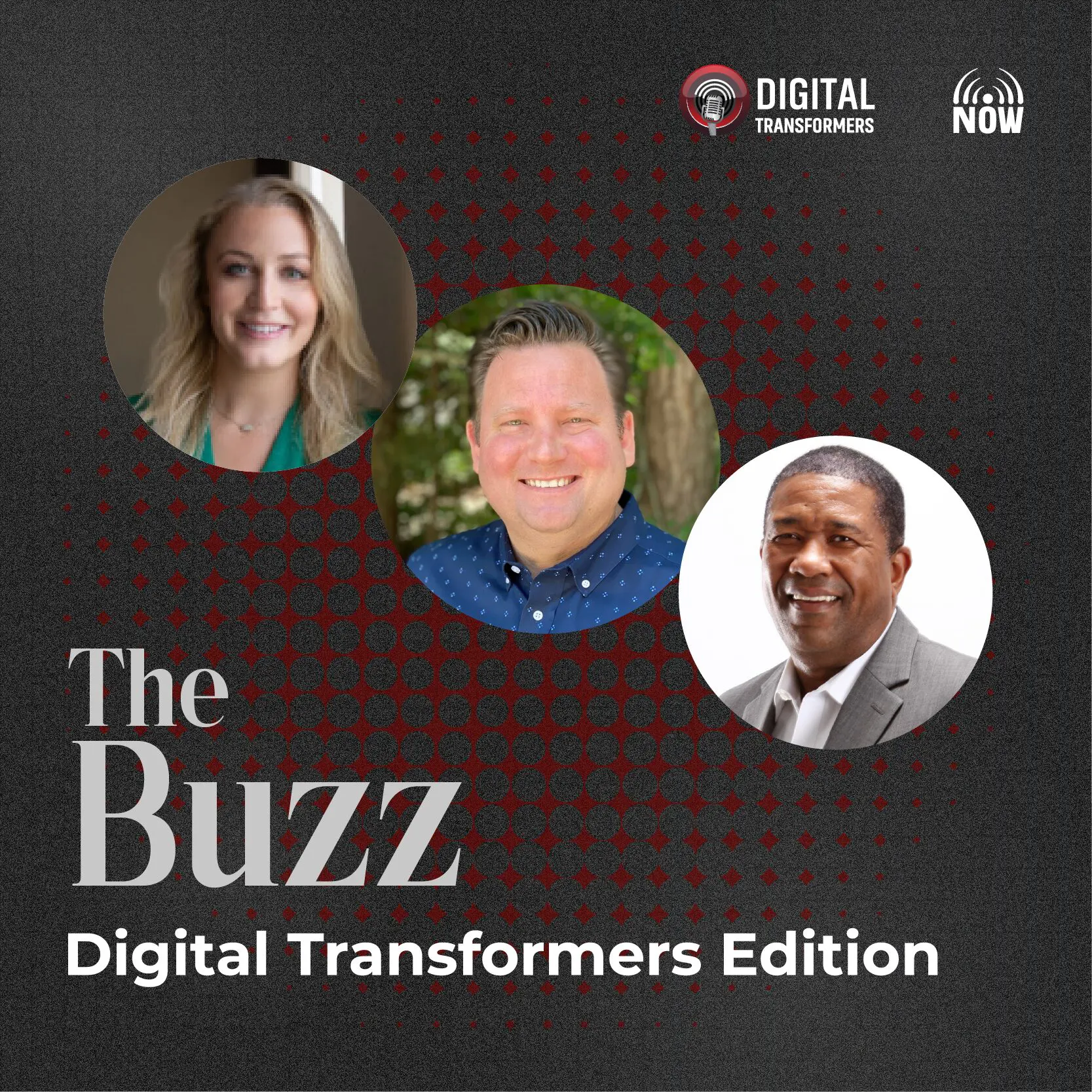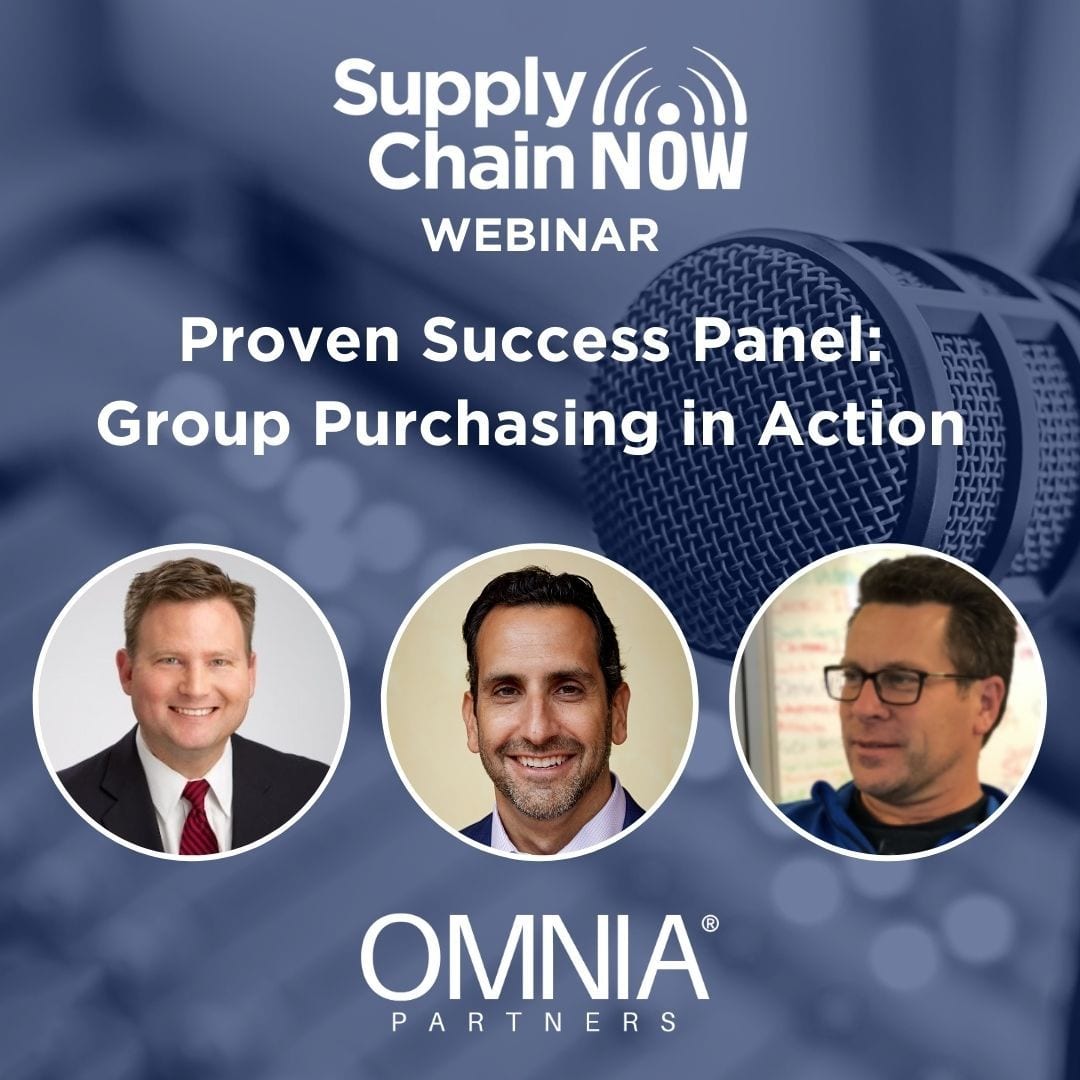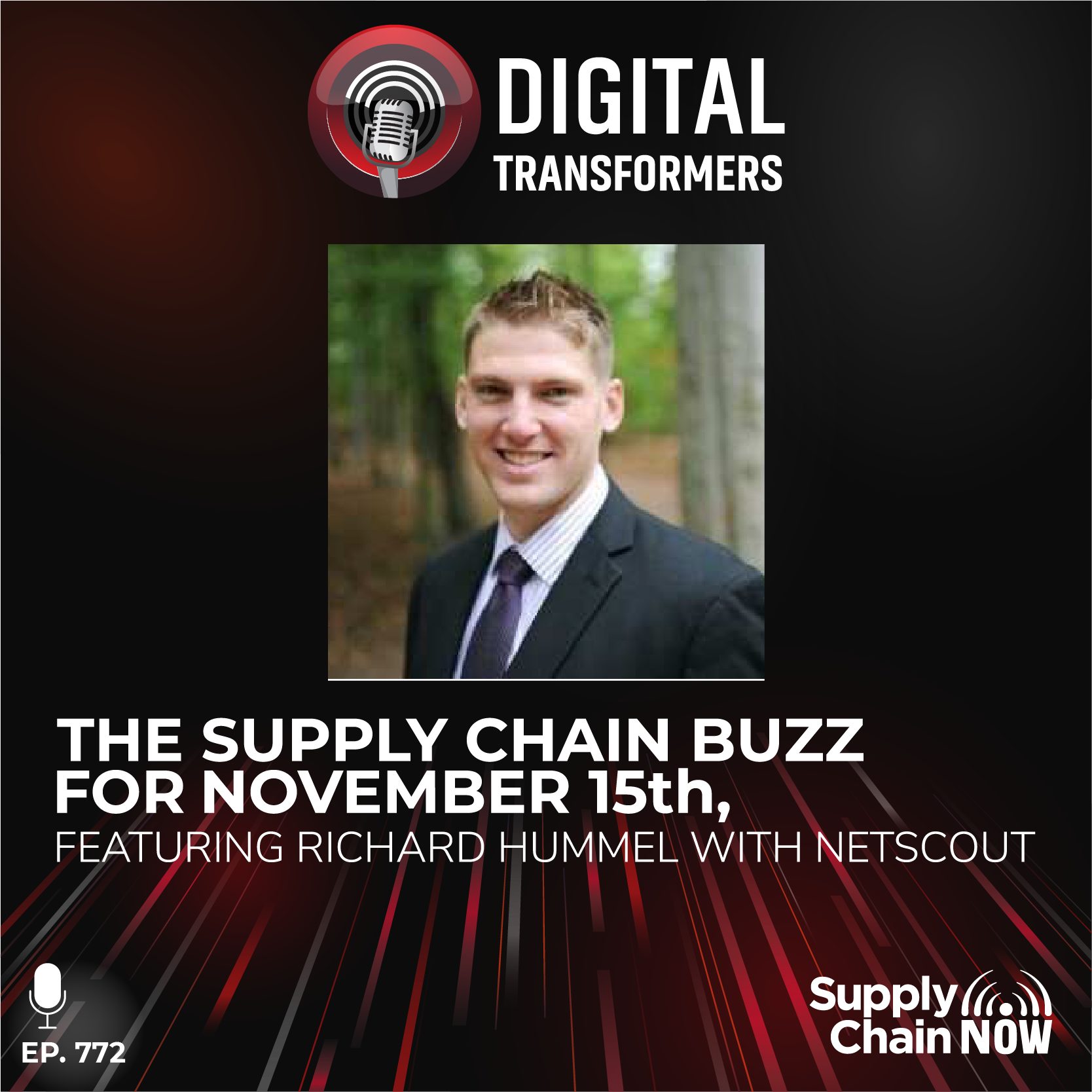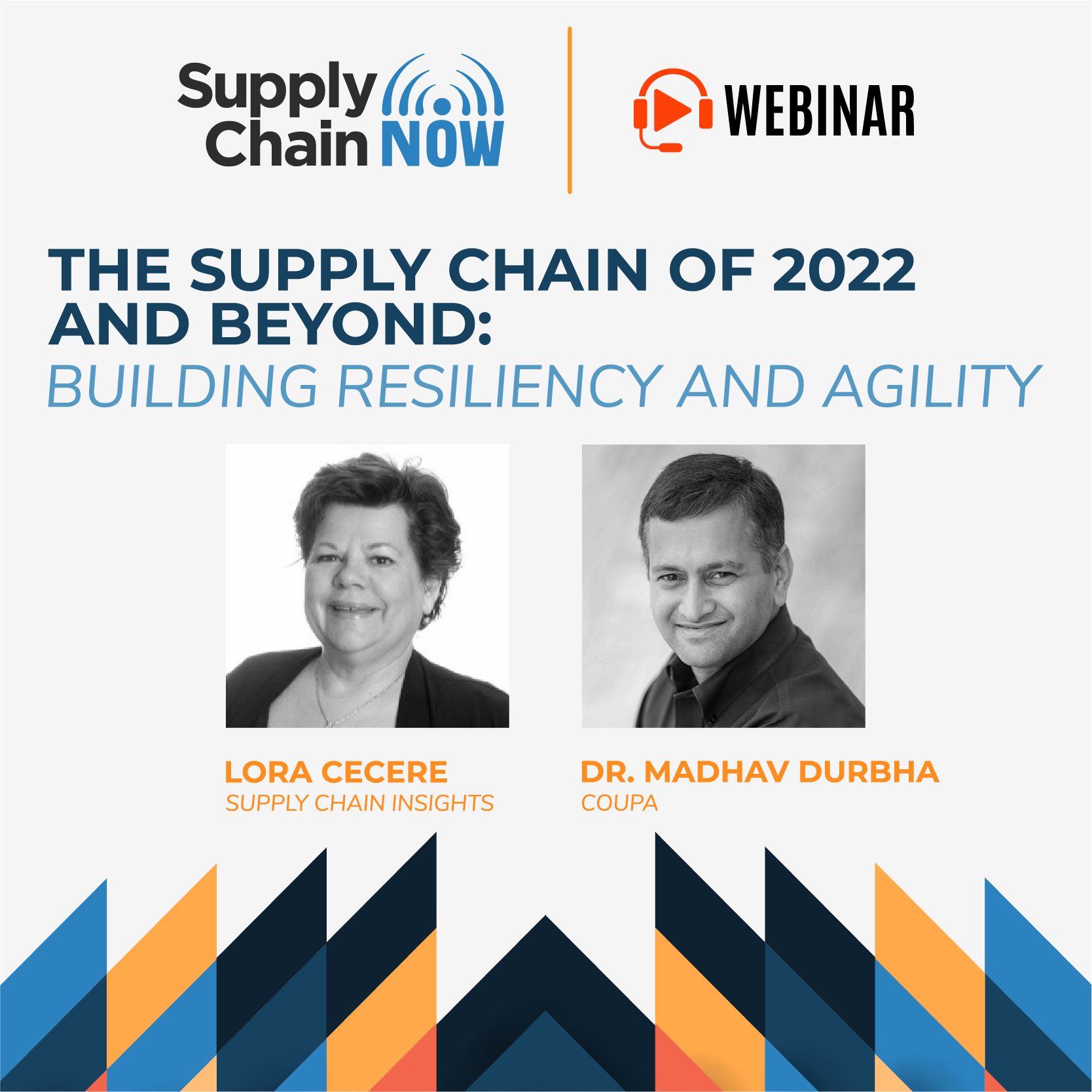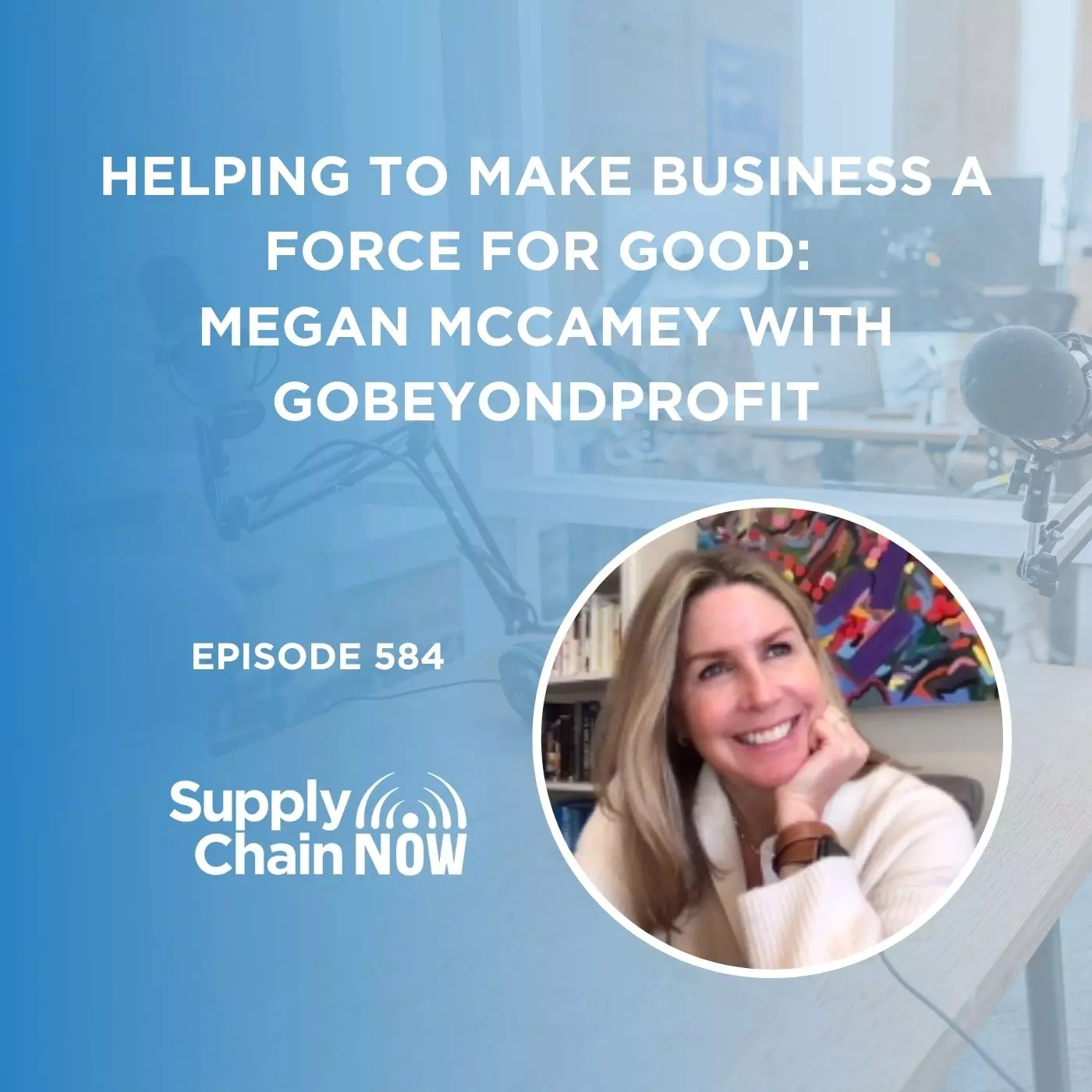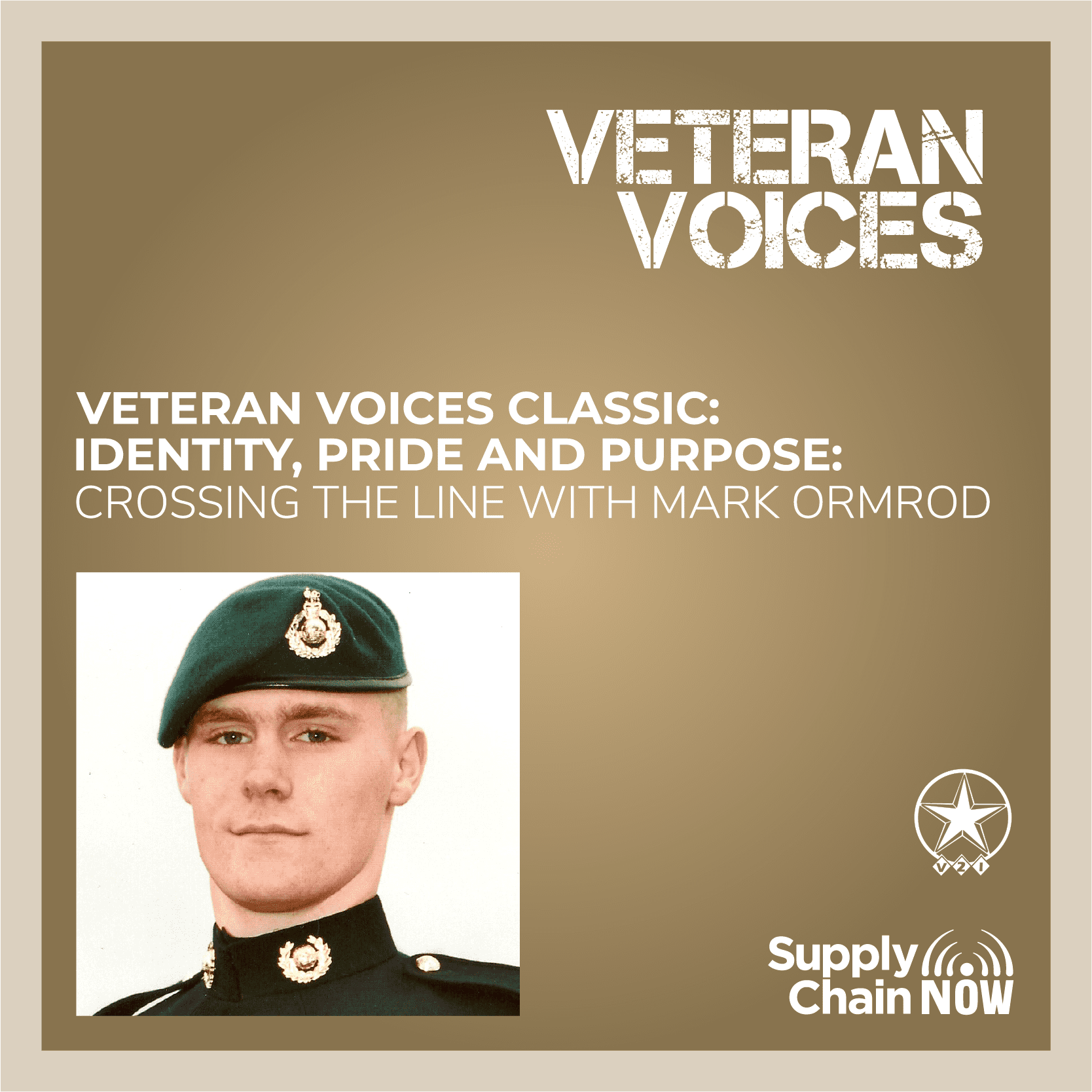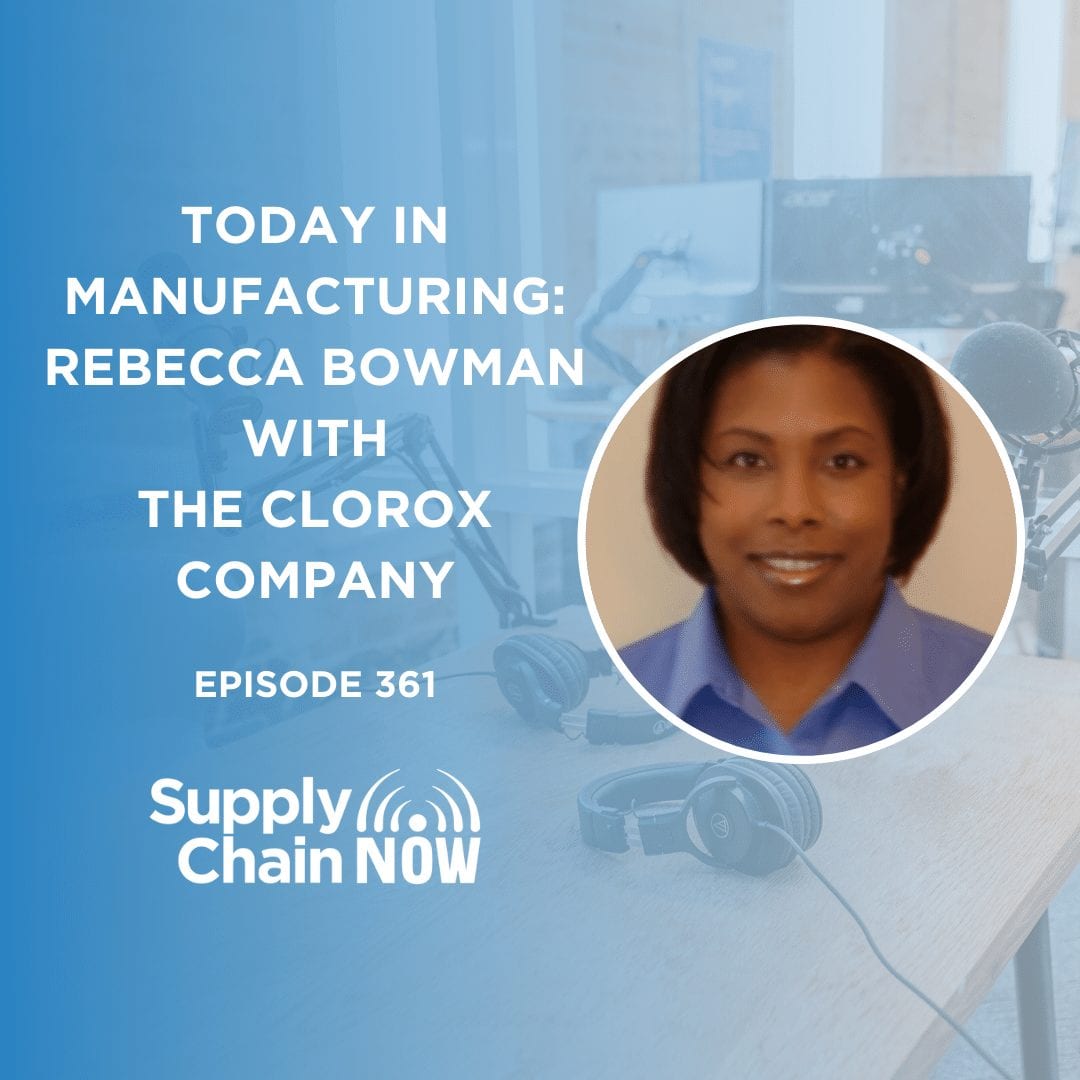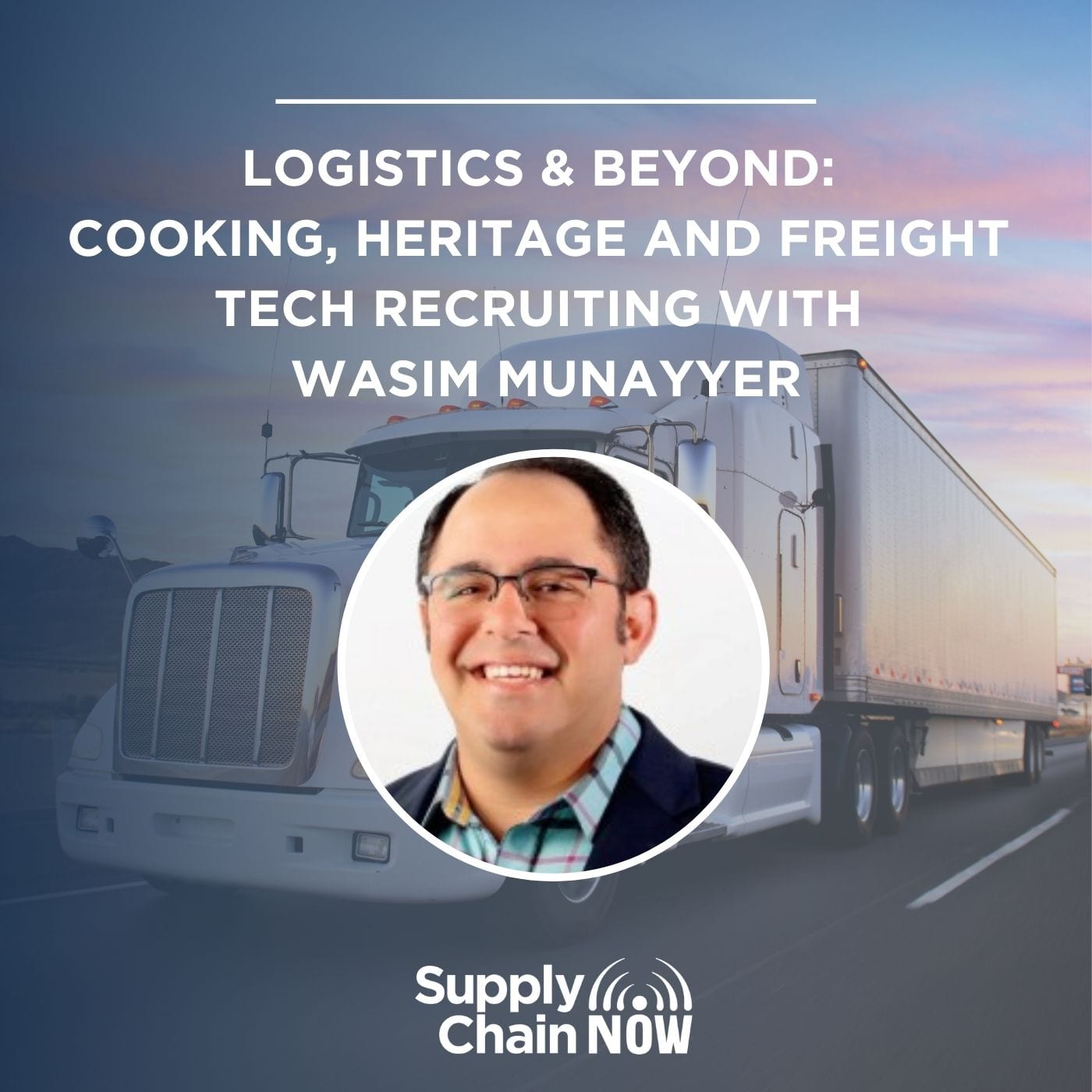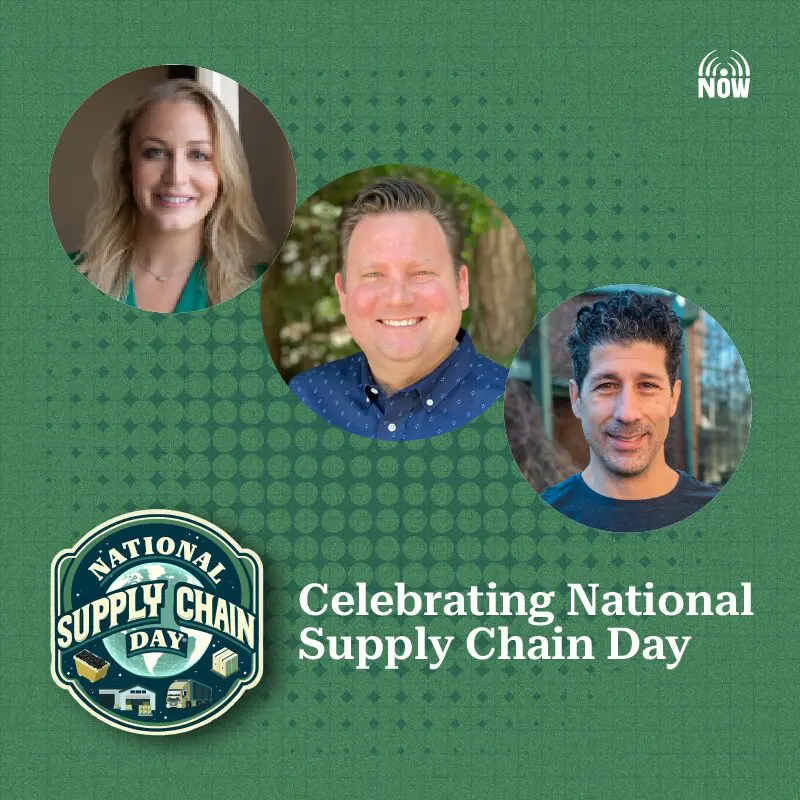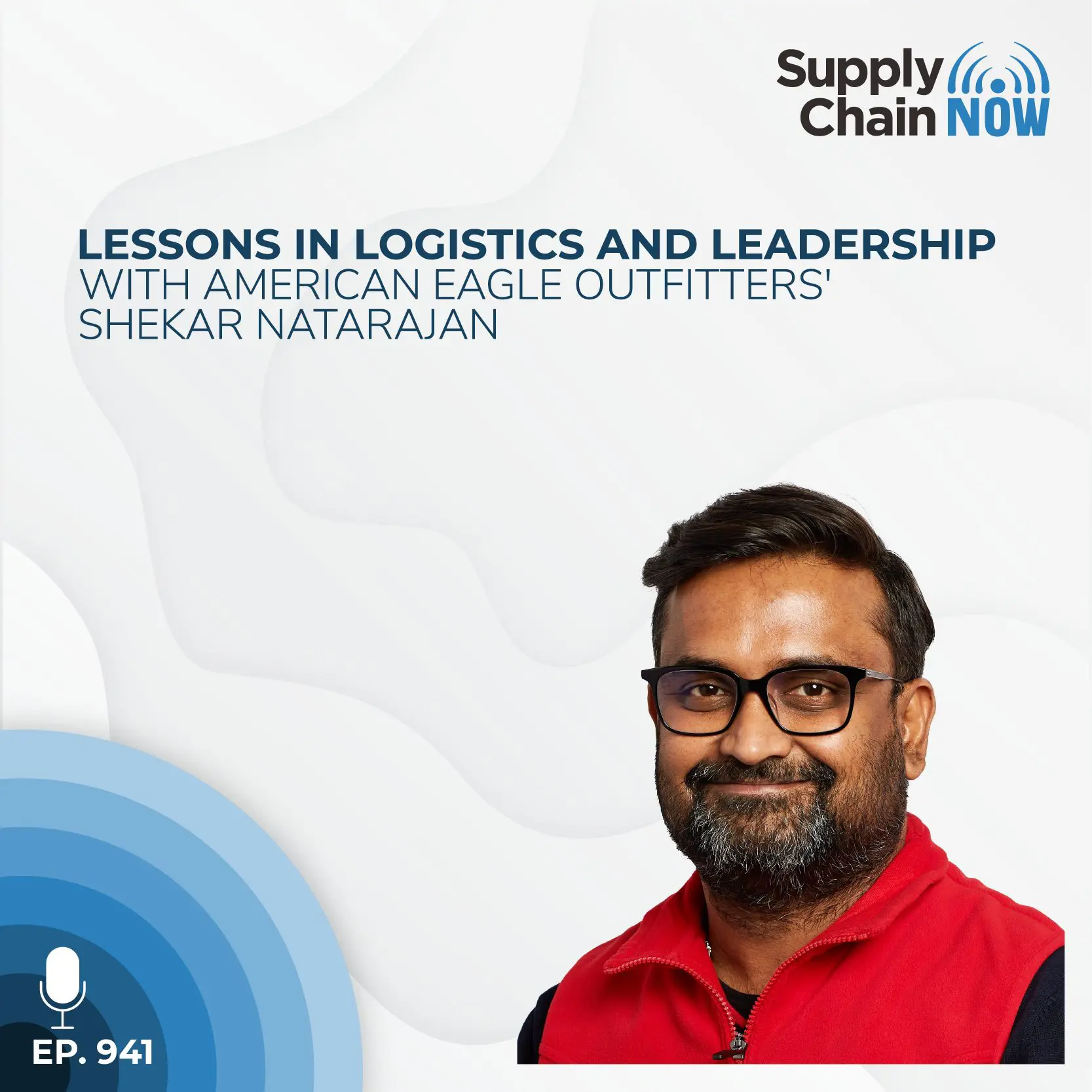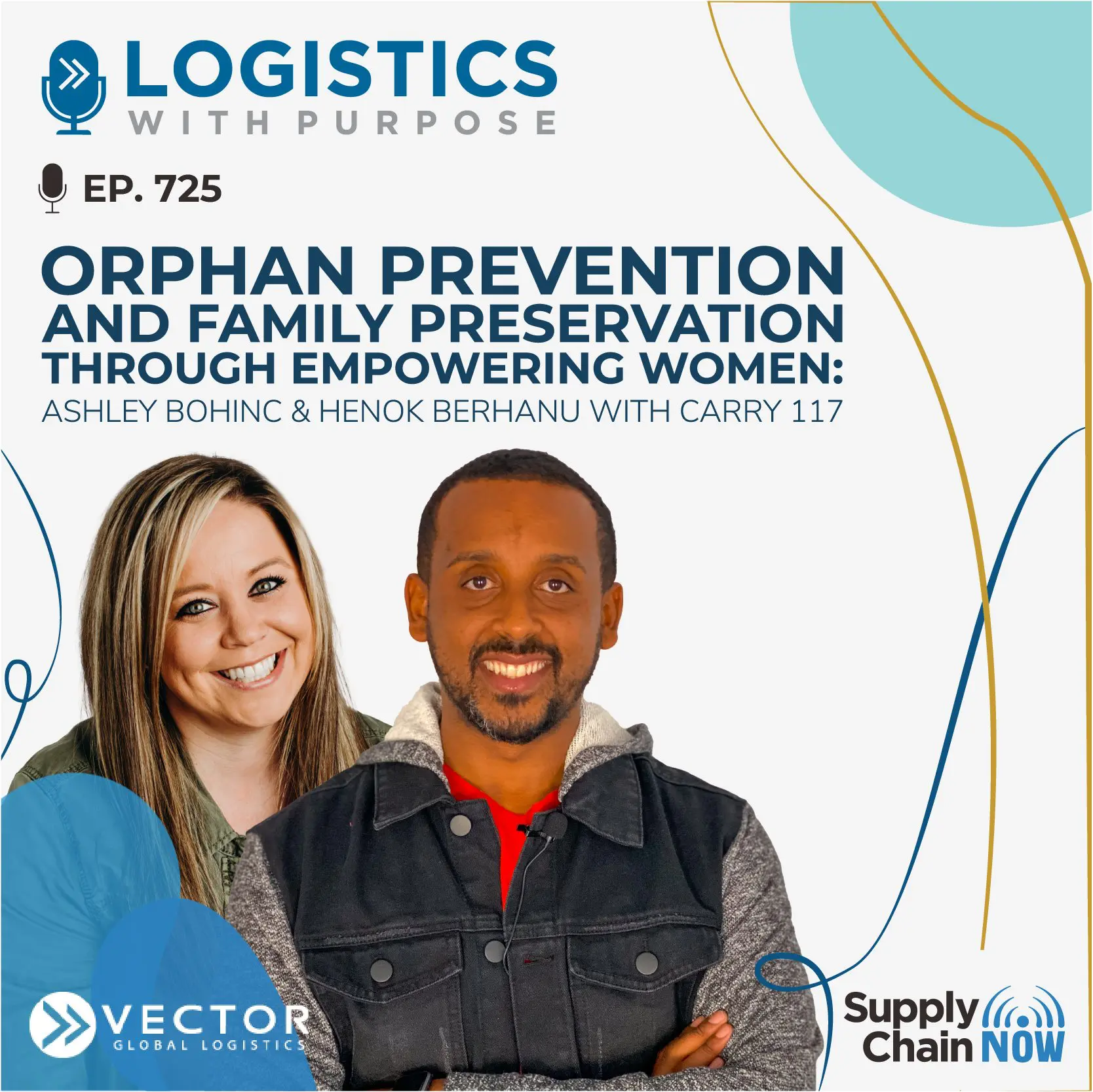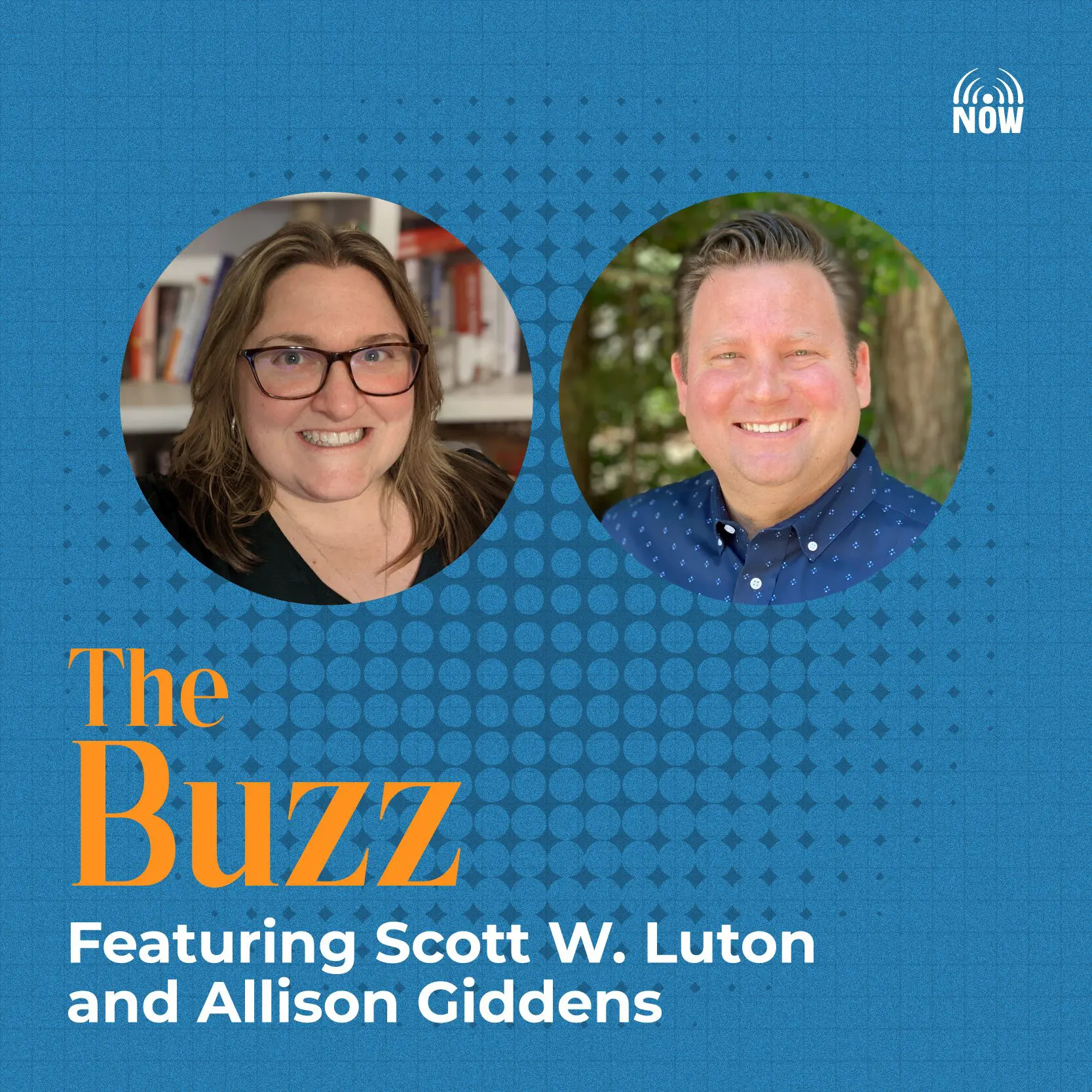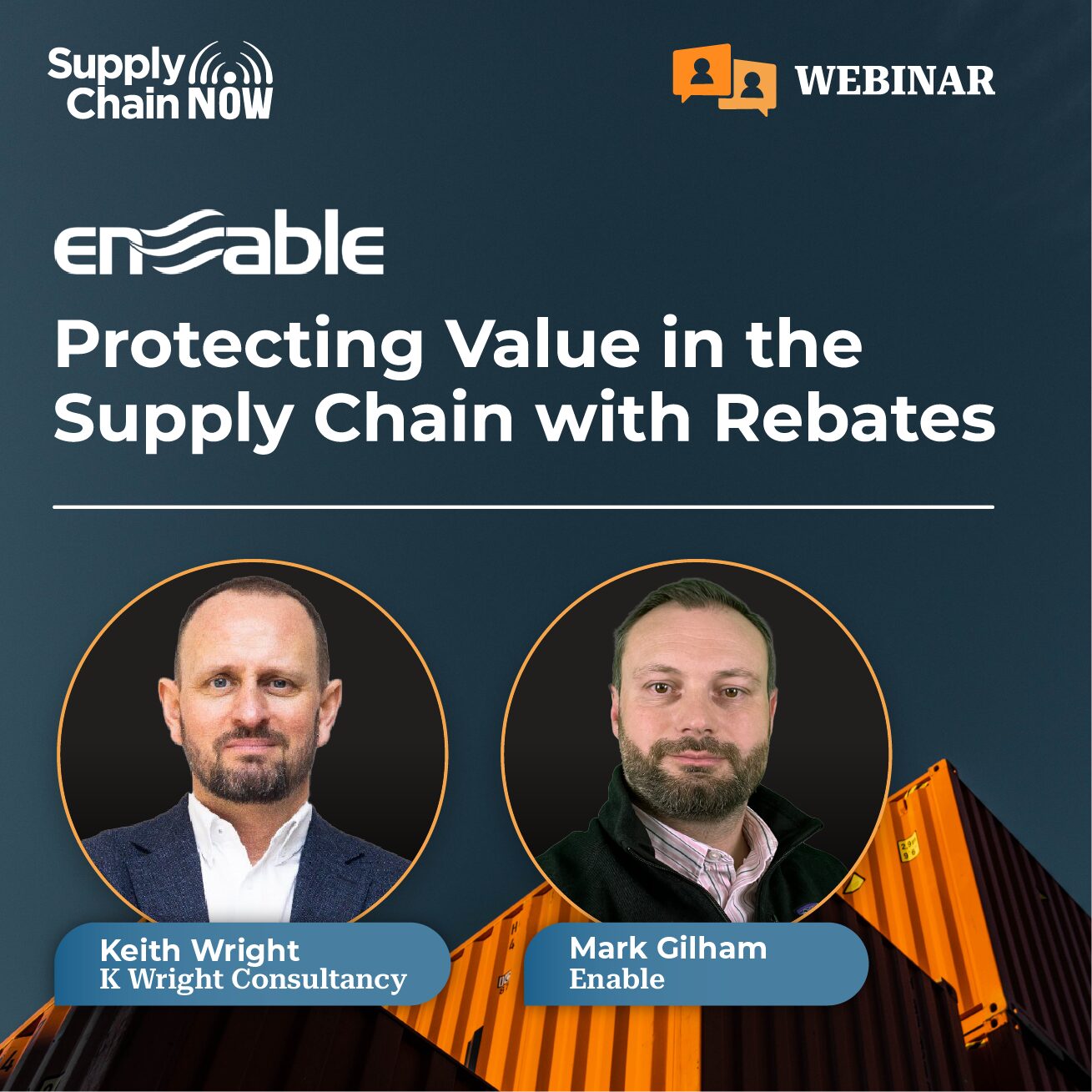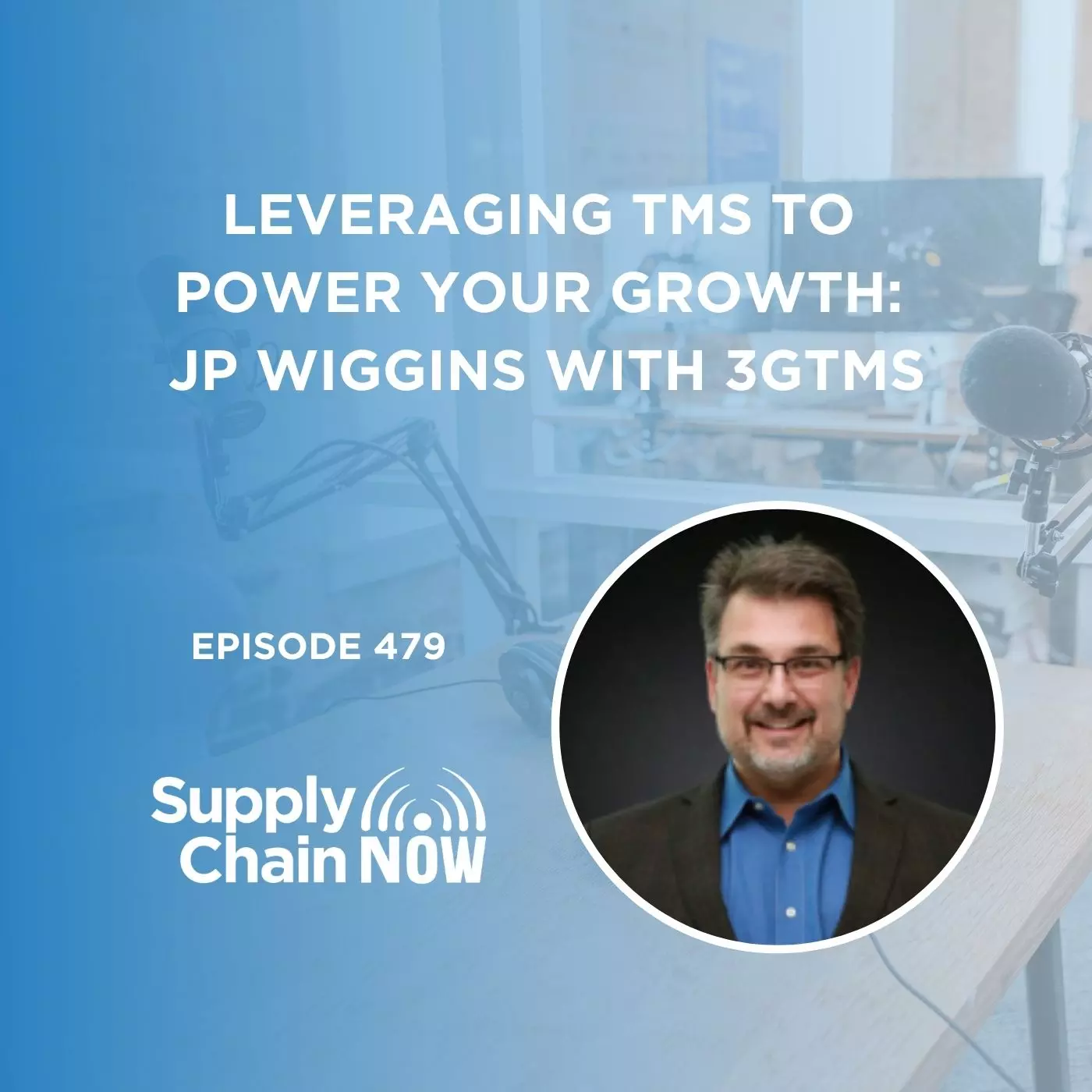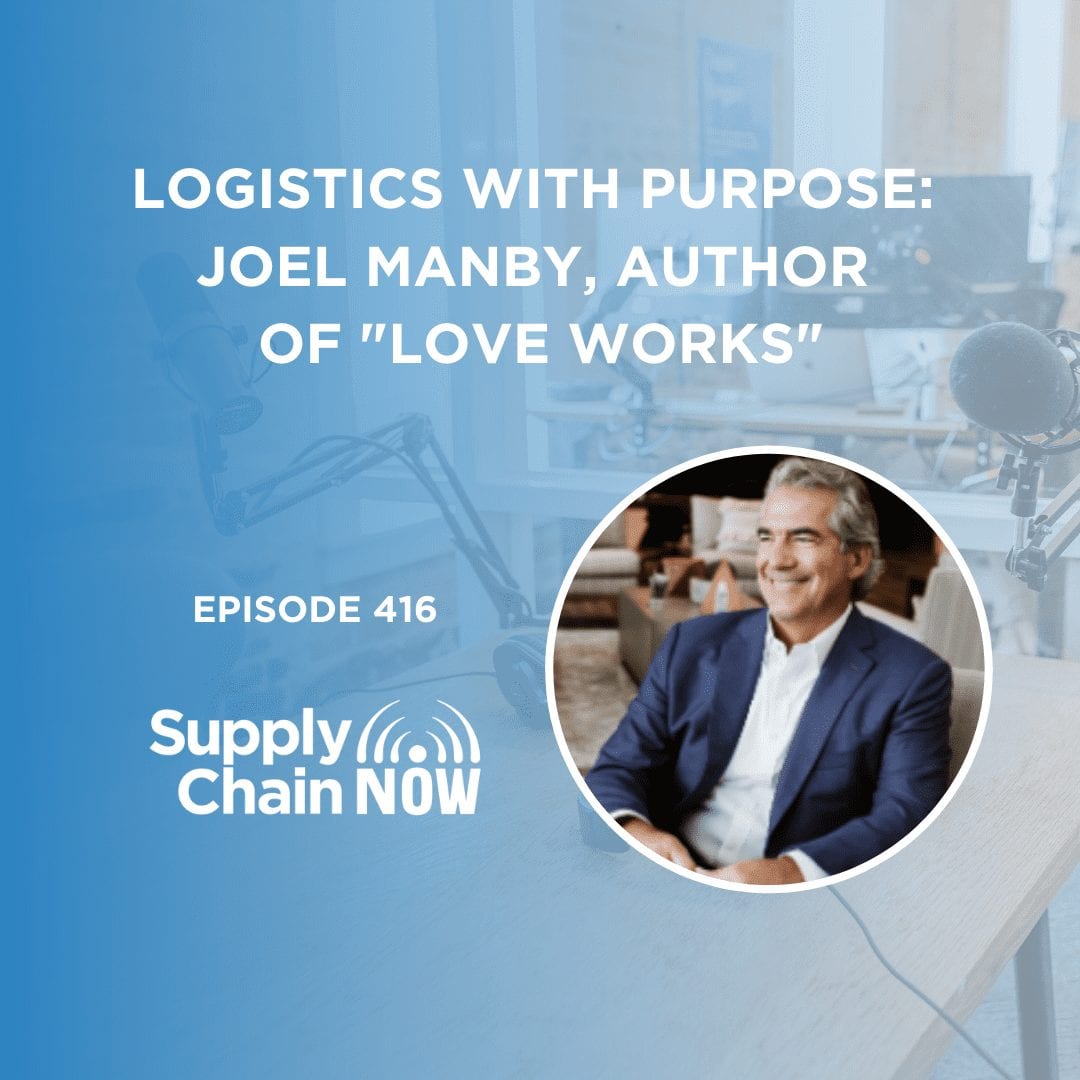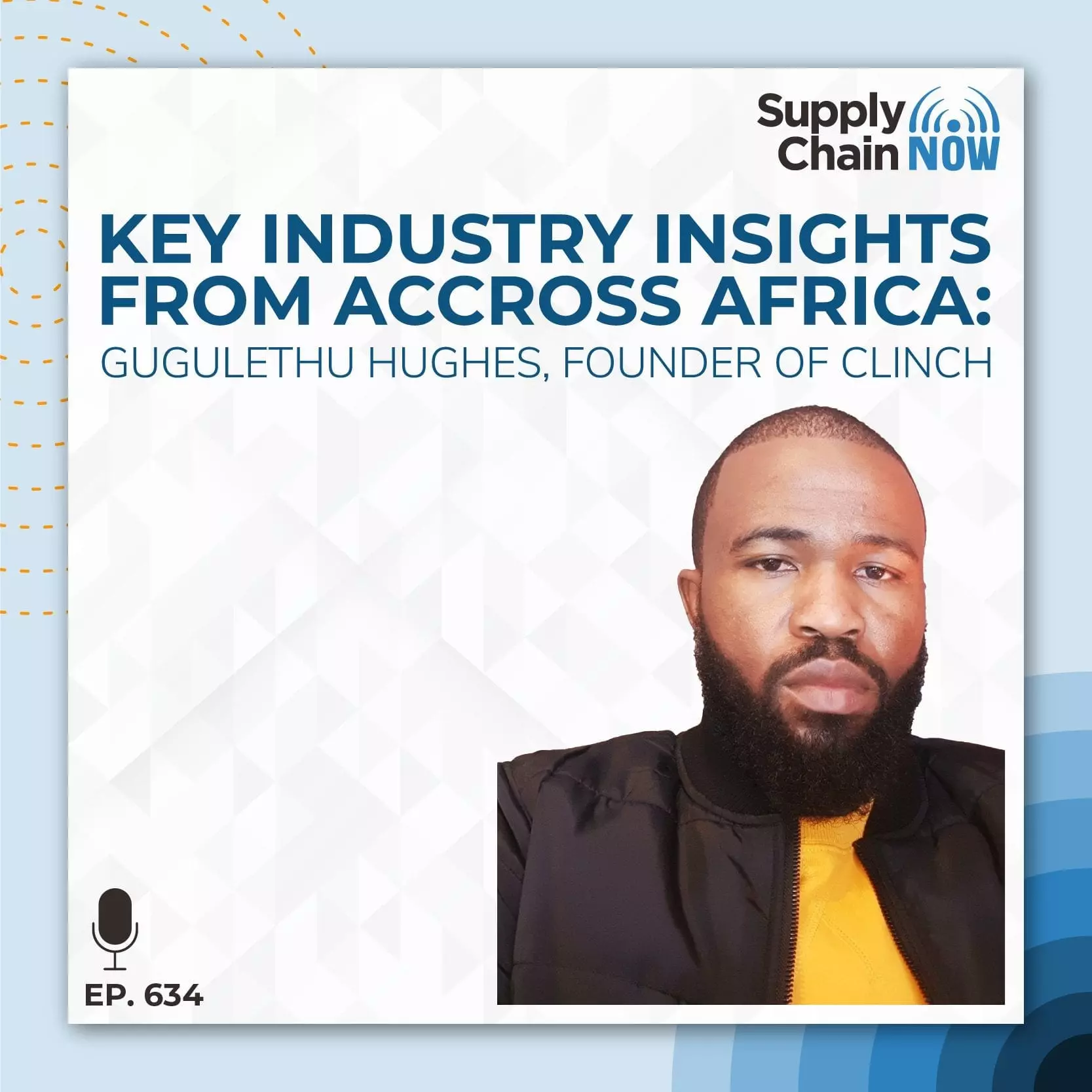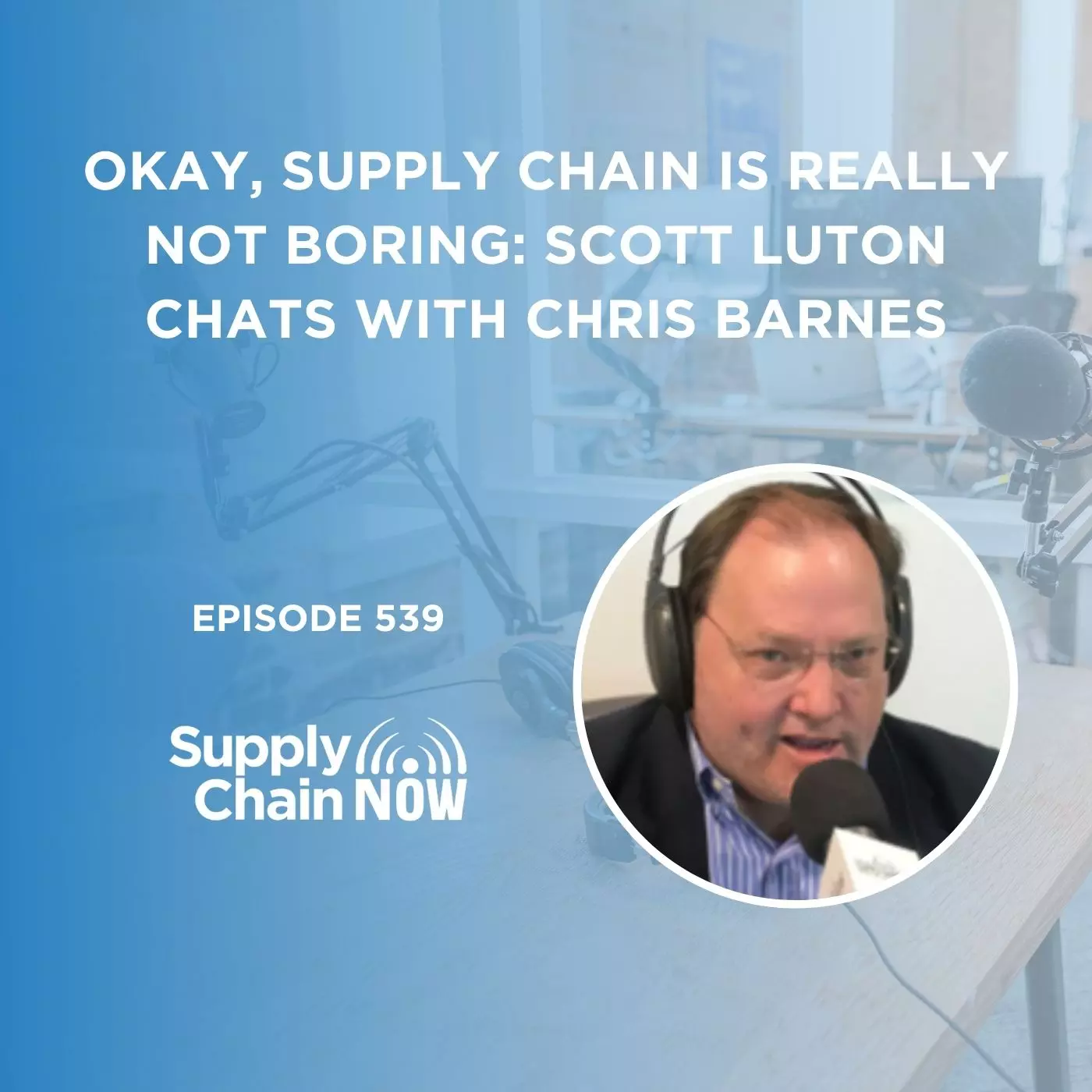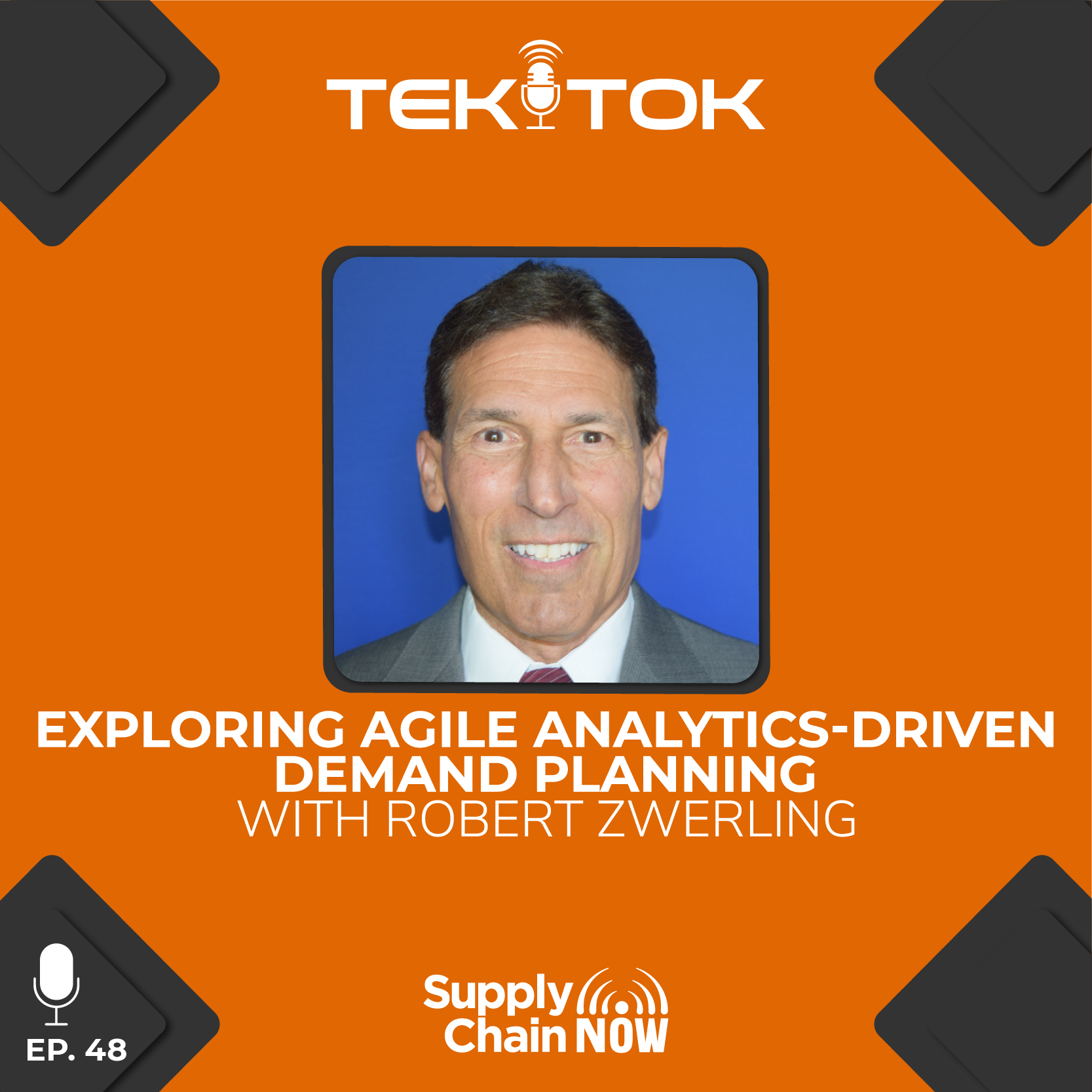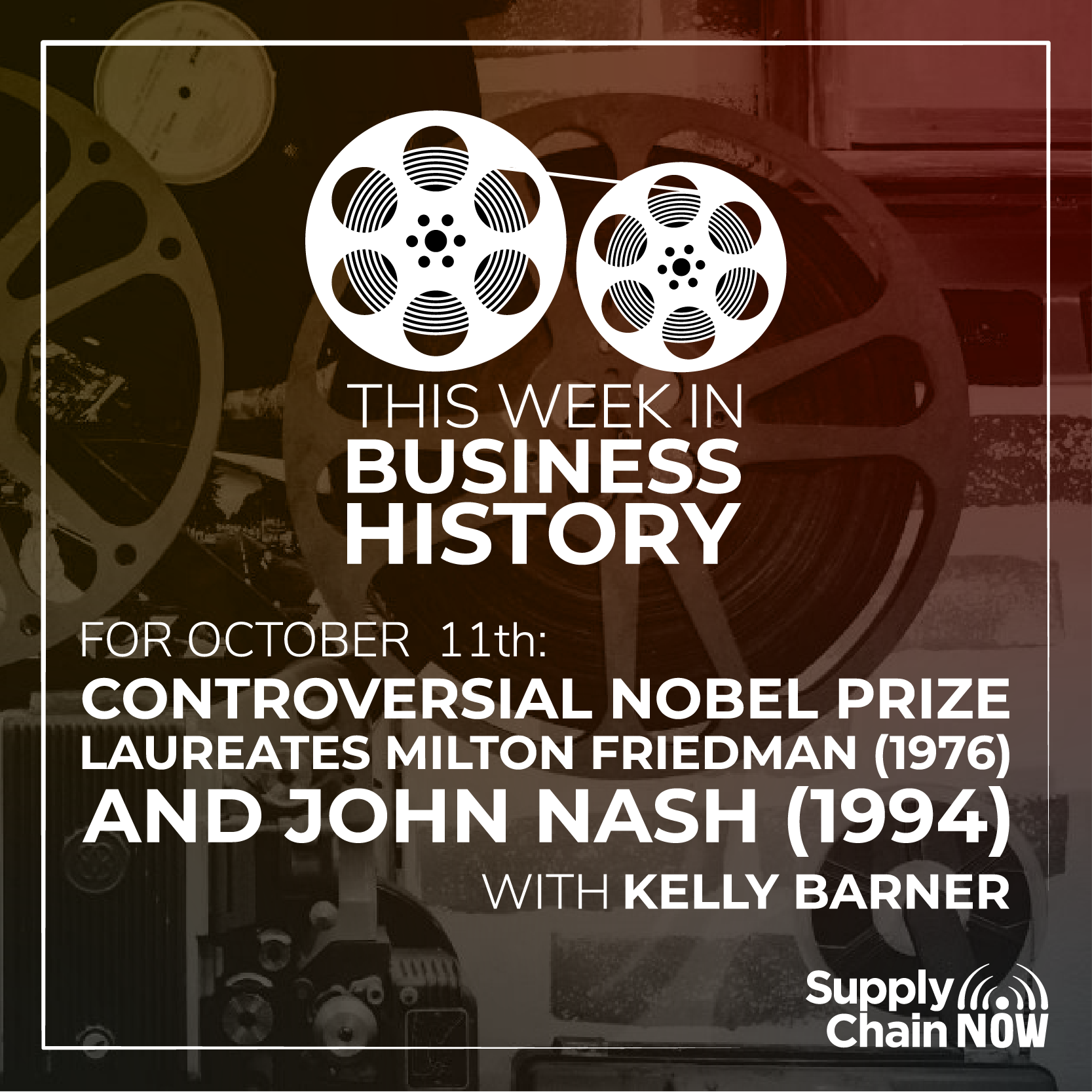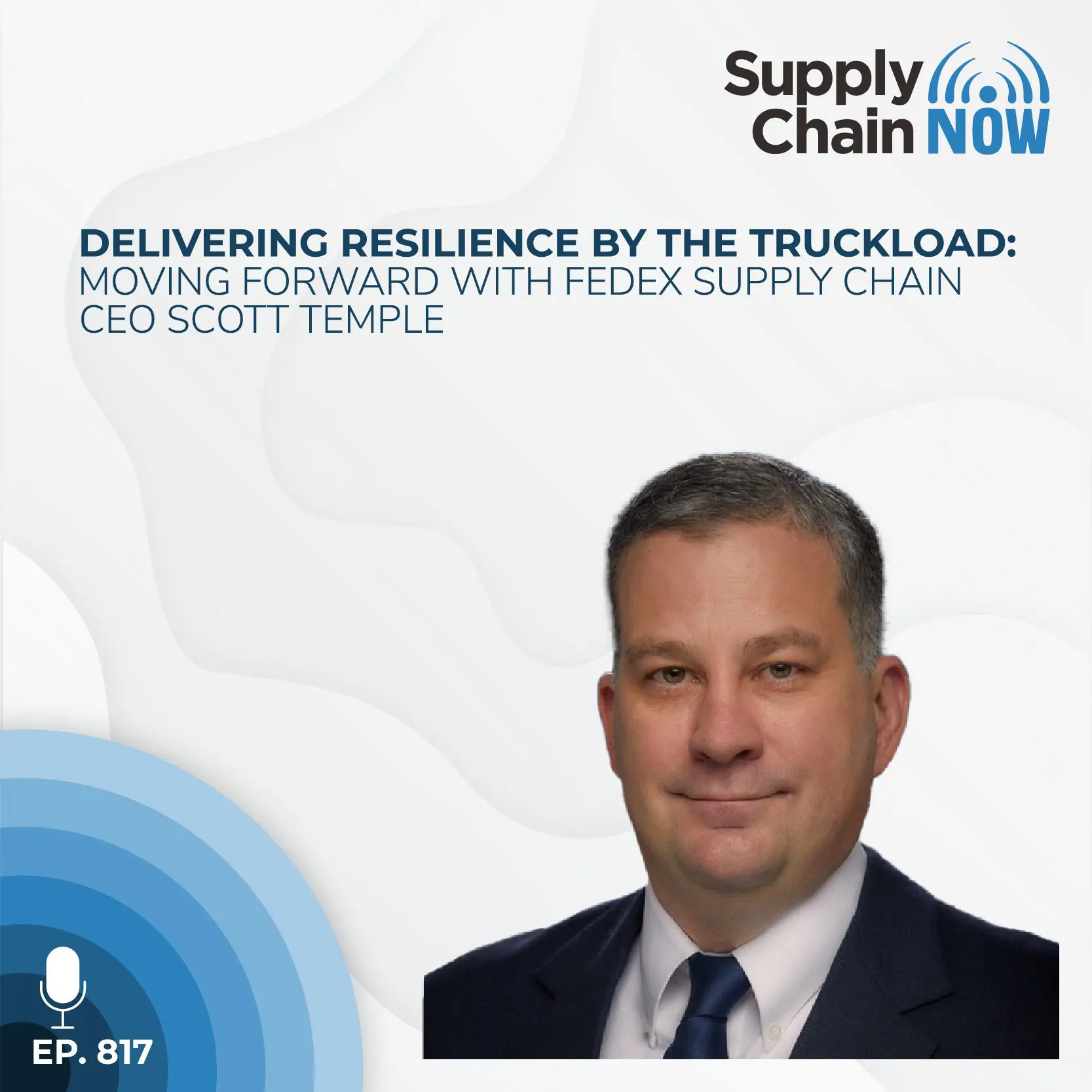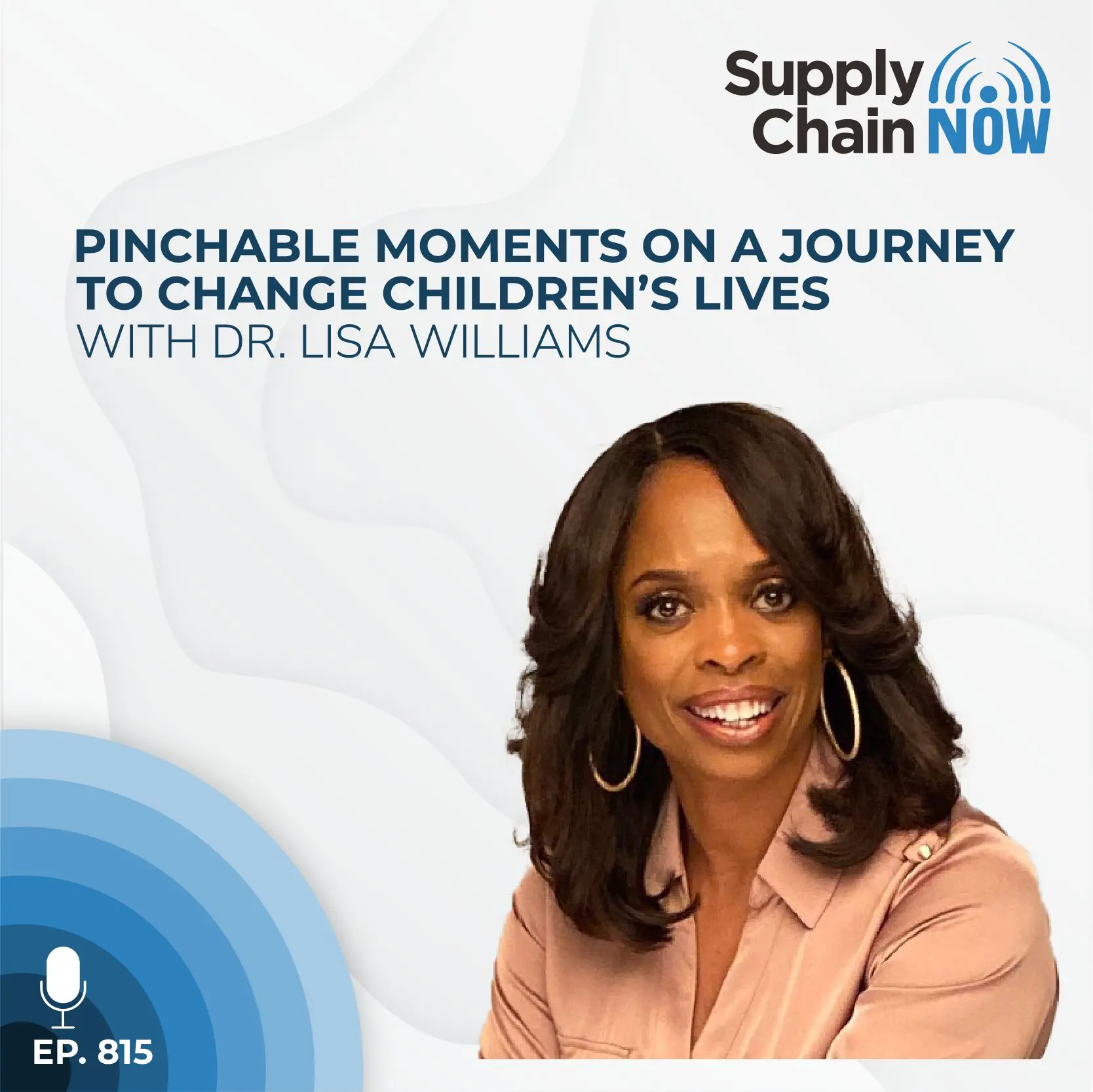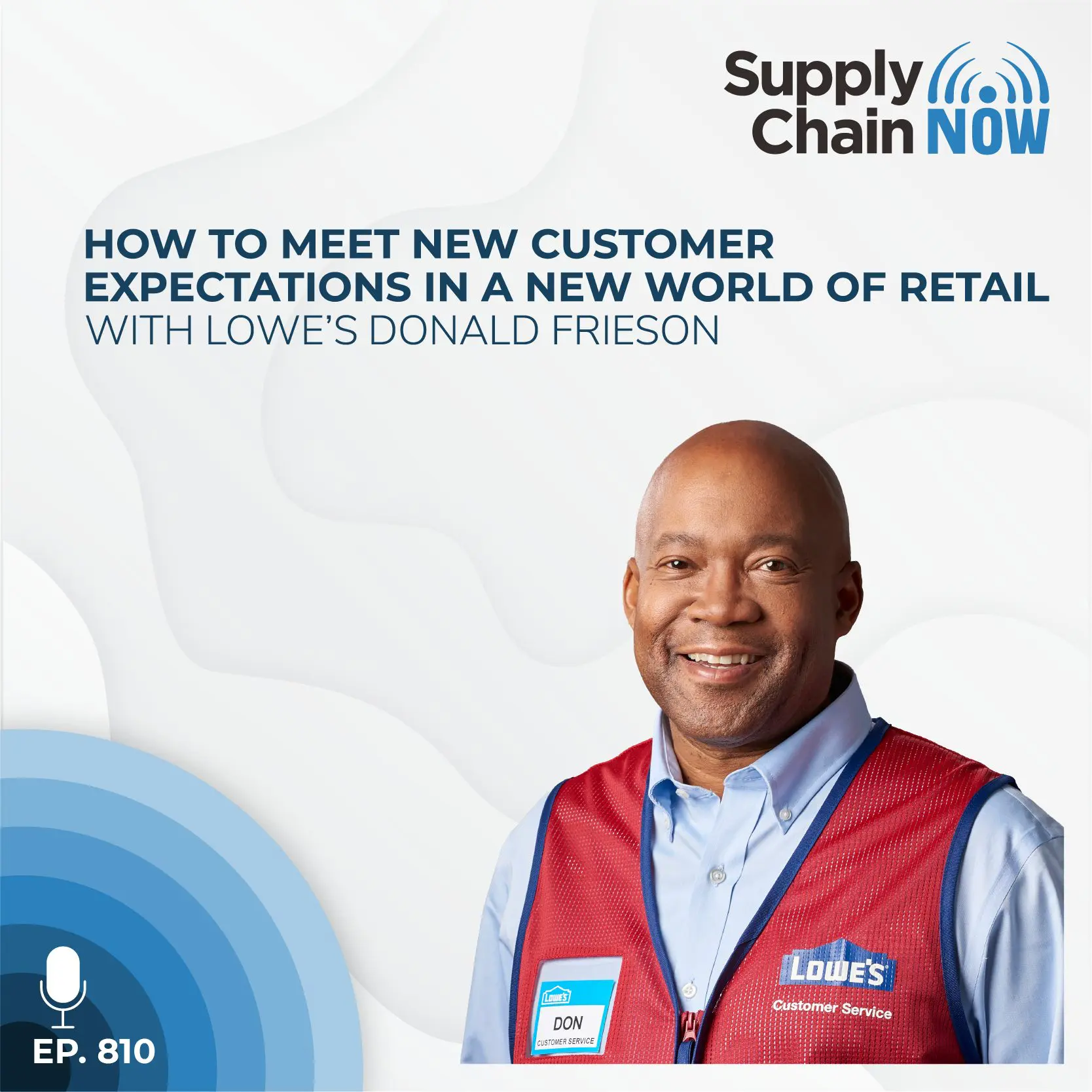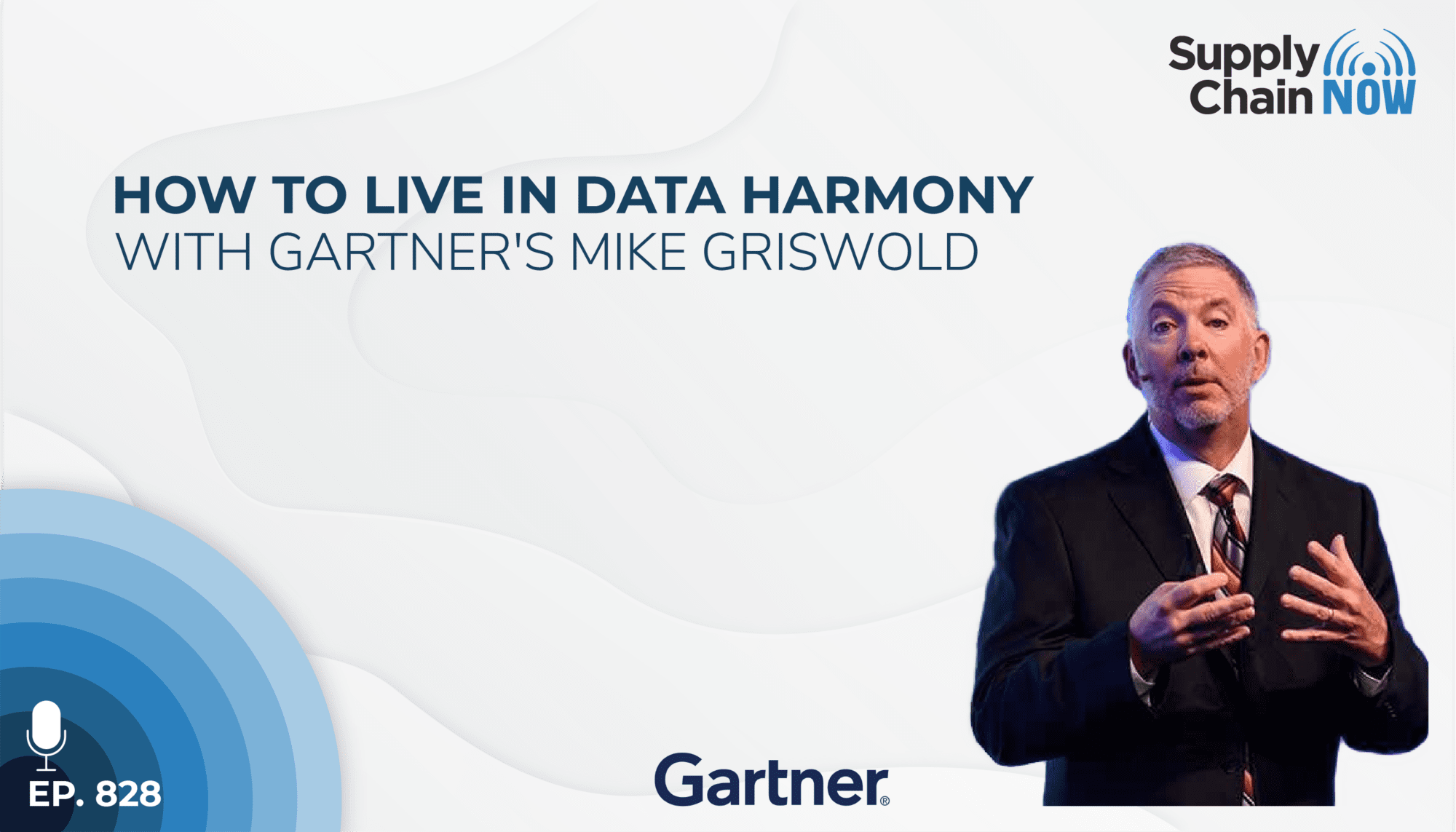
Companies that do circular economy well, or have that kind of principle baked into their DNA, it really starts with product design and designing the product at the beginning of its life with how you see it ending its life.
-Mike Griswold, Gartner
Episode Summary
“What’s the best approach to introducing new technology to the supply chain?” “Why are there 50 Valentine’s Day card options at the store but I still can’t get staple items like bread and juice?” Do you ever wish you could sit down with a research expert and get answers to your most pressing supply chain questions? Well, you’re in luck, because on this episode, Scott and Greg sit down with Gartner’s Mike Griswold to do just that. Tune in to talk tech, circular economy, changing demand signals and more.
Episode Transcript
Intro/Outro (00:00:03):
Welcome to supply chain. Now the voice of global supply chain supply chain now focuses on the best in the business for our worldwide audience, the people, the technologies, the best practices, and today’s critical issues. The challenges and entities stay tuned to hear from those making global business happen right here on supply chain now.
Scott Luton (00:00:33):
Hey, good morning, Scott Luton, Greg White with you here on supply chain. Now. Welcome to today’s live stream Gregory. You’re back are here. You’re present you, you signed up for duty today and it’s so good to have you back from your road travels and the beach, the Midwest, uh, solving the world’s challenges. How you doing
Greg White (00:00:53):
Today? Well, can’t lie is painful as Sunday was it was also a bit of a relief because going back and forth from Kansas city <affirmative> over and over again with <laugh>. It was, I mean, that’s a lot of travel. I literally got back to Atlanta on Monday and left again on Thursday, so, but it’s great to be planted and it’s also of course, great to be back on the buzz and, or, and back for the buzz, but also for, uh, supply chain in today and tomorrow with Mike Griswold. So I’m looking forward to working with Kelly on Monday. Yep. But I’m also looking forward to the amazing format you have in store for Mr. Griswold today. <laugh> and not
Scott Luton (00:01:36):
Wait. I can’t wait either. Uh, one of our favorite longtime, uh, collaborators and guests here. In fact, one of the first recurring guests, monthly guests here on supply chain now, way back when I bet I bet we’ve been at it now. I don’t know a couple years. It seems like Greg and
Greg White (00:01:54):
Well, it feels like it. And, and I’m trying to think of this. This is a gr I have a great question for Mike Griswold when he gets gets here. So <laugh>
Scott Luton (00:02:03):
Okay. So supply chain today, tomorrow with Mike Griswold, the one only, uh, with Gartner and today, as Greg mentioned, is alluding to it is ask Mike anything day. Yes. You heard it straight. Ask Mike anything here today. This is your chance to pose your question. You’re got to know with one of the brightest minds in industry. And, and we can say that because we know Mike, uh, that well, uh, we get a lot of feedback from the market each time he joins us. So Greg, you’ve got your question. We’ve already got, we’ve already been assembling some questions. We’re gonna be monitoring all the folks in the sky boxes, right? In the cheap seats, seeing what questions they come up with already seek. And James are there. We’re gonna say hello to the folks, uh, in just a second, but before we all do that, let’s we gotta share a couple of programming notes. Is that okay, Greg?
Greg White (00:02:54):
Well, I mean, we gotta do, we gotta pay the bills, so let’s do it. <laugh> right.
Scott Luton (00:02:57):
Let’s do that. So folks, if you tuned in LA, uh, a couple days ago for the buzz, which is every Monday, 12 and Eastern time where we cover some of the biggest stories around global business, well, you would’ve seen Mark Holmes with InterSystems. Now, Greg, I know you were still in the road in KC, but man, mark brought that we were talking supply chain, spider web. We were talking about harmonizing and normali normalizing data. So then you can get it into the hands. The folks need to make good decisions today. And, and that was just tip at iceberg. So back by popular demand, Mark’s joining us, uh, Greg and I, February 11th, 12 and Eastern time talking about data at the heart of supply chain, resiliency and agility, Greg looking forward to that session, right?
Greg White (00:03:45):
Yeah, of course. I actually caught Mark’s segment while, uh, well I caught the replay of it. So I wasn’t, I was not, I was in the air when it was live, but, but I caught the replay of it. I’m really looking forward to it cuz you know, harmonization, I think it’s right. It’s something we’ve been talking about for quite some time. We know it’s important, right? Keeping your data aligned both internally and between enterprises is so critical. Especially since, as if we didn’t know the supply chain was global right. Last couple years and I have F have really shown us that it is
Scott Luton (00:04:23):
You’re true. It’s it’s right. It’s it’s meme status these days, right? Yeah. All non supply chain professionals are talking about supply chain. That’s a good thing and a challenging thing, but nevertheless, y’all join us 12 noon Eastern time, February 11th, free webinar. This, the link to join is in the comments. And then let’s see here. If I can use the right mouse, always don’t have more than like seven mice around your computers. Uh, I’ve worked myself down to four and it’s still, <laugh> still challenging. There’s too many devices, too many devices. He looks
Greg White (00:04:54):
Two right here.
Scott Luton (00:04:55):
<laugh> so we’re gonna be at the reverse logistics association conference next, but next week, uh, Greg will this time, this go around, but we’ll be there interview. I’ve been
Greg White (00:05:04):
For Vegas. Scott. That’s the
Scott Luton (00:05:06):
<laugh> that’s the problem, right? I’m like
Greg White (00:05:08):
George Carlin <laugh>
Scott Luton (00:05:11):
With better jokes. Uh, but we’ll, we’ll be there interviewing some of the movers and shakers across that, uh, important aspect of global business, right? The returns management in reverse logistic, you can learn more@ra.org. I wanna touch on that here in a second. Nominations are open 20, 22 supply chain and procurement awards, right? The, one of the few awards programs with tons truckloads of purpose shiploads of purpose, right? We have built these awards all around our mission, joining forces with hope for justice in the mission to eradicate modern slavery and human trafficking. There’s a small fee to nominate your company or your individuals in your organization. Those fees get donated all of them to hope for justice, right? So, uh, we’ve got nine different categories. Nominate, nominate, nominate until March 1st. That’s the deadline, Greg looking forward to this big event, right?
Greg White (00:06:05):
Yeah. I love the fact that the nomination fees are going to a good cause. And this is a great opportunity. The inaugural supply chain and procurement awards. That is right. Right. So it’s uh, the it’s it’s a good cause for recognizing supply chain and procurement globally. Right? Any country, any person that’s right. Any business eligible and all yeah. Proceeds go to a good cause.
Scott Luton (00:06:30):
So no boundaries folks, no boundaries learn more at supply chain, procurement awards.com, just the E you URL, supply chain, procurement awards.com and tip of the hat. Of course, to the nonprofit hope for justice buyer’s meeting point, which is our partner there for the, you know, helping to facilitate the awards and art procurement. Okay. So Greg let’s say hello to a few folks before we bring in Mr. Mike Griswold kaon is tuned in Kan was dropping. He, he had a new article published, uh, the other day. I oh, really? Title sure did
Greg White (00:07:03):
On dropped link in here.
Scott Luton (00:07:04):
Yeah. That’s a great call out Greg Keon. Uh, I saw it on LinkedIn yesterday. I can’t remember the title, but drop that link in the comments. We’ll share it with folks. Uh, James Malley from Brooklyn. Uh, he is, I didn’t say that right. Did I? Uh, I think of good pizza and bad
Greg White (00:07:22):
Baseball. I think of Kirkland the movie Kirkland
Scott Luton (00:07:25):
Movie. Uh, just kidding. James James is a Mets fan. Uh, you know, they got new ownership up there. They, uh, as I, uh, was sharing with, uh, James the other day, they, they were, you know, signed, oh, there’s a picture they signed right before the lockout. And I cannot remember his name formerly with the nationals max Scher. They signed max Scher. Oh, wow. Yeah. Right before the lockout. So James, we’ll see if that, if that carries over, if we get to see baseball this year, uh don’t hold your breath. Perhaps Donna is tuned in Donna, uh, Greg, the former execut producer at CNN. She is PR marketing extraordinaire and a hall of fame, Braze fan,
Greg White (00:08:06):
And a hall of fame parent. Right. That’s true. Yes. As, as folks will know, Allison Cree’s mom. So, uh, Allison Creche Gibbons. Yes. <laugh>. We’ll go with all the names, names, her husband. Well, really appreciate
Scott Luton (00:08:20):
That. No kidding. A kg. Uh, the one only Allison crate Giden. So great to see you here, Donna. Appreciate all that you do. She’s she’s standing there with the brave trophy too. Jason T. Hopkins Alabama fan in DC. Uh, big time supply chain. Uh, practitioner is tuned in here today. David is back with us. Hey, how about that, Greg?
Greg White (00:08:41):
That’s good to see. It
Scott Luton (00:08:43):
Is good to see. Welcome back. Good to see. Welcome back. Great to have you here, Dave and hope you’re staying warm up. Feels
Greg White (00:08:49):
Like ground hall day
Scott Luton (00:08:51):
<laugh> and more on that in just a moment. Emma tuned in from Chicago via LinkedIn. Great to see you there, Emma, uh, kaon dropped that link. Yeah, but oh yeah. Kaon dropped the link into the comments. Thank you for sharing that. Y’all checked that out. Jean pleasure is back with us and uh, hello. Welcome everybody. Uh, even the folks we couldn’t mention. Oh,
Greg White (00:09:13):
NA Northern Alabama. So yeah. Right.
Scott Luton (00:09:16):
<laugh> we’ve had a lot of fun with that. Not LA tell
Greg White (00:09:19):
Me off guard with that one that time. Yeah. <laugh>
Scott Luton (00:09:22):
Jean welcome. Kaon everybody. So Greg, with no further ado, you mentioned Groundhog day. That might be a little bit of a clue where we’re gonna start here with our featured guests, but let’s welcome in Mr. Mike vice president analyst with Gartner. Hey, Hey Mike, how you doing?
Mike Griswold (00:09:41):
Hey, I’m doing great. Great to see
Scott Luton (00:09:42):
Everyone. Great to see you. How does it feel Mike, to be in demand?
Mike Griswold (00:09:47):
Uh, it feels good. Yeah. And I’m, I have a couple of thoughts as we get into how we’re gonna open the, the segment a around whether or not they’re was a good idea of mine, but I’ll, I’ll expand on that in a little bit, but yeah.
Greg White (00:09:59):
It’s, it’s great. No, no. When you get my questions and
Mike Griswold (00:10:02):
I, and I appreciate people carving out time in their busy days to spend an hour with us. Yeah. Awesome.
Scott Luton (00:10:07):
No doubt. Awesome. That’s always great.
Greg White (00:10:10):
We get to learn a lot from you, Mike, so agreed.
Scott Luton (00:10:14):
All right. Really quick, David congrats. The new job. Uh, I’m sure you’ve been busy, several full plates. So great to have you here, Michael Key from Texas via LinkedIn. Great to have you here, Michael and Colleen. Thanks for being back from probably chill Minneapolis. We’ve enjoyed your contributions, uh, earlier. Okay. So Mike, we’re gonna, uh, the, the starting off point, Mike and Greg is gonna be probably a familiar reframe cause today folks today is Groundhog day. Now, rather than talking about the, you know, is winter gonna be long and, and shadows and stuff. For me, that brings Groundhog day. The movie, one of the classics that was released in 93, of course, with bill Murray, where he’s driving here with pox, Tani feel, I think I did I say that right? Greg Ponic. That’s right. I think so. Pox Phil, uh, and Andy McDowell, who happens to be from my home state of South Carolina, one of my favorite, uh, actresses instant classic. This is the scene where, you know, if y’all seen the movie, bill cannot get, I can’t remember his character, Phil. I think whatever he can’t get out of Groundhog day keeps repeating time. I, and time again, he gets bored and he, he does some crazy things. Y’all check it out if you hadn’t seen it. But what I wanna ask with it being Groundhog day, Mike, and then you, Greg is what is your, if it’s not in Groundhog day, what is your go-to classic movie from the eighties or nineties? So
Mike Griswold (00:11:33):
I, I, I, 2, 1, 1 to kind react to kinda what we’re gonna do today, right? When you tee it up is there’s a, there’s one of my favorite all time lines in the second jurasic park movie is, you know, taking dinosaurs off the island is the worst idea and the long history of bad ideas. <laugh> opening this up to, to kind of the, the participants’ questions. I may look back and say, this was like one of the worst ideas I ever had. But to your question, Scott and I, and I, before we, we came online, I talked about, we have this huge debate in the Griswold household and it comes up at least once a month, 1998, I believe was the year saving private Ryan, which is my all time favorite go to nineties movie. It came out, I think it was 98, maybe 99. There was also a movie that came out called Shakespeare and love and much to my chagrin, Shakespeare and love, beat saving private Ryan for best picture. And my wife rubs that in my nose. Every time Shakespeare love comes on <laugh> and every time saving private Ryan comes on, I tell her how much we were robbed from the best, uh, Oscar award that year. So SA uh, saving private Ryan easily. My, my nineties go to movie.
Scott Luton (00:12:52):
Awesome. I love that. And I love that little rivalry. You and your wife have Greg I’m coming to you next, but really quick. I gotta share a couple quick comments. Cause going back to Groundhog day, James mals, Jo on the spot don’t drive Adrian. That’s such a great, great line. And then Phil, Phil Connors, uh, you know, oh yeah. Such a, the insurance guy. Is that you? Uh, am I right? Or am I right? We’re right. We’re right. You know, it’s such a great all the characters and the character actors in that movie just makes it so, all right. So Greg, uh, Mike has shared his clearly. One of my favorites is Groundhog day. What’s yours, Greg.
Greg White (00:13:30):
Uh, it has to be tombstone the greatest buddy movie, uh, of all time, just my opinion, you know? Um, but I mean, there are so many, you know, if you get, if you include the eighties, there are a lot of great movies, bull Durham, the greatest love story of all time, a man who loved baseball and the woman who loved him,
Scott Luton (00:13:50):
You can quote every line from that movie. Greg,
Greg White (00:13:53):
I used to be able to, I, I can tell you that I completely agree with the notion that there ought to be a constitutional amendment outlawing the designated hitter.
Scott Luton (00:14:02):
<laugh> <laugh> for both leagues. I’m with you for as long as it’s for both leagues. It’s gotta be the same, but little known fact. Mike, I don’t know if you knew this and I don’t know if folks out there listening to us know this, Greg white played baseball in college and pitched right? Greg? No, not pitched. No, no, no. I thought you were a pitcher. No, I’m getting my facts wrong. We
Greg White (00:14:23):
Had some awesome pitchers,
Scott Luton (00:14:25):
But outfield. Yes. Okay. Right. <laugh>
Greg White (00:14:29):
I was left bench
Scott Luton (00:14:32):
<laugh> so, so
Mike Griswold (00:14:33):
We, so when we make the comment, Greg, you’re coming from left field, then that is partly true.
Greg White (00:14:38):
It’s literally true. Yes.
Scott Luton (00:14:40):
Okay. Good to know. Good to know. Well, you you’re, you’re stoking some fires, uh, some embers in the comments. John is like, you hear them anyway? No, <laugh> no DH, no DH. That’s right, John, uh, John. Good. Good. See John strikeouts, our face fascist love that James James is, is keeping it coming. Ned, Ned, Ned re uh, love that. Okay. So as much fun as we could have with movies and whatnot, um, I wanna get started with some of our, some of the ask Mike anything. So again, folks, get your questions in whatever you want to ask Mike here today with additional commentary from the one only Greg white, bring in your questions. Um, we’ve already pulsed, uh, some of our ecosystems, some of our community members and some of our team members. So I’ve got a little list I’m gonna start with, but if y’all are ready, bring your questions. So Mike,
Mike Griswold (00:15:34):
Well, real quick, if this is my last episode, it’s been great. <laugh>
Scott Luton (00:15:39):
<laugh> I know that your answers will be good. Yes. So they always are. We always away <laugh> we always get so many t-shirt isms when, uh, Mike Griswold joins us. So I’m gonna start with the first one. So this comes from Amanda. So Amanda asks, Hey, prior to Gartner, what was one of your favorite positions that you had in your career?
Mike Griswold (00:16:01):
So, before I was at Gartner, I worked for a supermarket company called Shaw supermarkets, uh, located in, uh, Massachusetts primarily, but the new England area. And, and it was through working for them in the Albertson’s acquisition that I ended up out here in Idaho. But the job that I had at Shaws that I love the best was, uh, we call them strategic process leaders, basically what, what our role was. And it really is how I got introduced to the supply chain is we acted as the liaison between a business unit. For me, it was the supply chain and the it department. So it was my opportunity to, to listen and be involved with the supply chain and understand kind of how it worked back then and what their needs were primarily from a systems perspective. So, you know, we, we upgraded our computer generated ordering system and being involved with kind of understanding the requirements and, and being able to, to work with it around, you know, kind of the, what, what functionality did we need.
Mike Griswold (00:17:10):
It really gave, um, me an opportunity to it, to see the supply chain. I ended up doing that, um, in the finance group as well, which was not nearly as fun, um, as the supply chain, but being able to, and I think in some ways, clearly not knowing anything about how life would transpire down the road, but being able to, to have that role, I think set, set me up to be an analyst, you know, being able to, to listen to challenges, help craft solutions, and then translate that into kind of a technology solution were appropriate. That was probably the, the best experience I had when I was at Chaz.
Scott Luton (00:17:55):
Love that. Uh, Mike, you never know the role you had, which teased you up for the rest of your, uh, hall of fame career. Um, I’ve got a question from Emma and we’re gonna, we’re gonna try to get as many questions then, so we’re gonna move pretty fast, but grew before I get Emma’s question. I know you’ve got a question for Mike and I am just inquiring minds. Want to know, I wanna know what you wanna pose to Mike.
Mike Griswold (00:18:18):
Somebody should have their finger on the, the beeping button just in case I have,
Greg White (00:18:21):
I have a lot of questions for Mike, but, uh, I’m gonna start with a simple one first. Okay. How long have you known one another Mike? Oh,
Mike Griswold (00:18:28):
Uh, that’s really good question, Greg. It was, it’s been a while. I mean, I’ve been at Gartner 15 years. It’ll be 16 in September. And I’m guessing. And you were at AMR before, before that probably. Yeah. That’s including the AMR time. Oh, it is. Okay. I I’m gonna say 10. I’m gonna guess 10 Greg, because when you and I first, I think it was at one of an AMR conference in Arizona when we, when we were talking about, you know, who blue Ridge was and all that kind of stuff. So I’m thinking 10. Oh, that’s right. I’m thinking 10. Yeah,
Greg White (00:19:02):
That sounds about right. I, I, I honestly would have to think back to when that was. I know. Um, I met you and Kevin whose last name escapes me about the same Tournier that’s right. Stricht yes. Yeah, yeah. That’s right up in. Okay. So that was an easy one. So see, I hear you saw Paul. Thank
Mike Griswold (00:19:21):
You. <laugh>
Scott Luton (00:19:23):
So, so that’s why you didn’t play pitcher Greg <laugh> all right. So all out,
Greg White (00:19:29):
Those would’ve been all out,
Scott Luton (00:19:31):
But, uh, but, but man, when that team needed a call to be overturned, I bet you were the secret weapon off the bench. All right. So we’ve gotta pose this question from Emma and by the way, nor great to have you here today. We’re doing well. Uh, we welcome your contributions and comments and your questions, uh, to the one only Mike Griswold. So this comes from Emma. Emma says, Hey Mike, I’m a good friend of Alec dabs currently preparing myself for an Amazon internship as area manager. Any advice?
Mike Griswold (00:20:02):
Yeah, I mean, I, I think when, and when I think about kind of how we interview right people and, and what we are looking for, I think the advice I would give you Emma, is, is understand to the best of your ability within that role. What does success look like? Not only from the perspective of Amazon, right? What does Amazon, how would Amazon define success for that particular role, but how do you, how you define success for yourself within that role? Because it really, you know what we’re finding today, as we talk to people, uh, coming into Gartner, is there, there are definitely now two sides of that employer and associate contract. Yeah. What’s what does the associate, what does the company, how do they, um, describe success, right, for a particular role, but it’s as important for the associate to define what does success look, look like for them and be able to understand kind of when that’s happening, how it’s happening and, and frankly, how long might it take to get to the things that you wanna get to? So I think understanding both sides of that transaction around what does success look like is really important.
Scott Luton (00:21:20):
Excellent answer. Emma, great question, Greg. I wanna get you to add to that. What, what, what else would you add?
Greg White (00:21:25):
Yeah, I would say as it sounds like you’re fairly new to management. I would tell you that I, the same thing I tell every new leader, you are not a leader because you have authority. You are a leader because people follow you and you need to endeavor to be the kind of leader that people would follow, inspire them, guide them, lead them, take the bullet for them is probably one of the most important things you can do. Mm,
Mike Griswold (00:21:51):
Excellent. Yeah, Greg. Yeah. Greg, that’s a great point. I mean, I think I was put into a team manager role. I’ve been a team manager now for just over a year. And one of the things that I have to work on, which aligns exactly what you said is I need to move from being a manager to being a leader. Right. We have, we have a new program at Gardner leaders as teachers, right? I think teaching, coaching, mentoring, those are all elements. I think that, that people are looking for out of their manager as they, as they are part of a team. You know, I think the managing to metrics I think is important, but I think if you were to fast forward Emma and ask and ask your team kind of, what do they think of you? What they’re, what they’re looking for is what Greg said is, is how are you gonna lead them and teach them and coach them? That’s really what they’re looking for outta managers. Hmm. I believe
Scott Luton (00:22:48):
Love that are right. So to follow up here, Emma says that she’s a junior at Northern Illinois university and she is pursuing salki. I was just
Mike Griswold (00:22:56):
Gonna say that Beki,
Scott Luton (00:22:57):
<laugh>, she’s pursuing a tech engineering, industrial supply chain management degree. Outstanding. Emma, it’s a great school for that. It is let us, so Emma, let’s close the loop, let us know, uh, how these next, this, this new endeavor plays out for sure. And, uh, love for you. Love that you’re here with us today. Uh, and good morning, Jose Montoya, who hosts coffee break logistics. They had a great show on business and life peels here recently. So good morning to you, Jose. Great to have you back. All right. Next question comes from Mr. James and Malley, uh, a founder of Kar, which is a really interesting, um, startup doing some big things. He says, Hey Mike, are you seeing more large companies willing to take a chance on our merging tech from startups? It seems to very wildly, depending on the organization, your thoughts.
Mike Griswold (00:23:47):
Yeah. I, I would suggest it it’s exactly the latter, right? That, that it does very widely. We’ve been doing some research. And, and one of the things that I’ve been talking about as part of the top 25 research is when I look at top 25 companies, they have a framework that they look at around technology, where they look at technology in three buckets, what do we wanna pilot? What do we wanna reexamine? And what do we wanna scale? If you look at some of our Gartner research, we have this framework, we call the hype cycle, right. Which actually does that. It plots technology across it’s it’s life cycle. And where is it from the standpoint of, of being scaled in, in kind of mainstream adoption? So I think it does very widely, I, I would suggest that companies that do it well, though, are willing in that piloting stage or in that piloting, you know, group of initiatives to take and look at some startup, some newer technology. And if you think about, if you were to look at the hype cycle, that initial, um, upward trend to the hype cycle, there is a lot of technology categories that are dominated by startups. Think of some of the stuff in machine learning and AI, some of the stuff around blockchain, some of the things around I O T so I wish I had a better answer around, you know, other than it depends, but it kind of does company by company
Scott Luton (00:25:12):
Outstanding, outstanding. And I like Jose’s point here. We cannot pretend that with a single leadership seminar, everyone becomes a leader. Excellent point kind of, uh, uh, compliments Greg’s point earlier. Okay. And by the way, you know, we were talking about Northern Illinois, great school earlier, Mike, I just connected with Brian. I think it’s Fugate is how he pronounces his last name. I could be wrong. The pride of Sycamore, Val, uh, Sycamore valley, Tennessee, but he’s currently leading the supply chain program at the number one ranked university of Arkansas and Greg. Um, we’re gonna be interview, uh, him and his students in the next few weeks at some point, but you spend 10 minutes with Brian. I mean, Ford thinker, engaging creative fi you know, really passionate about finding ways of engaging those students. No, I mean, no wonder they, uh, have grown, uh, in quality and quantity in terms of, uh, for a number of years now. So Greg looking forward to knocking that out with you.
Greg White (00:26:12):
Yeah. That’ll be fun. I, you know, I’ve talked to the deans of several over over the years. Some of them long since retired now, <laugh> um, at Michigan state and Penn state and Stanford, the, you know, the old state standards and, um, they are both challeng stand, uh, irritated by the fact that that Arkansas is, is number one. And I think that is actually a good thing because, you know, one of the, uh, statistics I learned is it’s really hard to break the top three or five, right. It’s always Harvard, Yale, Princeton. Um, and it’s really hard to break that because the, the tradition of being at the top is so ingrained and it takes so much to overcome that. So they’ve done something really special at Arkansas, and I think it’s a good challenge to the old, old guard.
Scott Luton (00:27:01):
Excellent.
Mike Griswold (00:27:02):
So if I could put in a shameless plug, we are, we are updating that that’s a, a body of research we do every other year. So in 2022, at our supply chain event in June in Orlando, we will be unveiling the 20, 22 collagen university study for the supply chain. So we will see where Arkansas land and, and the others that the perennials that you mentioned, Greg, it is interesting. I don’t know if I, if I talked about this at all in any of our previous episodes, but when that came out a couple of years ago at a, at a couple of Arkansas sporting events at a football game, and at another event, there were signs saying, number one, supply chain school. Yes. That’s kinda how we knew supply chain was now becoming cool. Right. <laugh> they were, they were advertising that they were the number one supply chain school. Yeah, it was pretty cool.
Scott Luton (00:27:52):
He broke the sign on our, on our little conversation yesterday. Cause we sign is traveling the world and, and it’s become quite a, a, a branding, uh, vehicle. Yes. But great work there and university Arkansas. And I love the research y’all put into that sounds like every other year, Mike. Okay. So moving right along, uh, Greg and Mike, this is gonna be kind of a, um, uh, not exactly a question with a fine point on it, but just for recently. Yeah. So return, we we’re talking earlier about returns management versus logistics. And of course we know the, the eCommerce, uh, behemoth there, you know, that’s gonna continue to grow wildly. We all love that. However, we also know that, uh, returns pose poses a big challenge when it comes to our sustainability and circular economy initiatives, which are so important to any, you know, any supply chain team here recently.
Scott Luton (00:28:43):
Uh, and I’m not gonna name the company, uh, a bought new laptop, loved it, loved it. I’ve used this company, you know, going back years, monitors, laptops. However I wanted a second, uh, plug, I have now ordered the wrong plug three times. And you know what, I’m not the sharpest tool in the shed, but I was put in my Google, I was, I was tracking down Reddit reviews. I went to the company, I put every part number I could find on the back of the adapter to see if I couldn’t match something up three times. And I’m returning the third one now. And it’s it just, it kind of re uh, illustrated the point that companies we can really limit, uh, downstream the challenges we have and, and, uh, getting returns and pro getting them back number one, and then processing, if we can make it easier for the consumers, even the ones that wanna do their homework and hate returning stuff. Like I do make it easy for them to get exactly what they need. I’d love to get your comment there, Mike, and then yours, Greg.
Mike Griswold (00:29:39):
Yeah. I think one of the areas that we’re doing, uh, uh, a lot of research on this year is the circular economy in general with a couple of analysts on my team. And I think one of the things that I’ve learned kind of through osmosis in, in talking to both of them is companies that, that do circular economy well, or, or have that kind of principle bay into their, their DNA. It really starts with product design mm-hmm <affirmative> and designing the product at the beginning of its life, with how you see it ending its life. Whether that’s, we’re going to, to try to find a way to scoop these back up from consumers, re reprocessed the plastic. Maybe let’s just use it maybe as a laptop example. Right. So when you think about kind of how the consumer’s gonna use it, how the consumer’s gonna dispose of it and how they may use it in their day to day life, it helps you simplify things like the power, the power supply, right? So you don’t have to transact three times to get an additional power source. I think, oh, there’s gonna be a fourth one. I still haven’t solved it.
Greg White (00:30:47):
It’s hitting me. No. Oh,
Mike Griswold (00:30:49):
<laugh> so, you know, I, and that to me is that design element, I think, is what separates kind of more mature companies when they’re thinking about the circular economy that maybe companies earlier in their journey companies early in their journey are thinking about what do I do with the, with the dead product, right. They’re and they haven’t really thought about what could I have designed differently so that it’s easier dispose of, and even now the question that we’re hearing from more companies is I need to figure out how do, how do I design for reuse at end of life, right. Not disposal because disposal is now kind of a four letter word, even though I know it has more than, than four letters because of all the landfill implications and all the other hazardous, you know, potentially hazardous material ramifications of just, you know, pitching these old laptops, just as an example. So it’s definitely, um, at least from our perspective, a really high topic agreed, all
Greg White (00:31:50):
Right, Greg weigh in on that. Well, so I happen to know this brand, their founder’s name is Mike and they, they were founded in Texas. So, but I won’t name them <laugh>. Um, and I happen to know that a little bit about how they saw their product and, and, and a lot of companies source their product, not specifically your laptop, but a lot of these companies now never even touch their own product it’s sourced and, and constructed in foreign lands and then shipped directly or semi directly through the, uh, maybe a warehouse or maybe direct shipped to the consumer. And a lot of times, speaking of data, harmonization Scott, the brand owner may not even know what the product, you know, what the, the plug, some of the peripherals are for this product. So I’m not sure that they can help you. They certainly should as, and to Mike’s point, let me give that a big, amen.
Greg White (00:32:45):
They ought to be designing these products for customers success, as well as for, you know, for the return or lack of returnability or whatever is sustainability of the product. And I think that’s a, still a deep flaw. So that goes to this data harmonization. They certainly could know what the part number is right for that product. They certainly could provision for the possibility because da data and technology exist to allow them to say 7% of all people who order this part number, want a second power cord. They could certainly provision for that, but it’s even possible, Scott, that the part that you’re looking for is no longer being made. We’ve all been frustrated by midyear run changes where, you know, they change the plug outlet or something like that. It’s very possible that that’s the case and that company, which shall remain nameless name again for its founder name Mike <laugh>, um, not Griswold <laugh>, um, yes, they may not even know what that part is. And they may have never have laid hands on it and they may not have Mike to your point designed it themselves. They could have completely contracted out the design of that product. And that’s where companies need to take greater control of their supply. Yeah.
Mike Griswold (00:34:01):
Merchandising. Yeah. Maybe Scott, one quick reaction to that. You know, I think when I talk to some of our, my manufacturing colleagues at Gartner, I think one of the things that they wrestle with when talking to manufacturing clients is the complexity of the bill of materials. And how do you manage on the one hand, we want a less complex bill of materials. But on the other hand, we also wanna be thinking about circular economy, right? And I’m, I’m not gonna sit here and tell people that we have an answer for that. But I think what I will tell people is, is as you’re thinking about things like bill of materials, you need to, you need to think about how, how do I balance complexity with circular economy so that I potentially have a less complex and still sustainable bill of
Scott Luton (00:34:50):
Materials. Excellent points all the way around, uh, going back to something, uh, harmonization every time about y’all every time I hear data harmony, I’m thinking of Stevie wonder and McCartney, Ebony, and I and ivory, right? Oh, maybe it’s just me. It’s a great song song. <laugh> it’s a great song, right? Uh, couple quick questions. And Jason, come to your question real quick,
Mike Griswold (00:35:13):
Real quick. And then you can go to the question cause, cause I I’m at the age, I’m the oldest person I’m sure. Probably on the show today. So if I don’t spit it out, I will forget <laugh> we should do, we should do a show. We did. We did. Which I loved. I thought it was great doing movie quotes in movies, as they relate to the supply chain, we should do something around songs. Yes. And like highway to hell, boom. Yeah. <laugh> we can do a show on highway to hell as it relates to the supply chain there. So maybe Amanda keep us on us at some point, if we have a month, we don’t know what to talk about. Let’s do a show on yes songs as they relate to the supply chain.
Scott Luton (00:35:47):
Oh, I’m gonna one up ya. So we’ll do that next month in March. And <laugh> folks, if you don’t have questions for Mike and Greg drop those comments inspired by song lyrics in the comments and we’ll see just how funny. Cause our, our audience is world class. We’ll see how much humor we can. We can get out the next 20, 30 minutes. Um, I just,
Greg White (00:36:06):
I’m sorry, lemme just one thing. I’m sorry, Scott. I longing again for the day where in supply chain, we don’t have much to talk about.
Mike Griswold (00:36:15):
Oh my gosh. Yeah.
Scott Luton (00:36:17):
Yeah. Excellent point. This is supply chains that don’t make,
Greg White (00:36:20):
Or nobody is listening. Remember? I remember those days sometimes somewhat fondly <laugh> nobody is listening.
Scott Luton (00:36:26):
Right? Supply chain is still under the radar. No, one’s talking about it. That’s a great, great point, Greg, as always. All right. So Emma asks the question, uh, really more of a comment. You can have the most intelligent product, but if no one knows how to use it, uh, or replace it, I would add what is it really worth? Right. It, it creates more’s gonna do just
Greg White (00:36:46):
Fine in this
Scott Luton (00:36:47):
Business. <laugh> that’s right, Greg, uh, gene says kind of what both Greg and Mike were talking about. Extended supply chain strategy sometimes makes customer service a nightmare, had more experiences lately with that Jean. I, I bet many of us have and he mentions, uh, Sears, uh, right, right on Greg Sears. And so that all of that leads me to, again, my next question and folks, the challenge is to ask Mike anything or drop a song with some type of supply chain tie in to, in the comments. Okay. Next question comes from our dear friend, Kelly Barner host fearless host of doop P for procurement also leads buyers meeting point. And she says, okay. I would like to know why normal grocery goods are outta stock, but the Valentine’s day stuff has been in supermarkets for weeks. The Easter stuff will probably be up by Tuesday in Halloween candy, two weeks after that, but just try buying normal juice boxes in Shrewsbury, Massachusetts. <laugh> so any comments
Mike Griswold (00:37:53):
There, Mike? Yeah, that’s a, that’s a fair, very fair question. Great observation. I’ll give you my perspective and then certainly I’m sure Greg has some thoughts as well. If I think about, I mean, and the, the products you gave are, are great examples. And I would add to that, that do not be surprised when all the lawn and garden stuff shows up, right? So we still, you still can’t get your juice boxes, but if you need a new gas grill or you need, you know, lawn fertilizer, you, you will, you will have, that will be an abundance,
Scott Luton (00:38:21):
Just no patio furniture, just no patio
Mike Griswold (00:38:23):
F exactly. And, and I think the reason for that is, is those types of, of seasonal slash programs have been in the works for a while, right? That stuff was the, the typical retail, uh, organization, you know, plans for those big events, you know, Valentine’s day Easter, Halloween, all those they’re usually planned about 18 months in advance. They’re usually not. There. There is usually less of a demand signal process. I bought, you know, a million dollars worth of Valentine’s cards. Last year. I’m gonna buy 1,000,001 in Valentine’s cards this year. So there’s not the sophistication around the demand signal. So we can place those orders with some degree of confidence, a lot earlier in the process. So those, those particular seasonal programming type of things they’ve been in the works in a while, they’ve been bought ahead of time. They’ve made their way already over here from wherever they were coming from cards may not be a good example, but when you get to some of the, the seasonal stuff, like lawn and garden and those types of things, um, that stuff with a little bit longer lead type, that’s already made a it’s way over here.
Mike Griswold (00:39:36):
So chances are that stuff. It was already sitting in country for a while waiting for, I would agree with you completely the all too early signal to put them in the stores, the more traditional stuff, the juice boxes, everything else that we want, that we can’t find runs through a fairly normal supply chain, which is now struggling with demand and supply issues. So that’s kinda my perspective on, on why we see what we, what we’re
Scott Luton (00:40:04):
Seeing masterclass. Greg, I’m come to you next really quick though. I gotta reward. Uh, you gotta be careful what you ask for. I love this from our dear friend, Sandy lake, you can’t always get what you want, what a great supply chain tune and Sandy, I love that. Uh, I hope you’re doing well by the way. That is awesome. It and awesome. Uh, Georgia logistics summit is coming up. You know, Sandy’s part of the Georgia center of innovation for logistics here. Sandy would love for you to drop that link as that Summit’s coming up, uh, just about a month and a half away. So great to see you, Sandy. Okay. So we’re talking, uh, seasonal products, your take
Greg White (00:40:41):
Same, it’s essentially the same answer as Mike. Mike, were you a merchant? Were you ever in merchandising in re
Mike Griswold (00:40:47):
Retail? Well, I, I, well, no, but I spent more time than I cared to with the merchants. So some stuff just kind of threw osmosis, kinda worked its way over.
Greg White (00:40:58):
So store ops, personally store ops, which at which point you’re irritated with everyone. Oh yes. Yeah. <laugh> merchandising. Yes, we were. We were the greatest centers. And then in supply chain centers converted always irritated with merchants and store ops. So yeah, I, you know, from a merchandising perspective to some of those programs are built years in advance. So the product is actually defined sometimes even more than 18 months, but the process has started, um, well, well ahead and my, I can only guess, but they have a lot more slack in the, in the lead, in the lead time component of the planning for, for those kind of products. And as Mike said, it’s a one and done shipment. You either get it or you don’t, or sometimes you get it late and you have Valentine’s in June, which didn’t happen to me. I never had to buy Valentine’s, but it has happened.
Greg White (00:41:55):
<laugh> um, it’s a great deal. I mean, I think that’s why, and, and, you know, the, the persistent demand of these items that are, you know, that are constant have been really difficult. We’ve talked to a number of chief supply chain officers who have products you would expect to be on the shelf at all times, but demand consumer demand. And remember consumers are the beginning and the end of the supply chain consumer demand has shifted around so much that it has made products kind of, um, more volatile, even high volume products, way more volatile than they have ever been in the past. And when you build a model, uh, for volatile, you don’t have as much safety stock built into the inventory because the demand is so level. And I think that has some effect, even on some, some high volume products. And of course we continue to have a labor shortage just in the state’s 11.6 million jobs open. Hmm. So, and remember, we were 2 million jobs open before the pandemic started in supply chain alone.
Mike Griswold (00:42:58):
Wow. Yeah, I think, I think the other thing I’ll piggyback on Scott is, is the, the demand piece we, we also saw for some of these more traditional products, just a complete deviation of what a traditional demand signal looked like these. So you saw hoarding as an example, mm-hmm <affirmative> and I think what that hoarding mentality was quickly transferred to other types of products and it to Greg’s point around, you know, trying to minimize, you know, safety stock and that type of stuff. It’s just gonna lead you to those types of situations. The other question I would have is, and this is really a question I don’t necessarily, I don’t know the answer to this is to your point, Greg, on labor, there’s a big difference between not having the juice boxes on the shelf and not having the juice boxes in the store at all.
Mike Griswold (00:43:51):
Right. Cause in some of these instances, good point some of these instances, because of your point, which was a, a great one on the labor side, you know, we could have juice boxes in the back of the store. We just, we just don’t have a body to bring ’em out. Right. So that, that could be another element to this that, you know, it’s easy to look at an empty shelf and say, what, why haven’t they ordered more? And, and that could be part of the problem, but I, I also think there’s an element of, in terms of just getting this stuff out,
Scott Luton (00:44:19):
Agreed, uh, a lot of good stuff there. Uh, John Perry love John sense of humor, crazy train, uh, Ozzie Osborne. Right? <laugh> so love that. Uh, and Sandy lake, uh, March 16th in making the Georgia logistics summit, y’all check that out. Okay. So Greg and Mike man, our time is drawing. Now we’ve got about, uh, few more minutes with Mike. Uh, and I’m gonna ask, uh, let’s ask, let’s take this question for Amanda. Amanda’s asking some good questions, a what supply chain channel challenges that we are currently experiencing. Do you see as being resolved the next year and what challenges are here to stay?
Mike Griswold (00:44:59):
Mike? I, I, I think I’ll, I’ll take the ones that are here to stay. I think that’s the easier one. I think it’s talent. We have most organizations are wrestling with, with talent gaps. Uh, I think the add is a problem we’re gonna continue to have Greg mentioned the number of jobs that are available. Uh, there aren’t nearly enough supply chain professionals to fill those. And I think filling them and getting them up to speed is something that we’re still gonna deal with for a while. I, I do have a lot of faith to the first part of the question that we will get the demand and supply piece sorted out. I think the, the people are going to either with outside entities help or not, they’re gonna declare the pandemic over. You’ve already started to see it in Europe, right. And as soon as that happens, we will start to see, I think, a returning to somewhat normal of a demand and supply rhythm and cadence. Yep. So I, I see that getting more back to normal over the next, you know, six to eight months, the talent problem not to be over dramatic. That to me is, is easily a 12 to 18 month challenge that we’re still gonna have. Hmm.
Scott Luton (00:46:13):
Excellent point. Uh, Greg, give us a quick answer cause I’m gonna get Jason’s Jason to your point. Had a great question here a moment ago, Greg, your take
Greg White (00:46:20):
Think it’s a knowledge gap is, uh, I mean, which is REL related to the, the talent issue we’re gonna, um, we’ve lost 3.6 million more people from the workforce last year than we expect to. And 95% of those people were 55 and above. And that was the knowledge base that was largely non-documented for all of these roles. So we’ve lost access to that knowledge forever. And we’re going to have to start over again, which is fine because we don’t teach history in school anymore. Anyway. So I think these younger generations are, are much better at making it up <laugh> so that, but that will continue to harness, right. Those who do not study, or aren’t able to learn history from the people who lived it are doomed to repeat it. So we will have some recurring issues in all industries be because of having lost a lot of that knowledge. Yep.
Scott Luton (00:47:12):
Agreed. Now, you know what, Hey, we have a resource for you. If you wanna bone up on history, this weekend business history, and one of our podcasts here at supply chain now and get this Greg and Mike, Greg. Yeah. How about that? Uh, Greg, Greg, you hadn’t heard this yet. So I was talking to Kelly Barner earlier today who posed that great question to Mike women ago? Yeah, she did a, a wonderful story on the history of the beer. Can everybody’s favorite beer? Can that episode she received word in invitation from, I think the new England supply chain conference NECON maybe to present that story at their annual conference in October. Wow. How is that? Kelly is the Anne rice of supply chain business writing for sure. Okay, excellent. So Greg, you had a great call out here. Jason T. Hopkins, our, our Bama fan finds himself in DC has a great question. And I’m gonna get both of y’all
Greg White (00:48:02):
Think he’s trying to put us out to pasture at the same time. He has a really prudent question, Mike.
Scott Luton (00:48:07):
So Jason tea hop, uh, great to see here today, as always, he says, as you grow into retirement eventually, and I’ll put extra emphasis on eventually, how does it sound to you to consider becoming an adjunct professor of supply chain to young people? How do schools retain aging talent to keep corporate supply chains, uh, experienced, but also fresh my, your take on
Mike Griswold (00:48:30):
That? Yeah. I, I think it’s a great idea. Yeah. I think to Greg’s point, I mean, there, there is a lot of supply chain knowledge that is rat rattling around in people’s heads that isn’t put to paper or whatever, some other electronic medium right now that we’re in the, the 21st century. The other thing I, I would ask, you know, companies to consider is, is what is the representation of your board with people with supply chain experience and, you know, as, and, and again, I, I’m not looking to be on boards, but I think there are a lot of, of people that are getting to the point where they wanna exit the supply chain in a formal way, but have a lot to offer in an informal way. Right. We, we, we see the di the, the dynamics and the makeups of boards shifting becoming much more diverse, much more inclusive. That’s all super important. I’m just not sure if you were to canvas, most companies, board of directors, what level of supply chain expertise do they have into to me, that’s gonna become critical,
Scott Luton (00:49:33):
Excellent point a really quick, uh, Greg, before I come to get your take, David says retirement. Most of us will have to work until lunch. The day of our funerals.
Greg White (00:49:43):
Uh, the economy goes the way that they’re predicting this year. That couldn’t very well be true, even if you have Bitcoin. Yeah.
Scott Luton (00:49:50):
But a really quick aside, I would love, I mean, both of y’all, uh, and again, eventually we’re talking in 50 years, you know, to have Greg or Mike as an adjunct professor would be so cool. You know, Dan Berry was an entrepreneur when I was in college, he, he had a chain of furniture stores, and we learned so much from how real business worked and he, and he really loved doing it and it made the experience so much better. So, um, anyway, Greg, your take on Jason’s question.
Greg White (00:50:16):
So I’ve actually had that request, uh, made of me before, and I am just so deathly afraid of academia because I was a horrible, horrible student, horrible student <laugh> and I’ve thought about it. I have thought about it before. Um, and maybe, you know, if, if it’s someplace close enough, Wichita state asked me if I wanted to do that. And it’s just, it’s a difficult commute only during football season to be there in person. So it, yeah, I mean, I gotta tell you, it’s a, it’s actually a very good gig, Mike, if you’ve ever considered it, we pretty much do everything for you. You just kind of set the criteria and you show up and throw up and, and somebody else grades the papers and does all the really hard work. So <laugh>, um, it, I mean, it’s possible. I, I think I’d, I’d want some guidance on, on how to do it and I’m still considering it, but can you imagine the next generation instructed by me? I’m not sure that the world is
Scott Luton (00:51:19):
Ready for that <laugh> yeah. Oh goodness. Uh, I’m not, I’m not sure either, but on the flip side, I think both of y’all have plenty, plenty to share and could be, you know, Howard hesman I, I shared about this, this the other day, you know, fever. Yeah. Johnny fever, iconic role, of course, which was based on Atlanta DJ, by the way, I didn’t know that, but for me in the eighties, head of the class was one of my favorites, uh, shows and, and he played, uh, Charlie Rogers or rich was the name of the character. It’s this teacher that just went above and beyond. So practical. So trying to, you know, help the students fill in that blind spot of their passion, their talents, whatever, both of y’all I think could be a teacher like Charlie. So we’ll see, we’ll see what plays
Greg White (00:52:01):
Out could tag team at Mike. So neither one of us has to do too much showing up
Scott Luton (00:52:06):
Golf, golf, uh, couple hour and teaching other there, you, by the way,
Greg White (00:52:11):
By the way, that’s how you pick the university is one with a great golf course, Mike. Yes.
Scott Luton (00:52:16):
<laugh>. So to be determined, we’re not closing this chat, this chapter just yet in a subject matter just yet. We’ll see what, how it plays out. Mike it’s 1255. I know you, you, you probably have a one o’clock I’d like to, um, how can folks, you know, connect with you and learn more about what Gartner is up to?
Mike Griswold (00:52:35):
Yeah. So if we go to, if they go to gartner.com, there there’s a lot of stuff on there, particularly around our events, which I think a lot of people could get a lot out of, um, not only the supply chain events, but the other events that we do, uh, I’m on LinkedIn, uh, getting better and better at that from when we first started two years ago. And then certainly email is fine. Mike doc, rewal@gardner.com.
Scott Luton (00:52:57):
Awesome. Well, we, we love our monthly visits, uh, from Mike and everything you bring to the table, uh, that the, uh, the practical side, right. Been there, done that. And then of course, all of the, the powerful reach church and data and consultancy y’all do at Gartner, uh, Mike, until next time we already have our theme. All right. Thanks for your time here today. Mike Griswold, vice president. And thanks everyone. Thanks so much. Bye bye.
Greg White (00:53:22):
Thanks Mike. Good seeing you again, you
Scott Luton (00:53:24):
Too on the money. Once more on the money that swoosh machine is just awesome. Making it happen. Couple quick comments, ti squared. Thank you, Howard. Hesman late Howard. He, yeah. Charlie Moore was his, that Charlie
Greg White (00:53:36):
Rice was a no, Charlie rich. Sorry. Was a country star. Remember him? I do. You got to kiss me
Scott Luton (00:53:44):
My oh man. Mini concert right here with the one only Greg YC. Yeah, that’s it. Amanda says, I think all three would make excellent professors who knows. We’ll see, Donna says, uh, that she’s been an adjunct and, and gosh, you know, Donna former executive producer at, at, uh, CNN. I can only imagine. Yeah. All that she could add a, uh, she says students need professionals like you, Greg Scott and Mike, to tell them about the real real world experience you should consider it. We shall see. Let’s see here. I wanna go back to, um, Emma says Greg, a lot of students will be, be able to relate to you. I completely agree with that, Emma, so
Greg White (00:54:23):
I can teach horrible students how to be.
Scott Luton (00:54:27):
Oh goodness. Uh, let’s see here. It’s I mean, yeah. Back on the theme music, here we go. A lot of Beatles. That is a great one. Clay supply chain tunes. Not
Greg White (00:54:38):
Just anybody. I need somebody, not just, not just anybody.
Scott Luton (00:54:42):
Uh, oh. Jose is ask is, is parti. Didn’t ask Greg anything. He says, Hey, where’s the cat
Greg White (00:54:50):
She’s downstairs somewhere. I think. Oh, maybe outside. <laugh> um, we have a bird feeder. She likes to camp underneath that. So Hey, can I, I, I have to, I have to give a plug to Mike Griswold, especially to James Malley’s point earlier, um, around tech technology and navigating the world there. So what Mike does is he advises both practitioners, um, meaning the retailers and the distributors and the manufacturers in the industry and technology companies, and I can tell you that, and this is an unpaid endorsement. He was an incredible help to me and my company in understanding the needs of the marketplace and positioning, um, ourselves for that and building the solutions that they need. So that’s really the value that Mike brings and having been a practitioner and I mean, a, a very experienced and esteemed practitioner in supply chain is hugely helpful. You know, we had a lot of practitioners in our company, but Mike maintains the perspective of your customer and prospect and marketplace. And, uh, that’s so hugely valuable. Plus they have incredible access to resources and research to help you really understand things. And a lot of times when you’re in James James’s position, a relatively new company, you have to wing it. But if you can wing it with a, a little even, just a little bit of objective research that is enormously helpful to the positioning of your company, so excellent.
Greg White (00:56:24):
Besides the table win. That’s what I love about what Gartner does. Mm
Scott Luton (00:56:28):
I’m glad you shared that. Uh, it, it’s, uh, very critical context as we view, uh, Mike Griswold and Gartner and, you know, cause I’m
Greg White (00:56:37):
Not sure the people know just exactly how important Mike is in supply chain, particularly a retail supply chain.
Scott Luton (00:56:44):
So agreed, agreed. Uh, there’s so many analysts out there, right. And you never know, you don’t always know what you’re gonna get, but Mike, Mike sets the standard, I believe, uh, to your point, Greg. Okay. So we’re gonna wrap on this here. Uh, and Emma we’ll have to get to six Sigma, uh, later. I love those questions around that. And then we saw some questions around certification. We’ll have to jam that into the next hour. I wanna wrap here cause I wanna save everybody’s time.
Greg White (00:57:08):
Greg can also post that in, in the supply chain. Oh my gosh. Our group insiders. Yeah. Our supply chain insiders group. And have them give you some insight.
Scott Luton (00:57:18):
Excellent. From insiders. Yes. Excellent point. So Emma and, uh, I can’t remember who was about certifications earlier, join the insiders group on LinkedIn and pose that there. And we’ll see if we can’t shake the trees for some, um, some advice, but there you go. I want, I wanna really double down on this event right now, Greg, we are in nominations mode, right? Nominations. We want to, we wanna celebrate, uh, global business while bringing a lot more attention to modern slavery and human trafficking. Um, and we can accomplish both. We got nine different categories, folks. It’s 200 bucks to nominate a company or an individual. And that $200 is donated to hope for justice. The nonprofit that is, um, uh, has got great scores from charity navigator. They’re doing what they say they’re doing right? That doesn’t, it’s not always the case with some of these nonprofits where, you know, it’s 90% overhead. You won’t find that a hope for justice. So you can do two things, right? You can, uh, submit your company or your individual amongst those non awards, give them some visibility, you know, celebrate what they’ve been doing and these challenging times to move the organization and the industry forward while making a donation, it is a beautiful, a Potomac two step, right? So go to supply chain, procurement awards.com, learn more and, uh, make sure you get those nominations in before March 1st, Greg, you’re the last thought before we sign off here or today
Greg White (00:58:47):
Convoy, I don’t know if everybody saw what was going on in, in Canada, but that whole sort of trucker protest that wound up in, in Ottawa just made me think of the song convoy as more and more and more trucks lined up for that. And I, I think it, you know, whatever, however you feel out whatever these mandates are or whatever they are. I, I think it’s good for groups like truck drivers to peacefully express their position and, you know, uh, advocate for themselves. It’s a great it’s. It was just really, really interesting to see. And of course, you know, I, I think a as we, as we go, as we kind of navigate these times, I, I was interested to see that Mike said, and I’m not really aware of this, that they’ve essentially declared the pandemic over in Europe. So I think that’s a really interesting, I thought I saw you go for your keyboard there to go to check that out. But I think we should all take a look at that and kind of see what the status is. And I’m hopeful. I’m continually hopeful because everybody, it seems like is getting OCN now. And everybody’s response seems to be the same. It’s like a really, you know, it’s like a really bad cold. So I’m hopeful that, that this thing is slowly, you know, our, our immunities are being built up and slowly. It’s becoming another version of the common cold.
Scott Luton (01:00:08):
Hey, I hope that is exactly what’s gonna play out. Uh, but a lot of good stuff there, a lot of big stuff, uh, good stuff over the last hour or so big, thanks to all the folks that took the time to pose questions and comments and some tunes, including this one from Dave and keep on trucking by Eddie Kendricks. That’s a great one and big thanks to course of production team and Mike Griswold with Gartner would love him joining us. I think the first Wednesday of each month is our frequency and cadence there. Greg, great to have you back on the east coast, right?
Greg White (01:00:39):
Good to be here. Thank you.
Scott Luton (01:00:41):
You bent, loving, still loving your new studio there. Um, folks, whatever you do, right. If you don’t do the awards, if you don’t, um, you know, find other important thing, you gotta find other ways, right? You gotta find other ways. You know, we’re charged with moving the needle and driving real change and supply chain global supply chain right end to end is in a unique position and to tackle the, the, uh, issues of our time. So whatever you do, Hey, challenging you here. Do good. Give forward, be the change that’s needed. And we’ll see next time, right back here on supply chain now. Thanks everybody. Thanks all.
Intro/Outro (01:01:18):
Thanks for being a part of our supply chain. Now, community check all of our programming@supplychainnow.com and make sure you subscribe to supply chain. Now anywhere you listen to podcasts and follow us on Facebook, LinkedIn, Twitter, and Instagram. See you next time on supply chain. Now.
Featured Guests
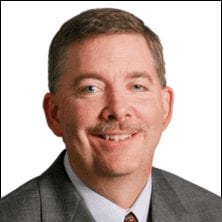
Mike Griswold serves as Vice President Analyst with Gartner’s Consumer Value Chain team, focusing on the retail supply chain. He is responsible for assisting supply leaders in understanding and implementing demand-driven supply chain principles that improve the performance of their supply chain. Mr. Griswold joined Gartner through the company’s acquisition of AMR. Previous roles include helping line-of-business users align corporate strategy with their supply chain process and technology initiatives. One recent study published by a team of Gartner analysts, including Mike Griswold is Retail Supply Chain Outlook 2019: Elevating the Consumer’s Shopping Experience. Mr. Griswold holds a BS in Business Management from Canisius College and an MBA from the Whittemore School of Business & Economics at the University of New Hampshire. Learn more about Gartner here: www.gartner.com
